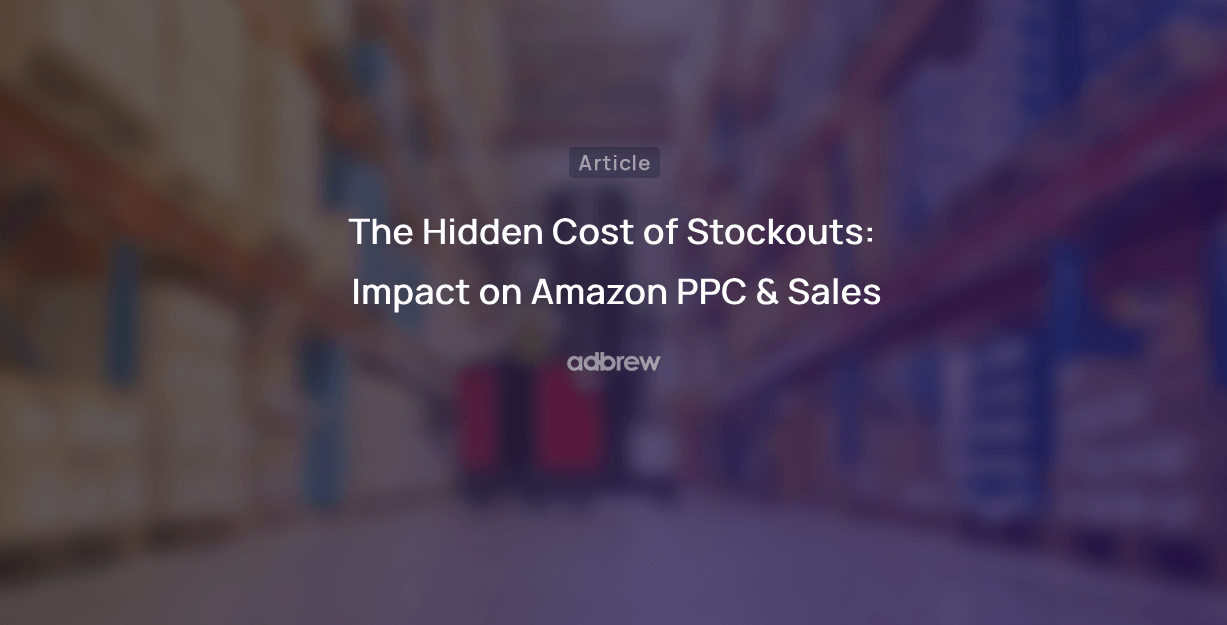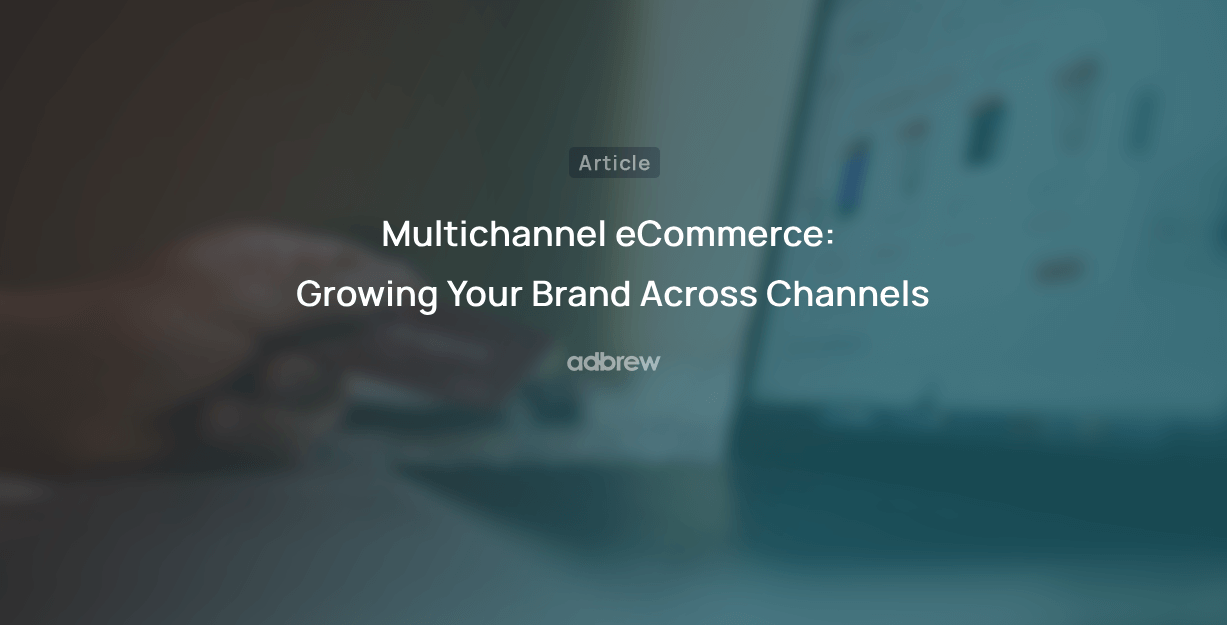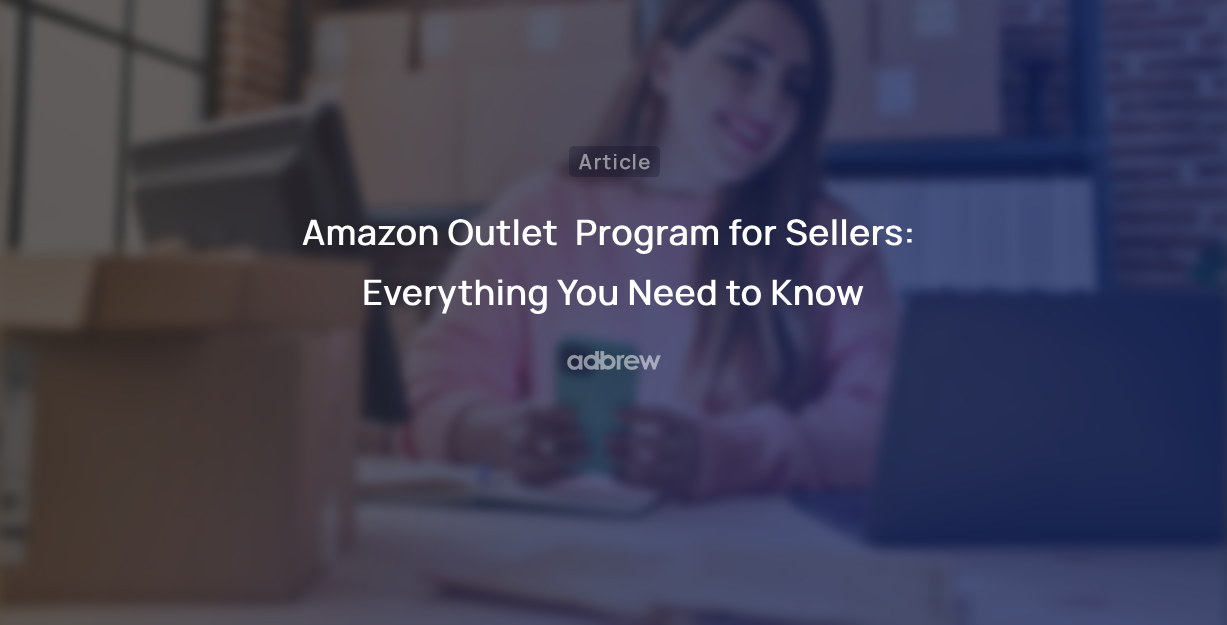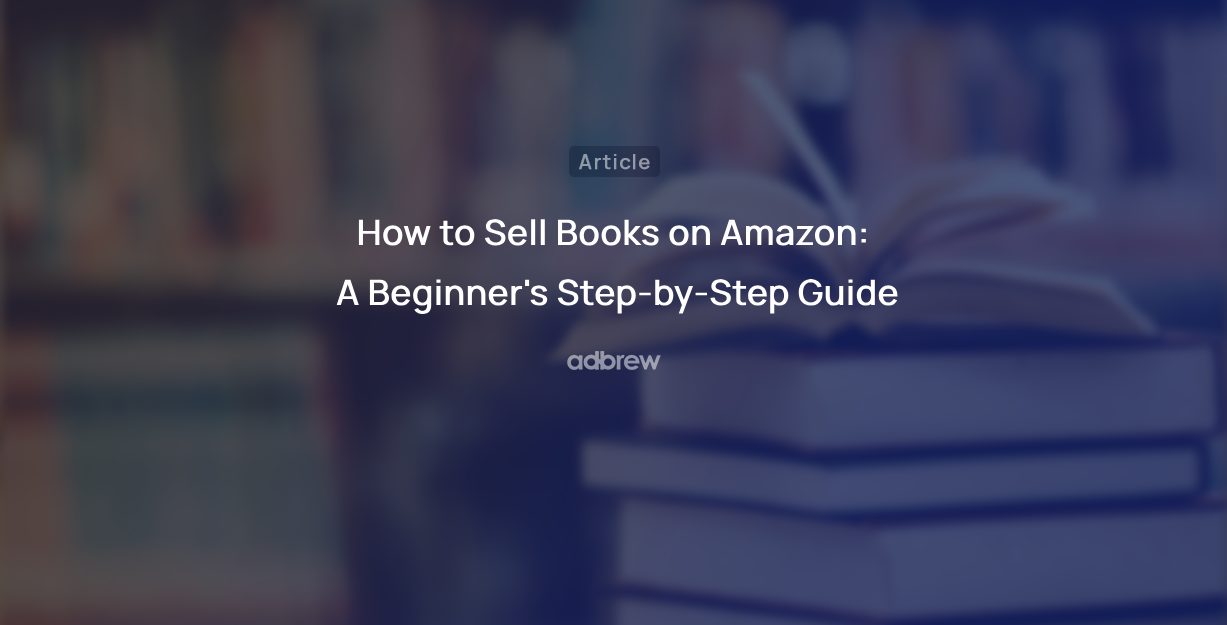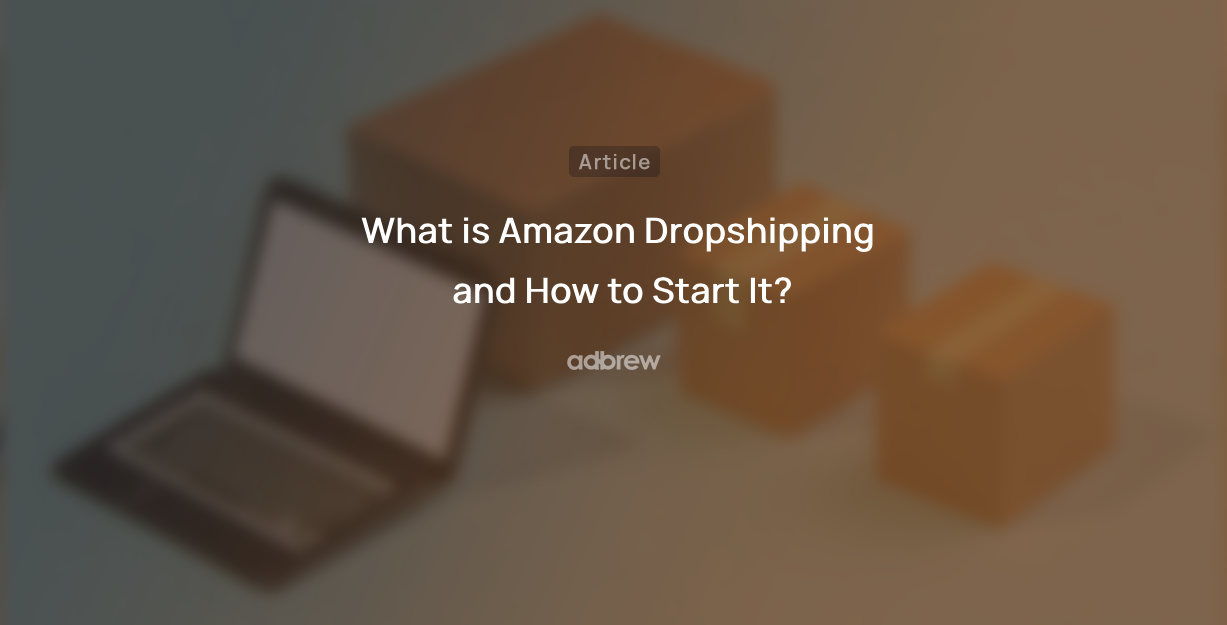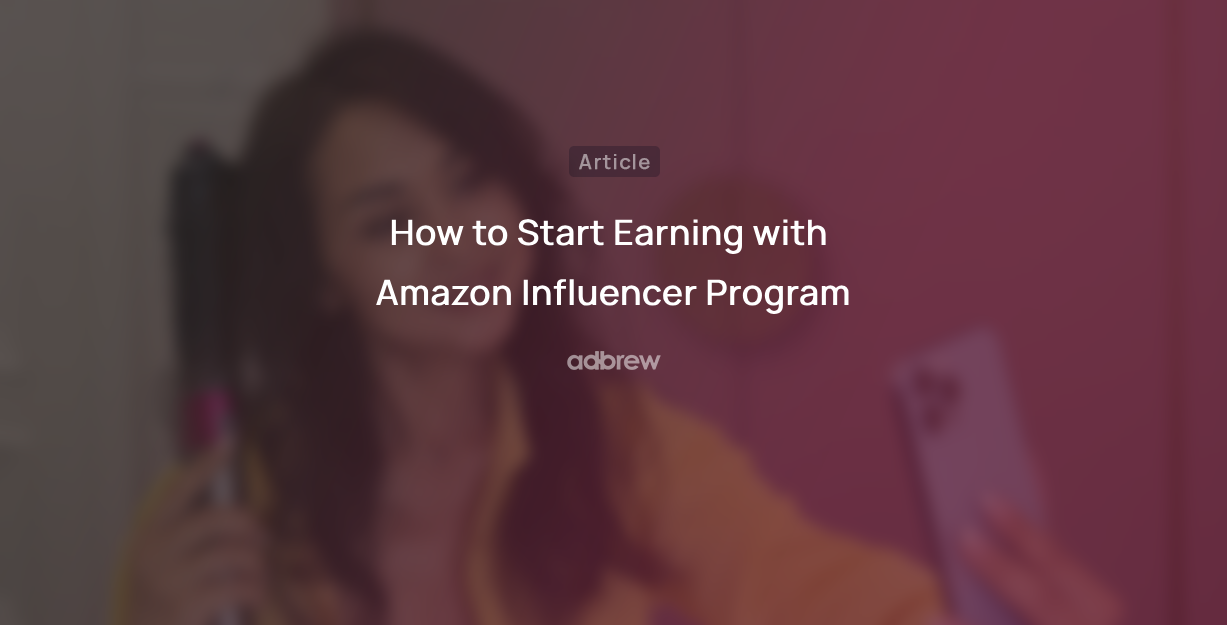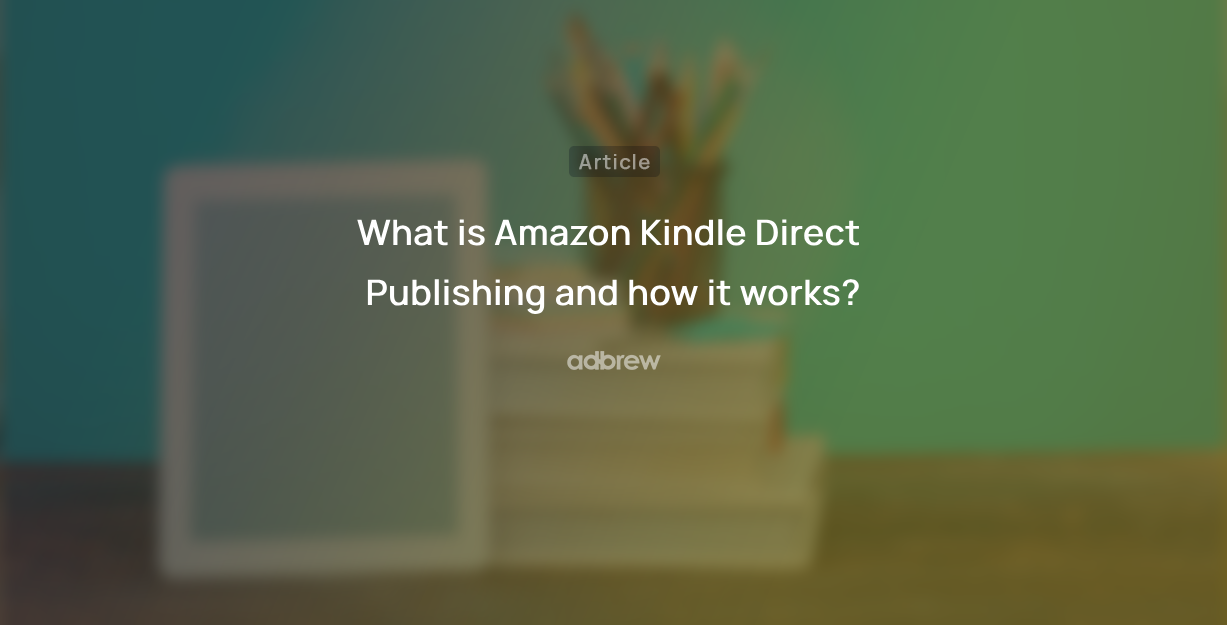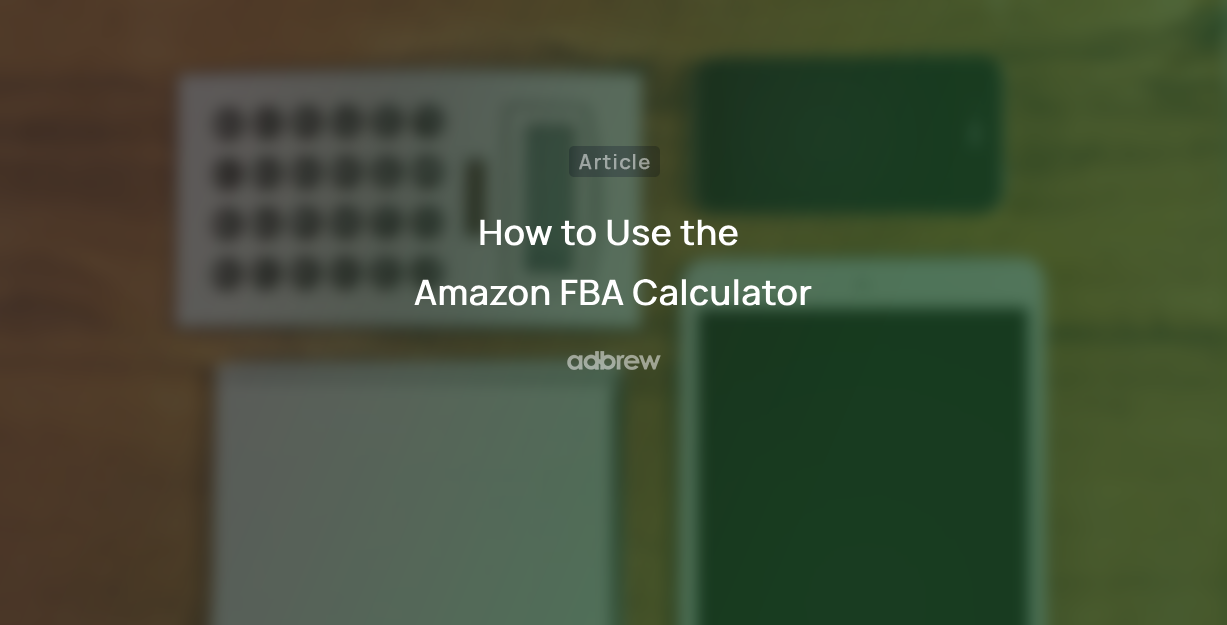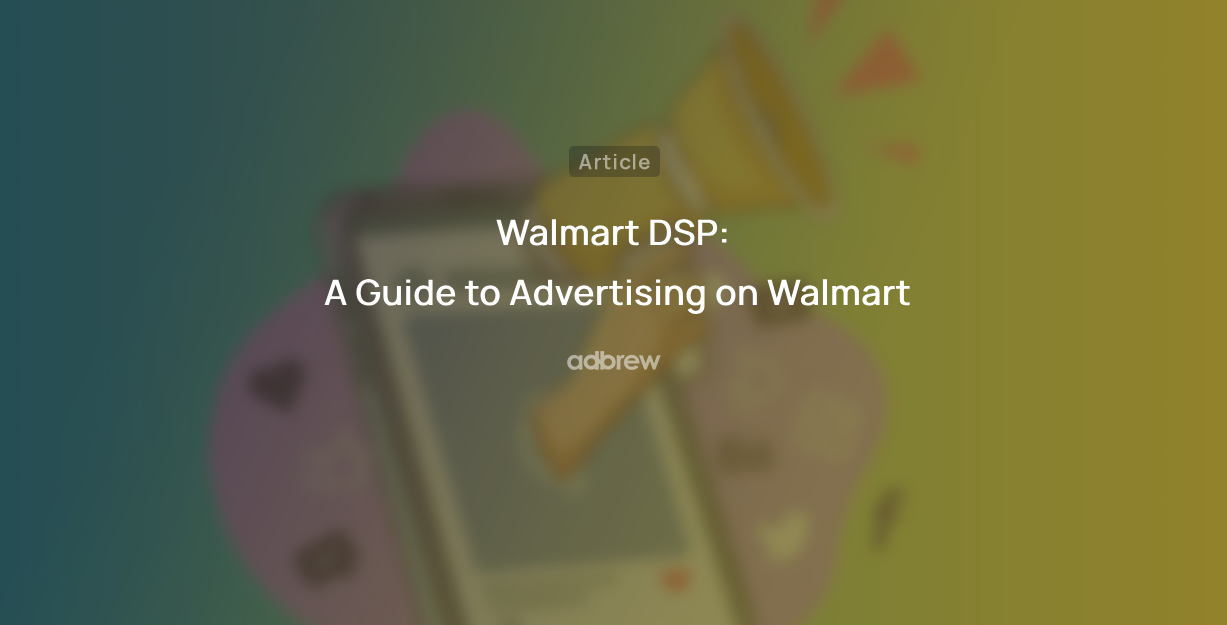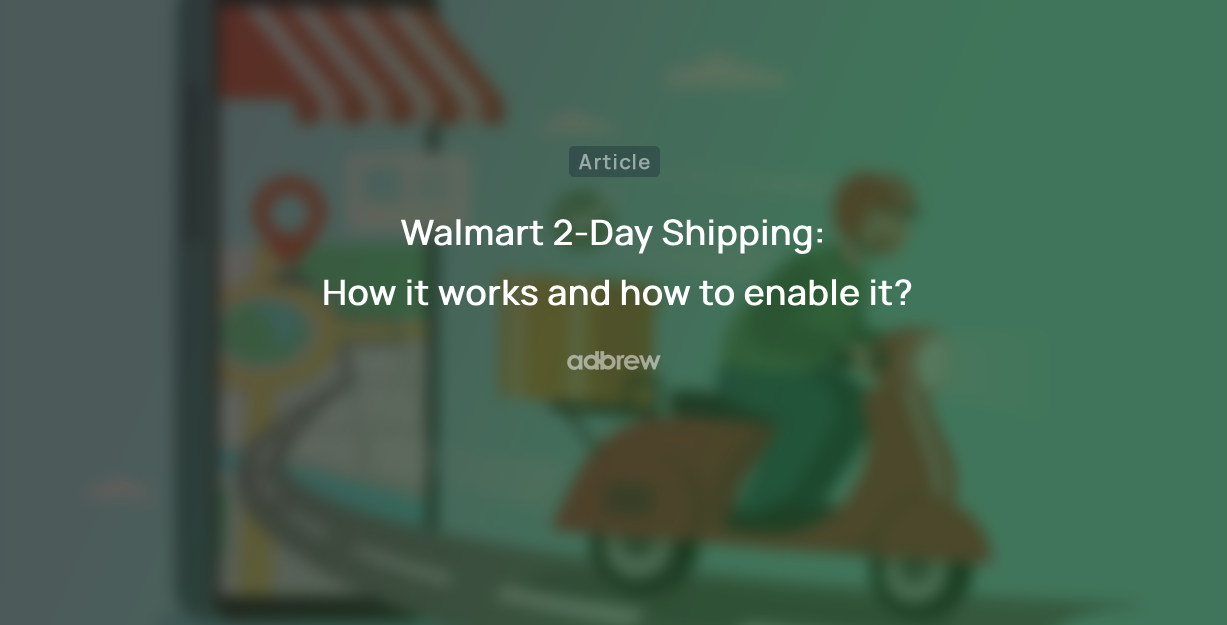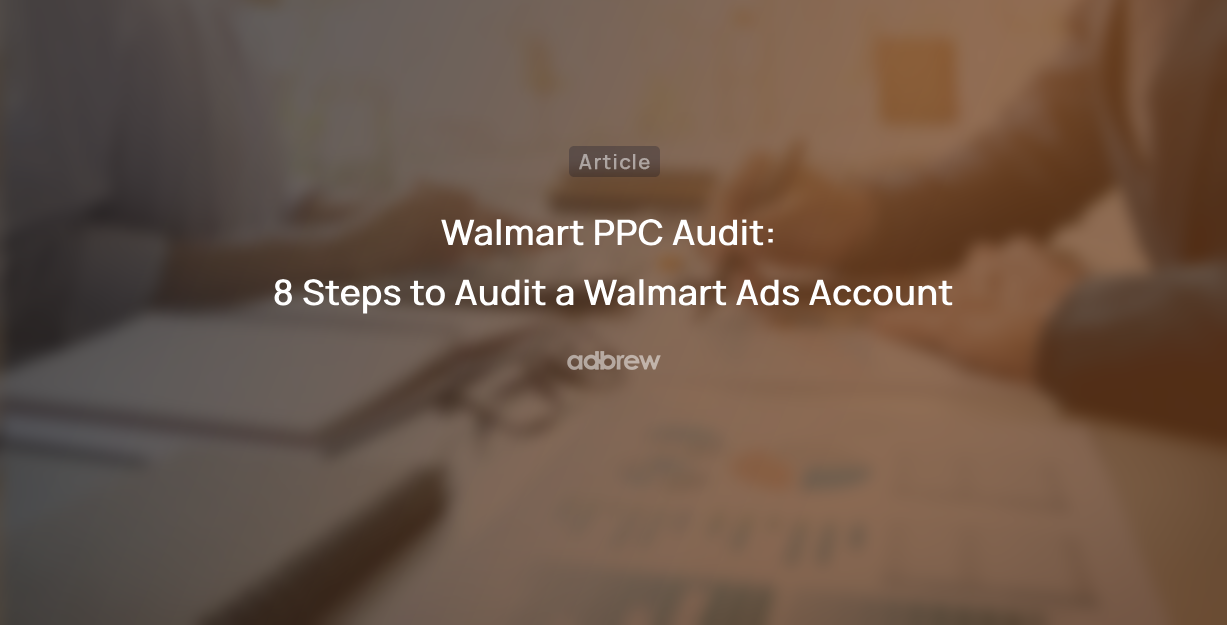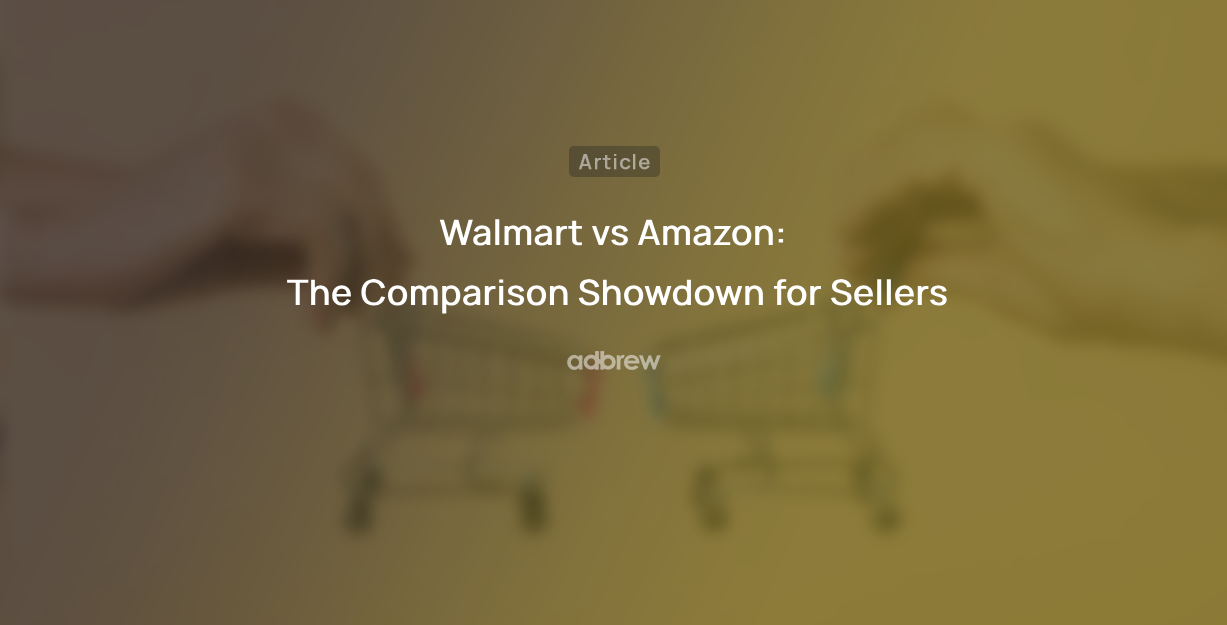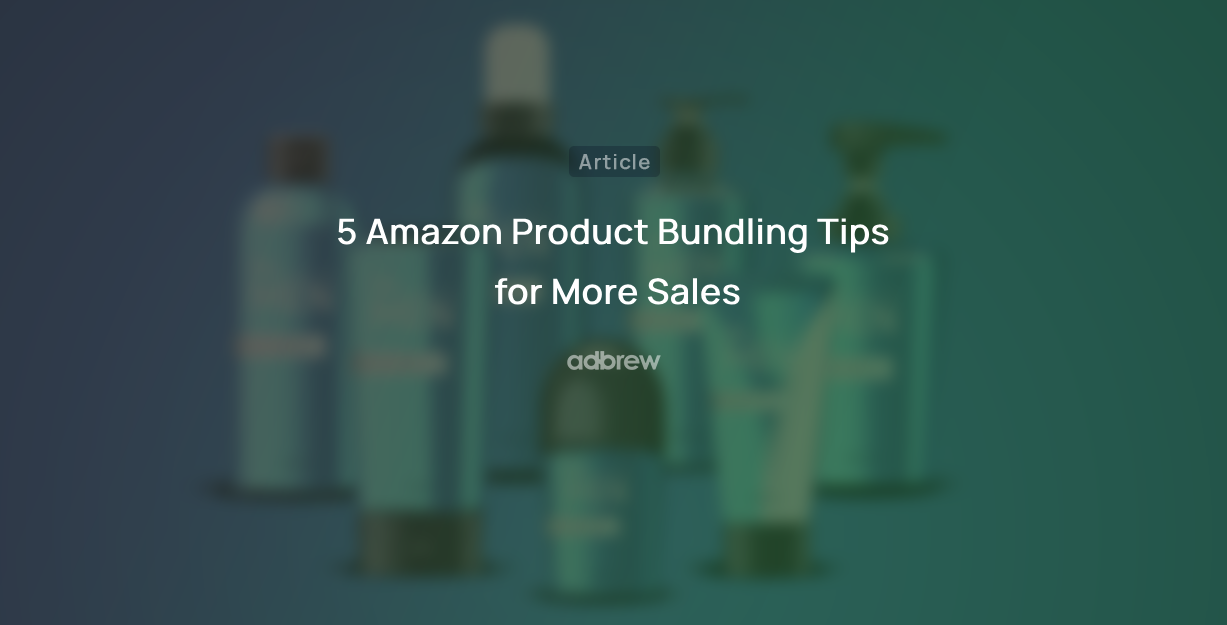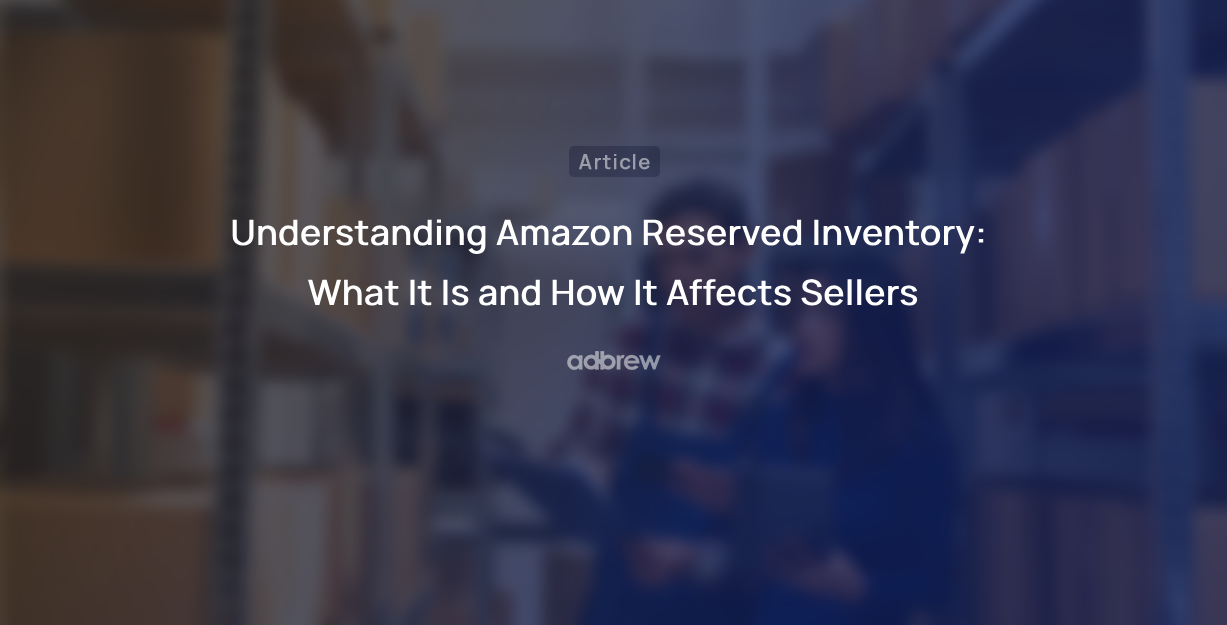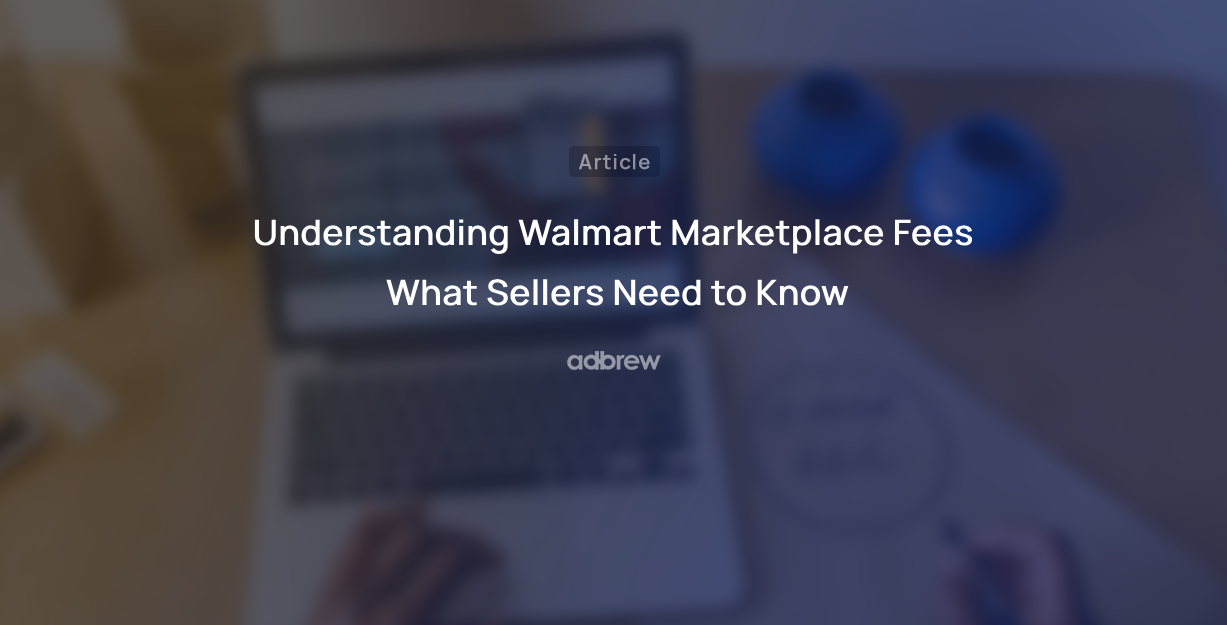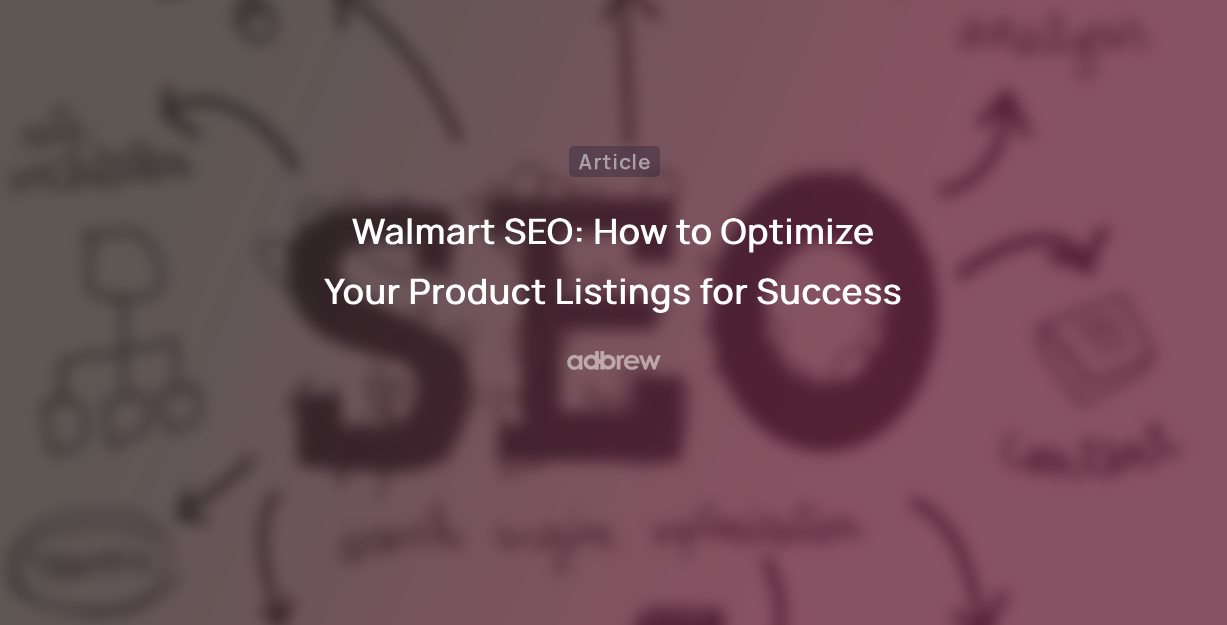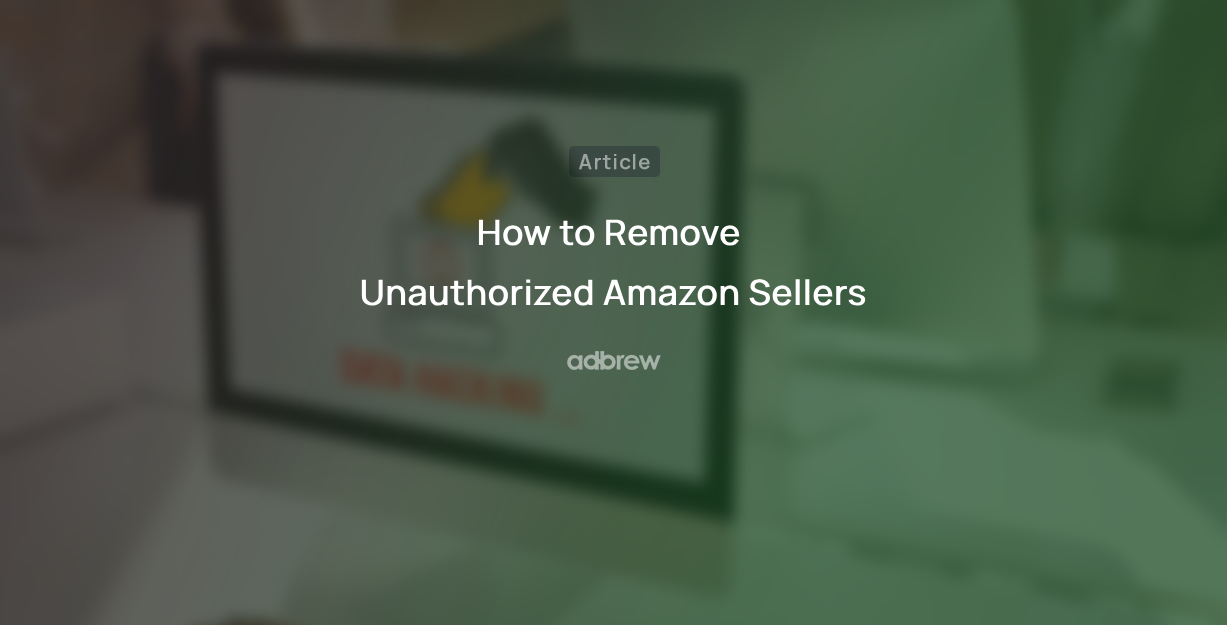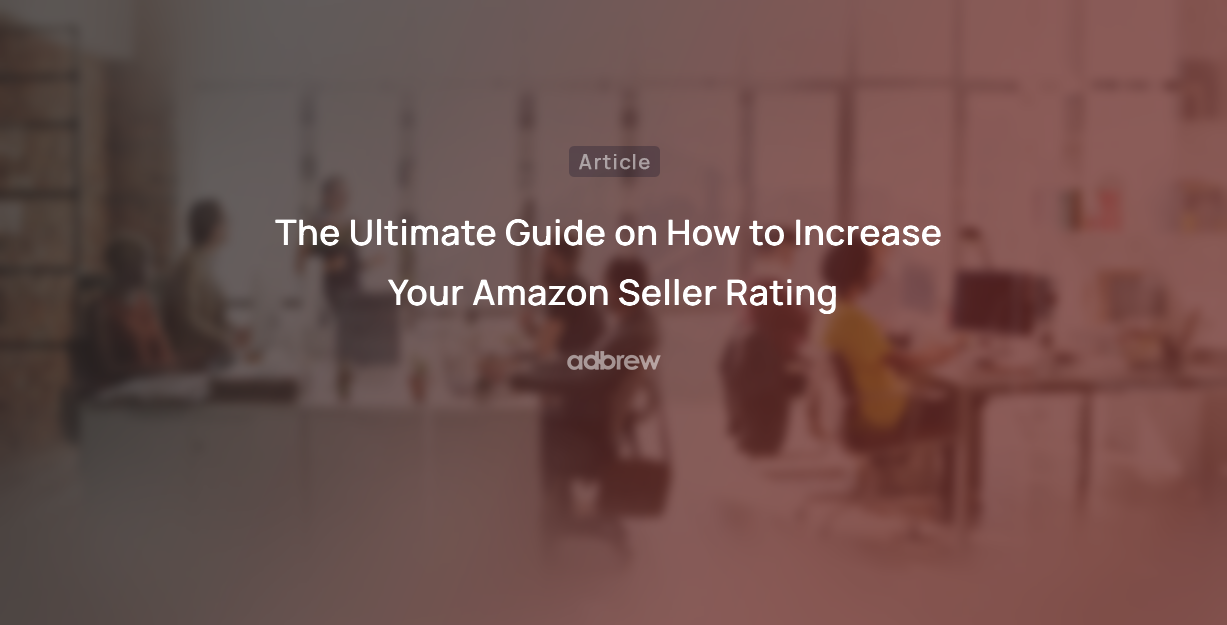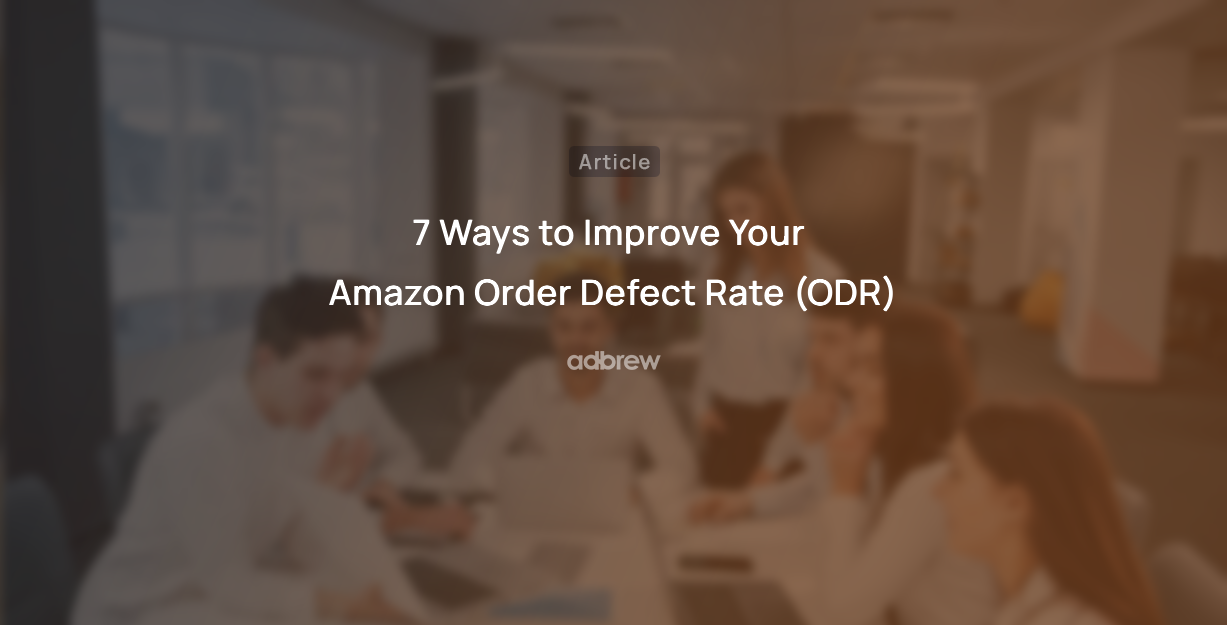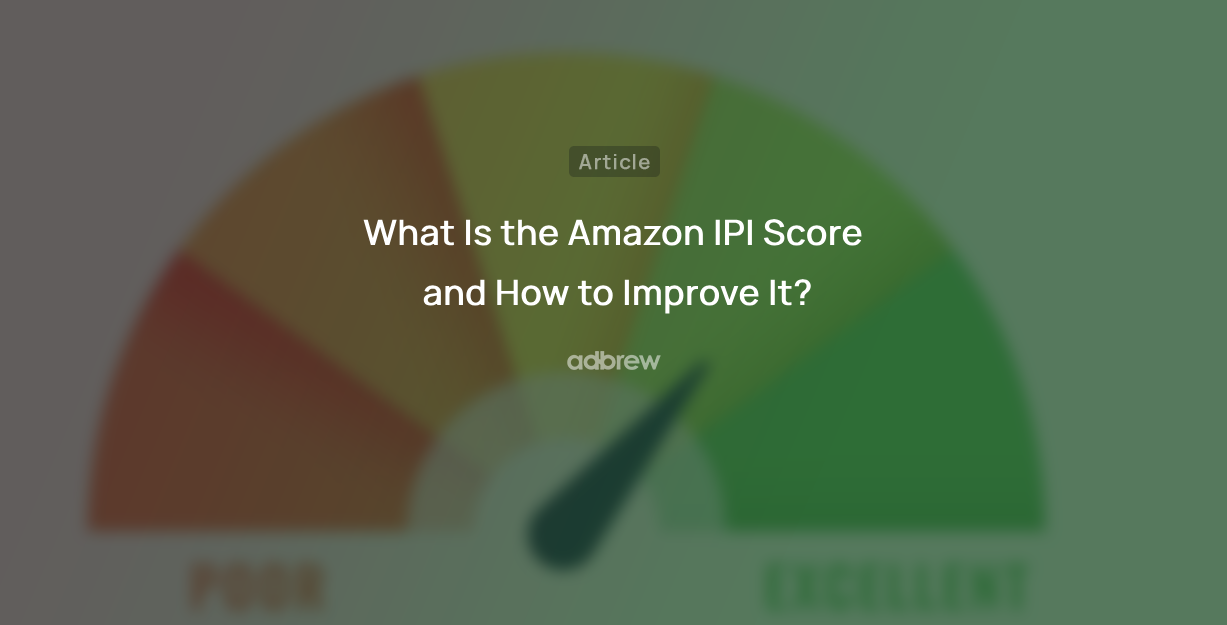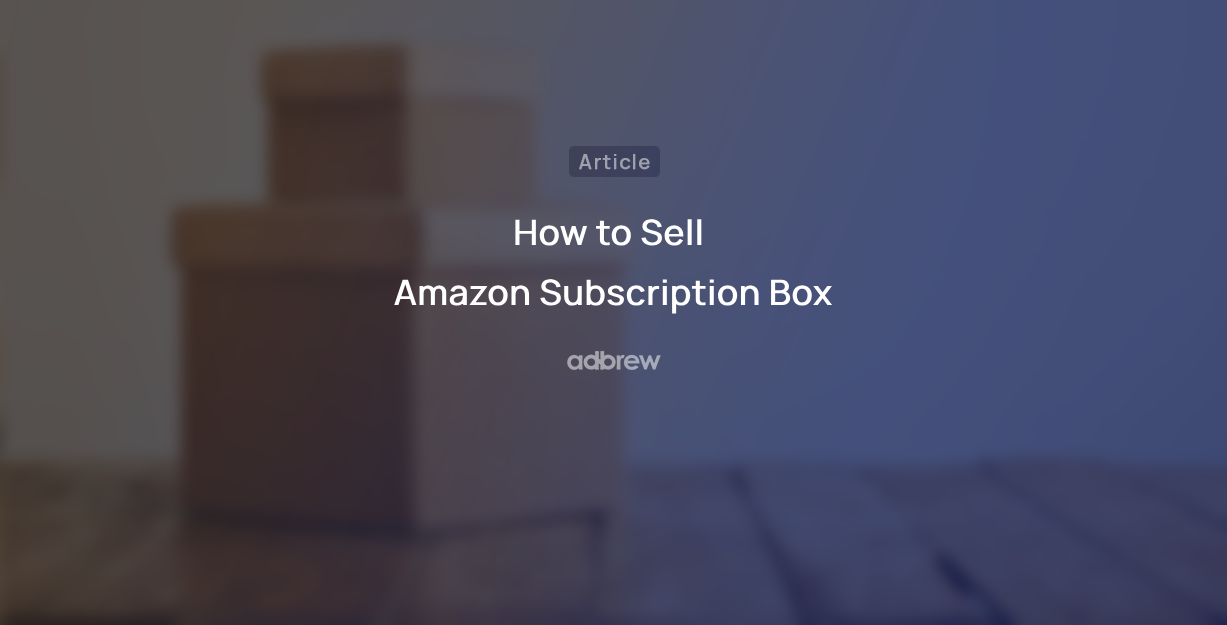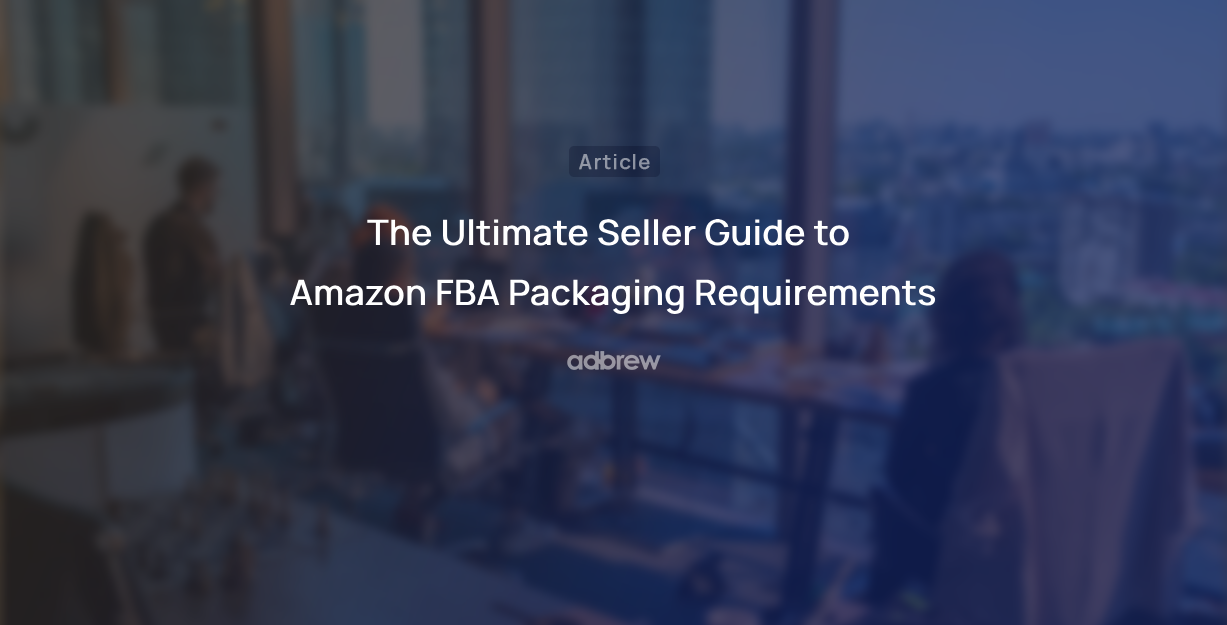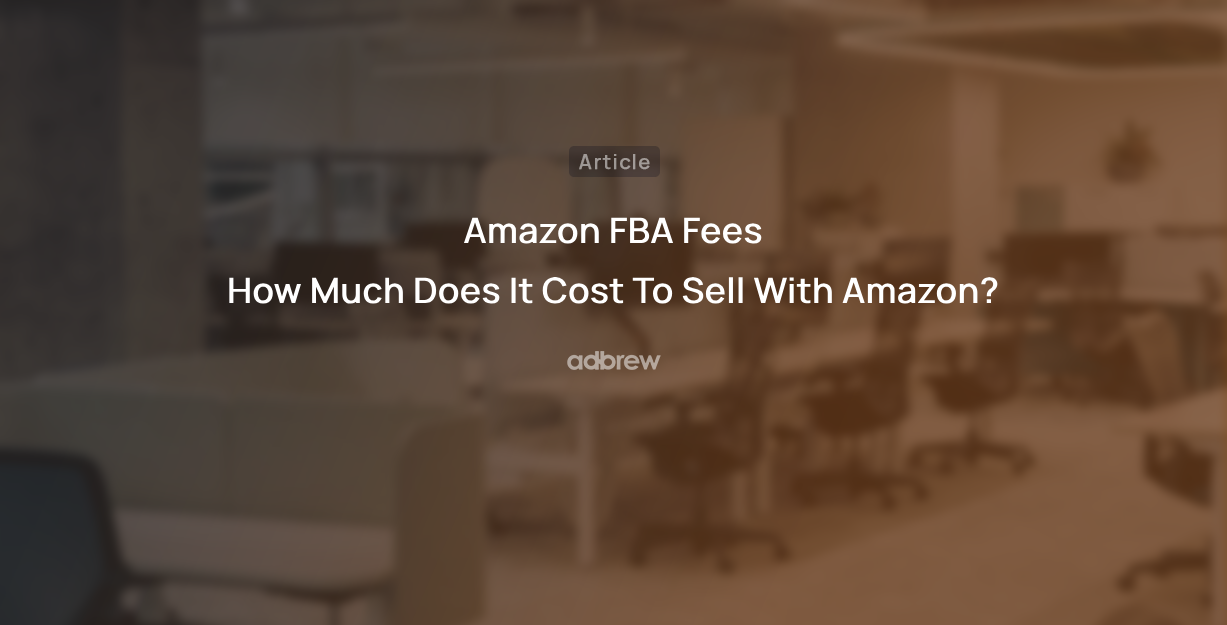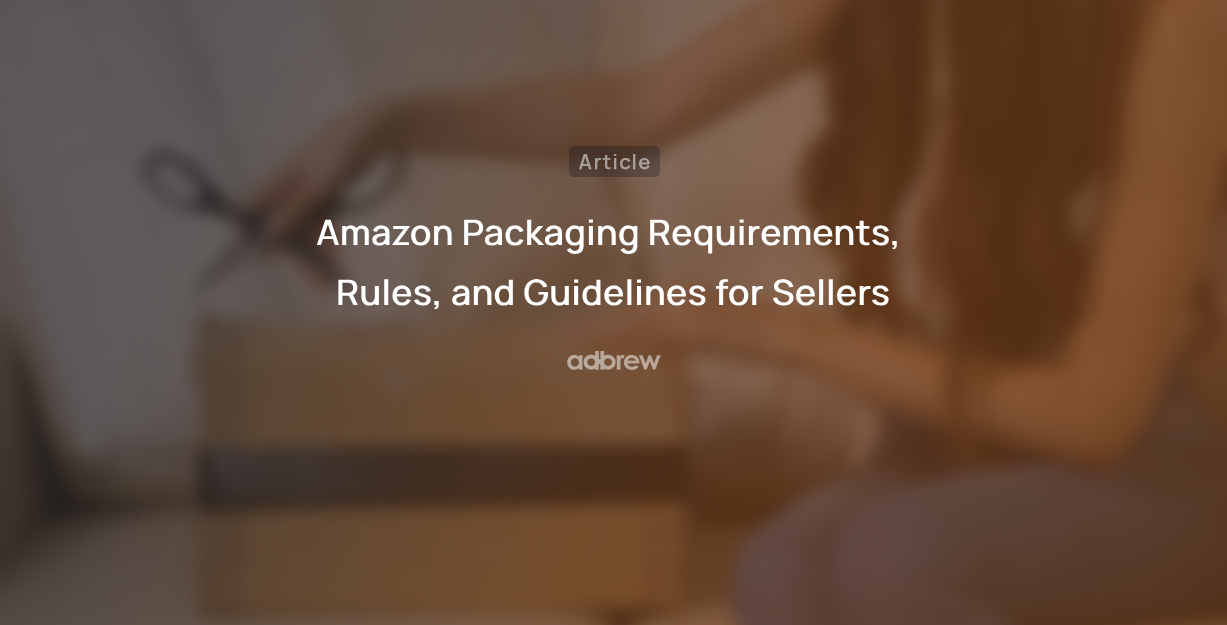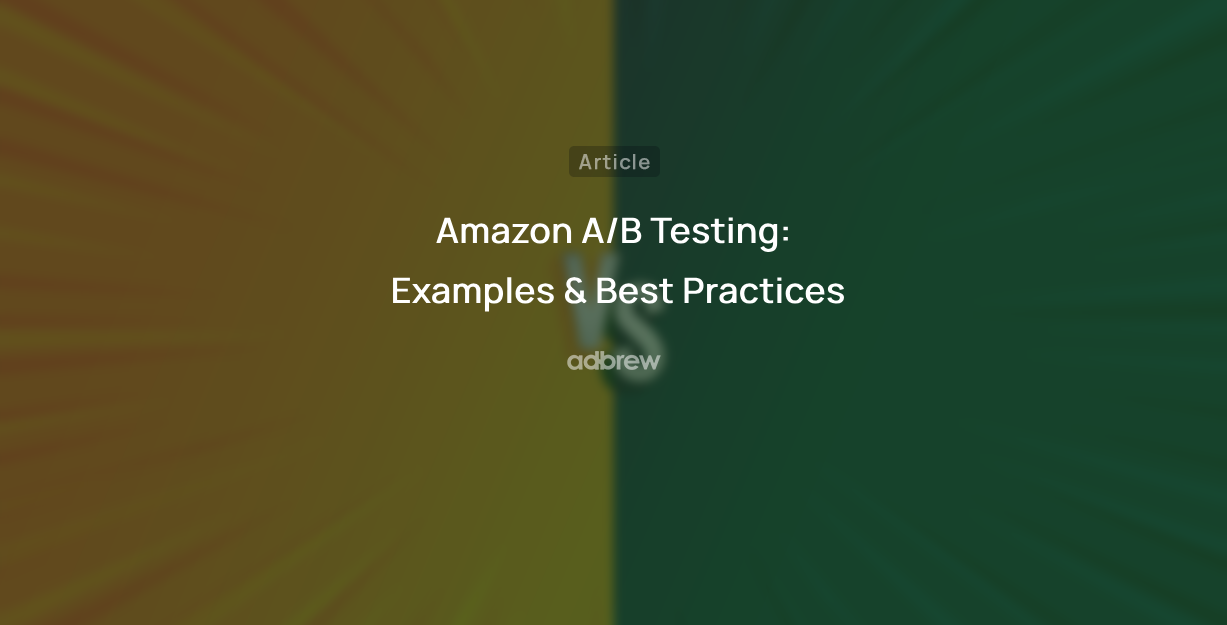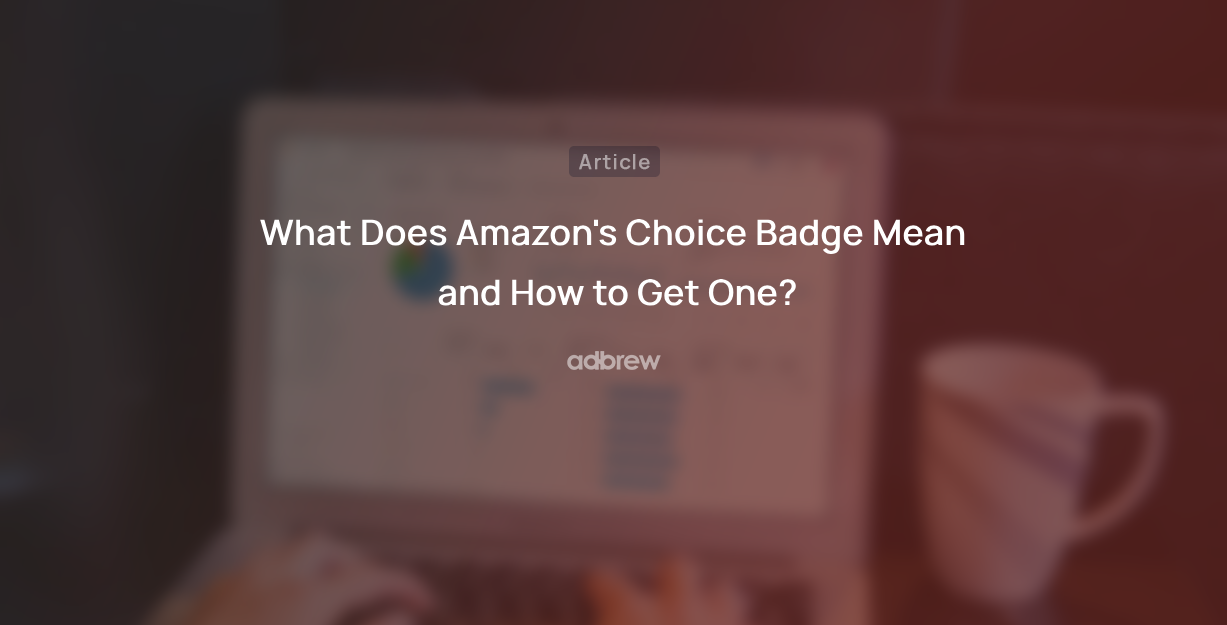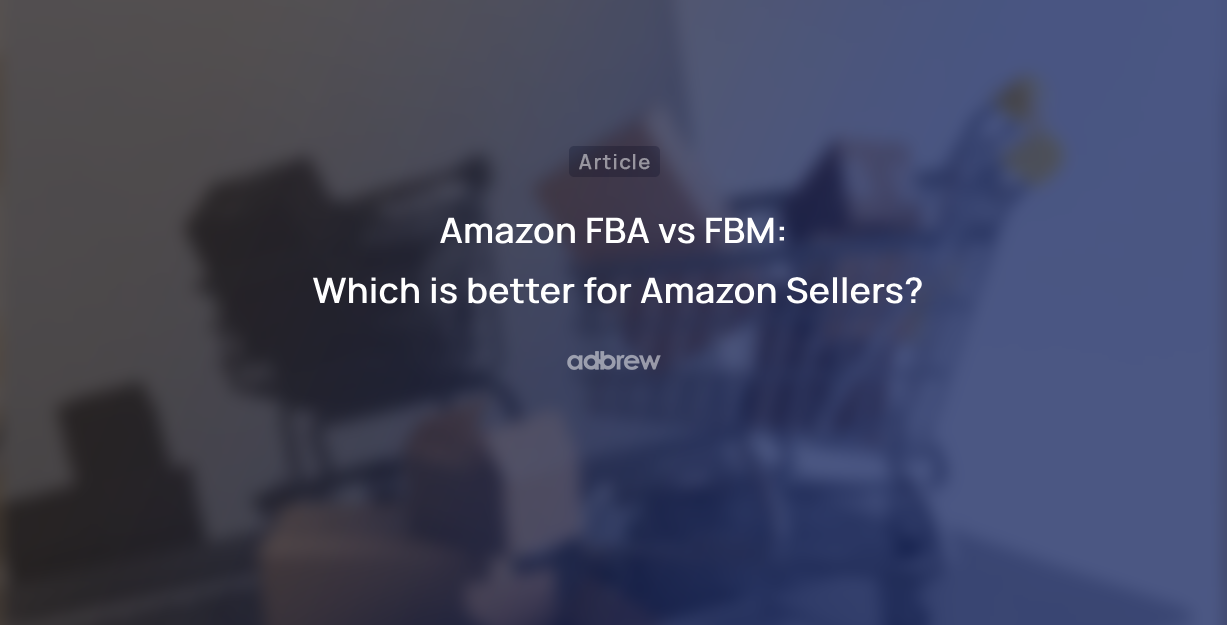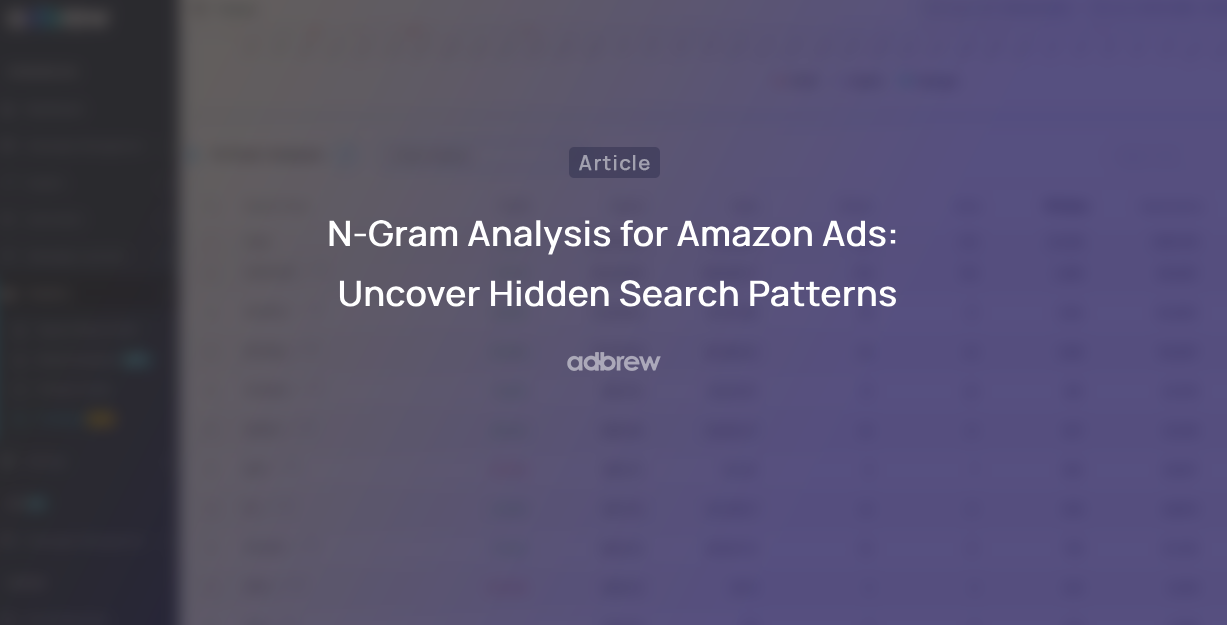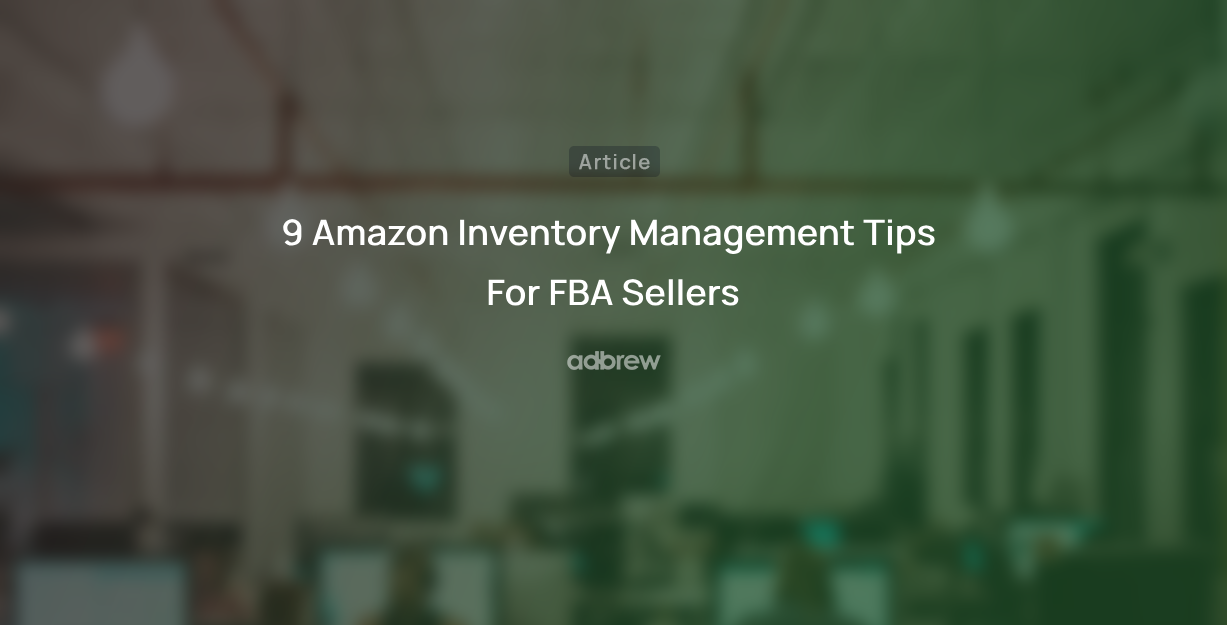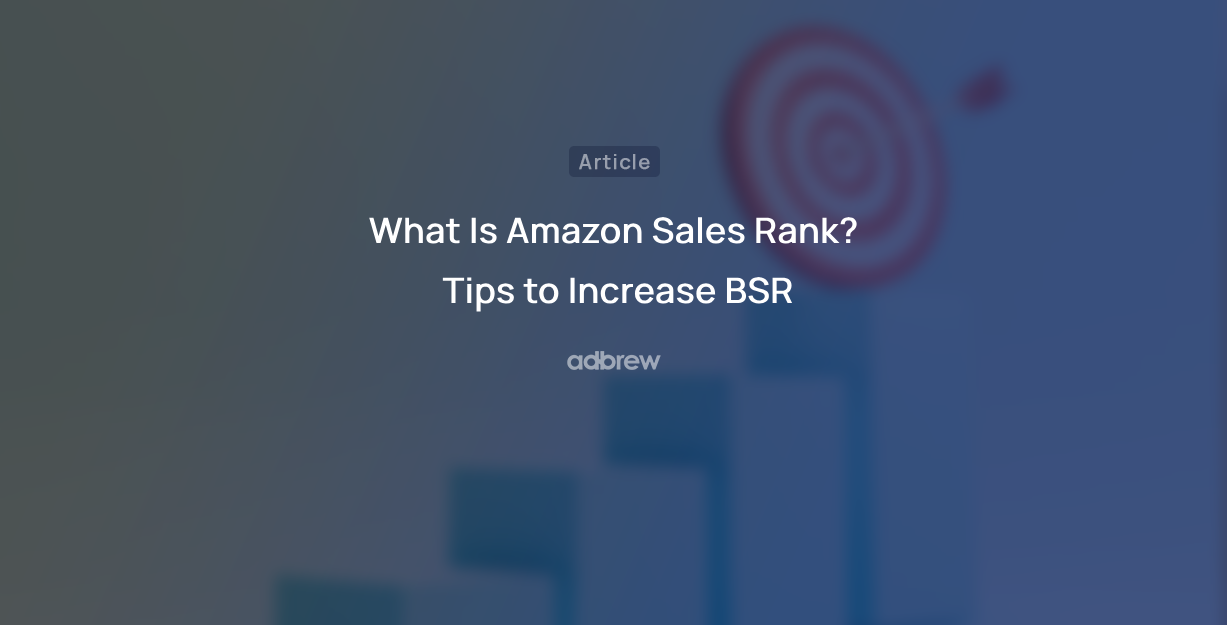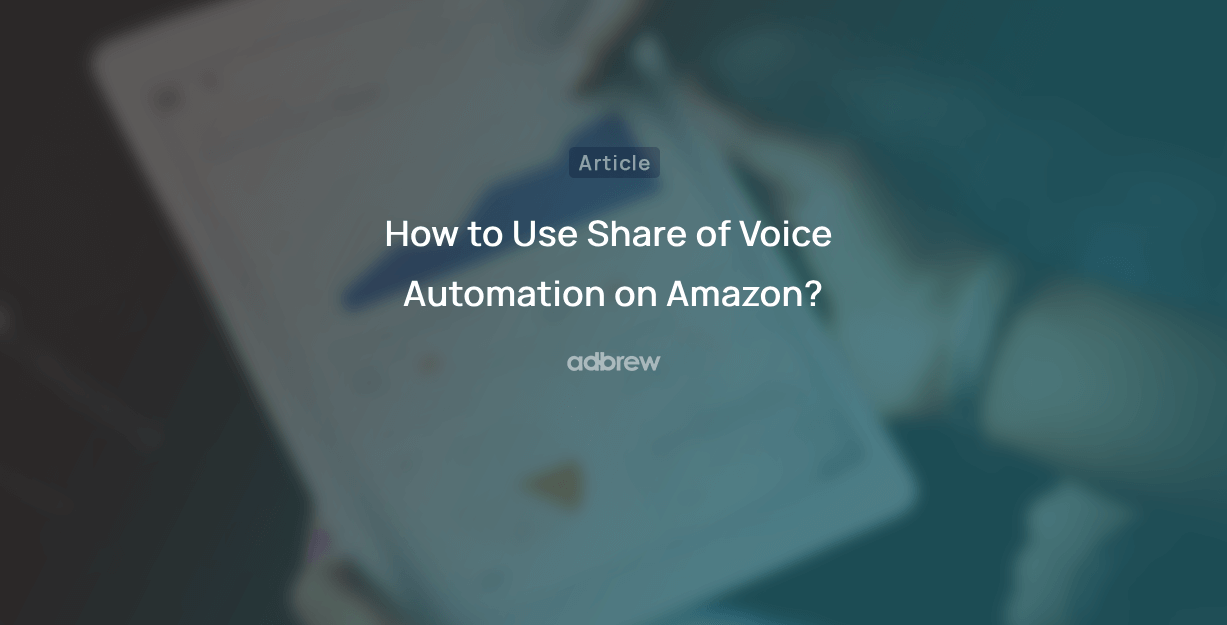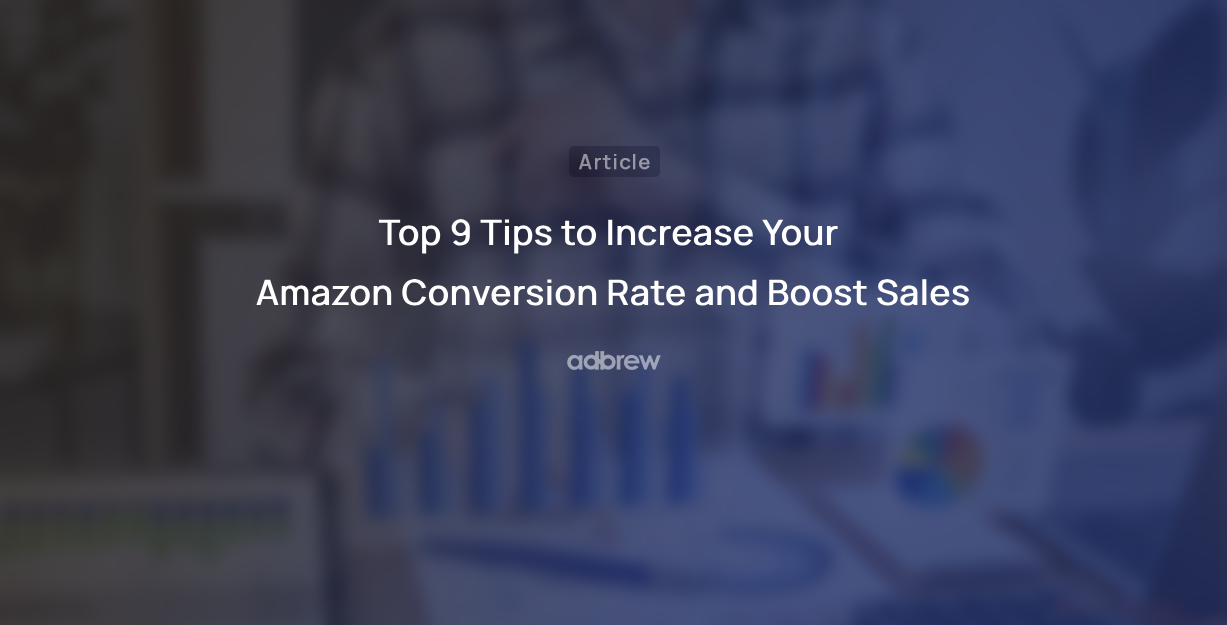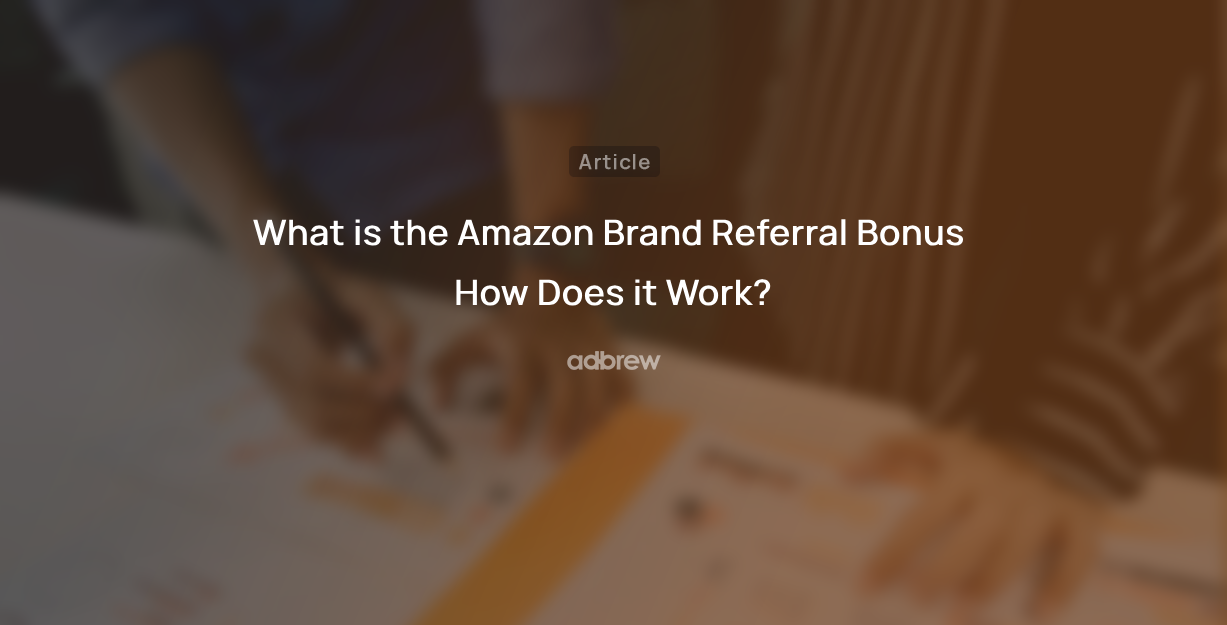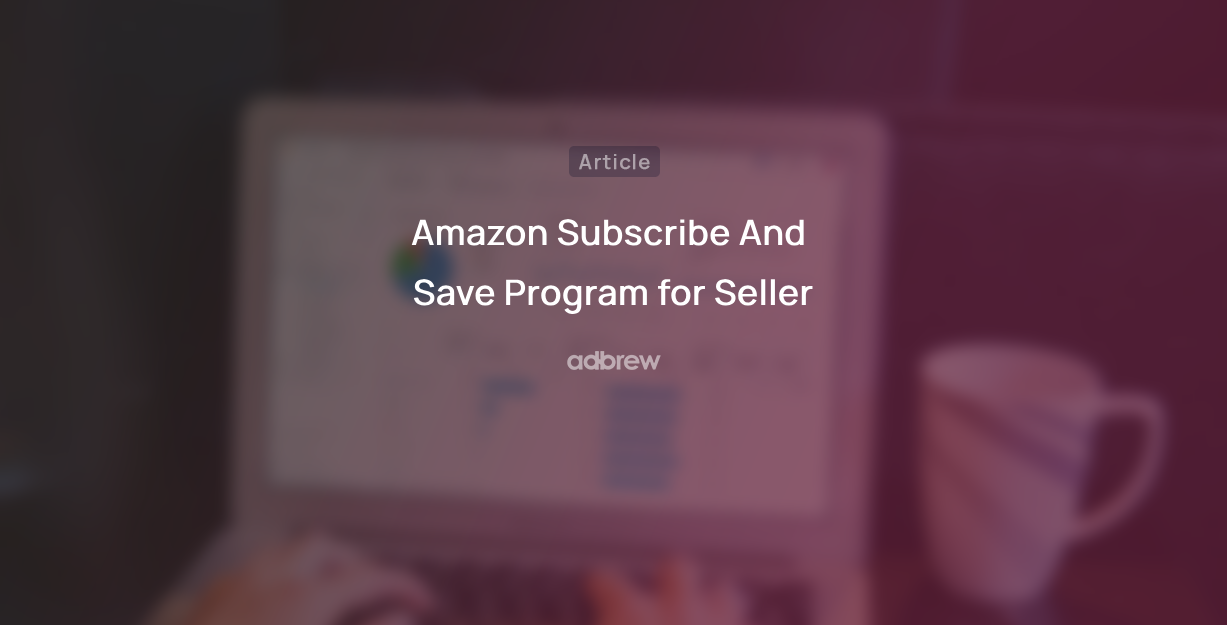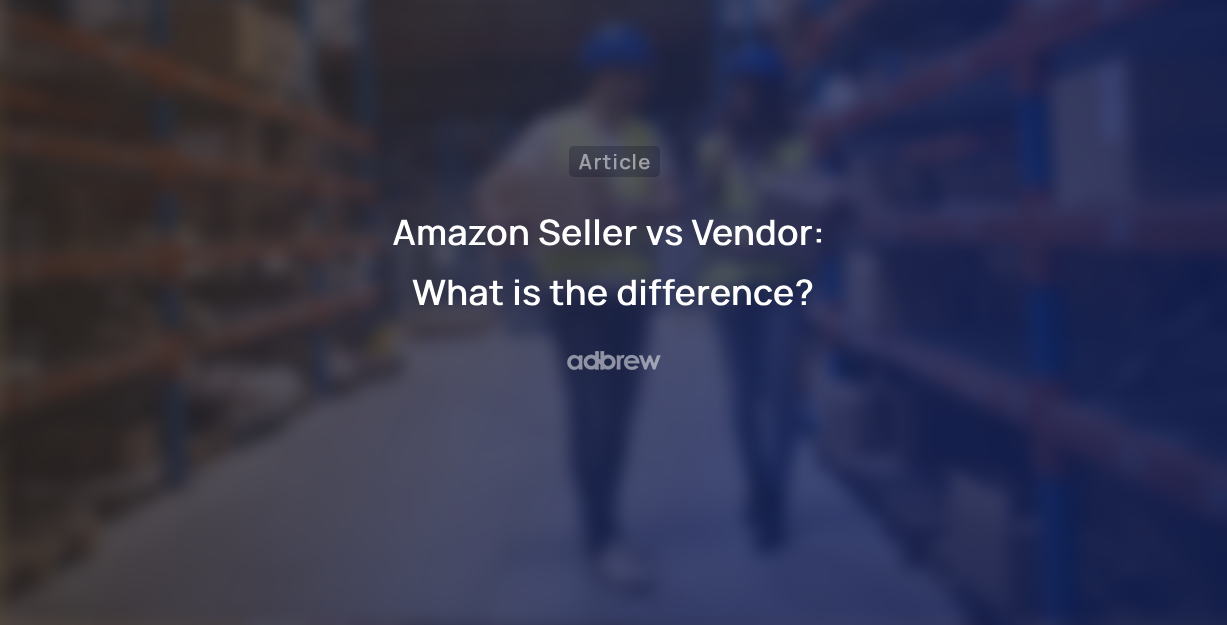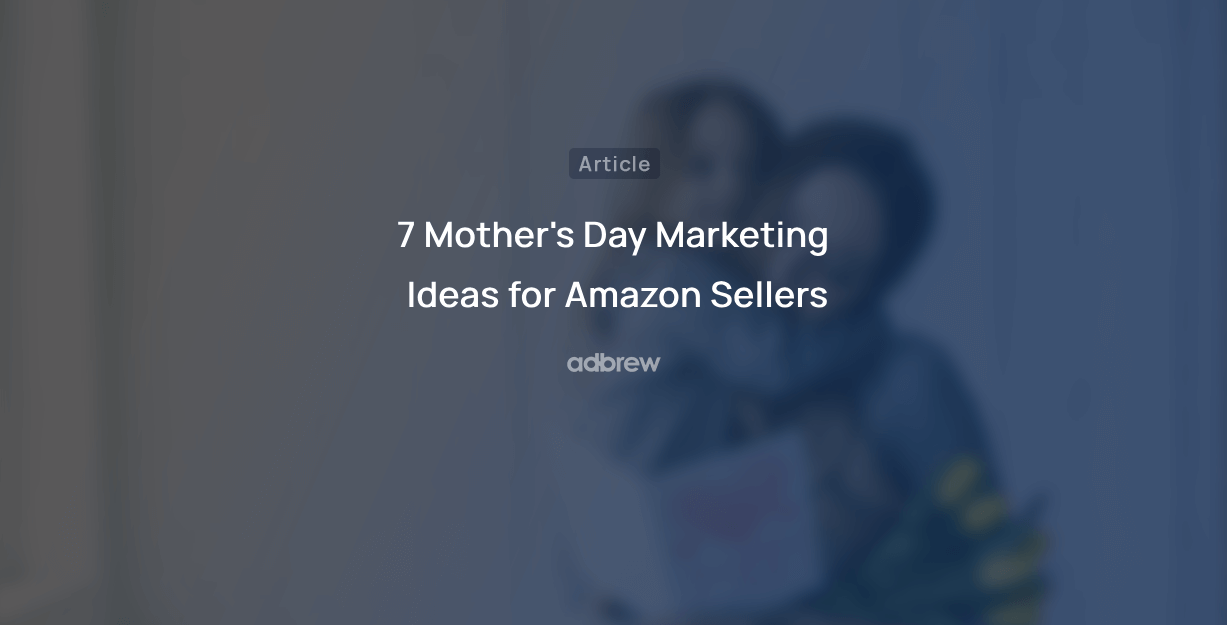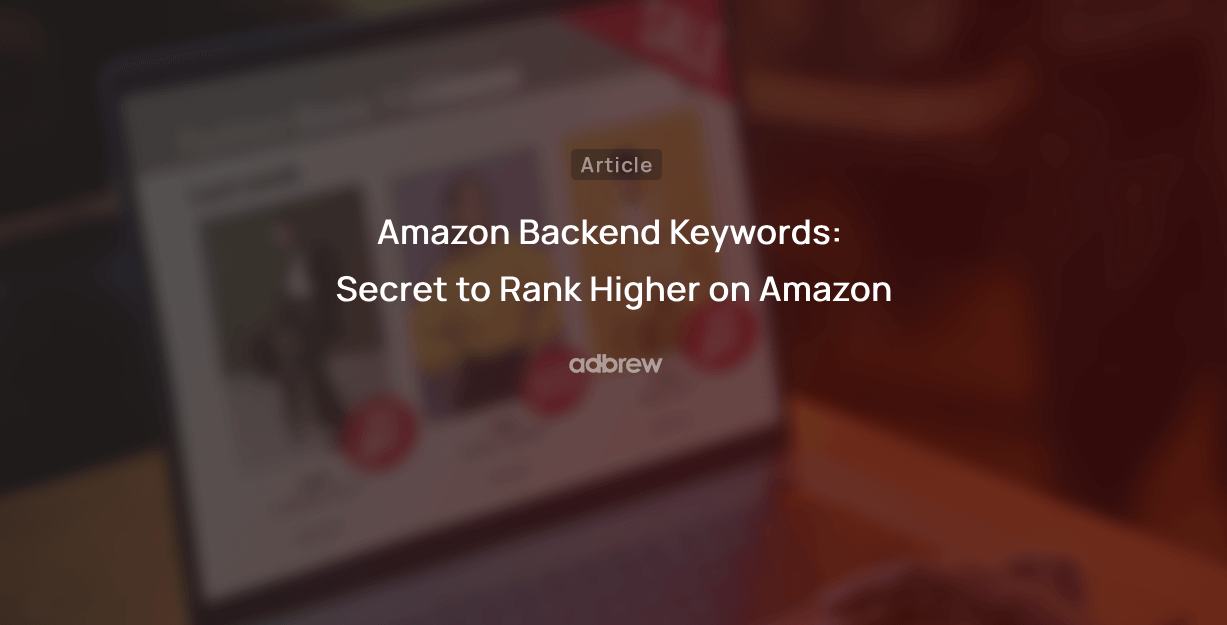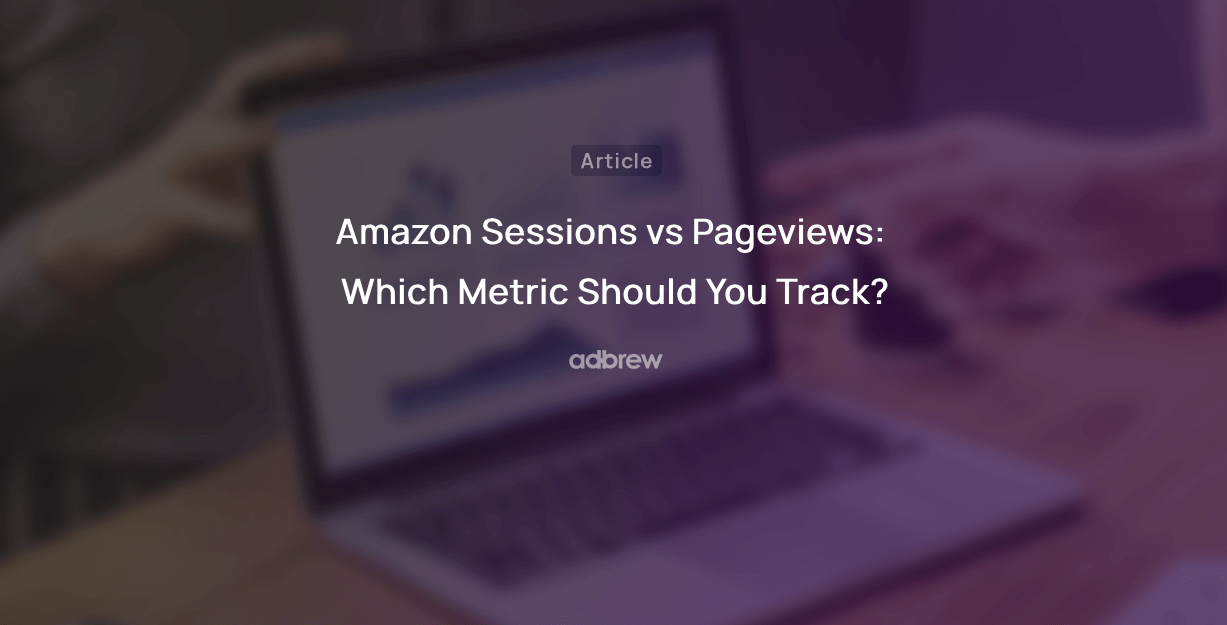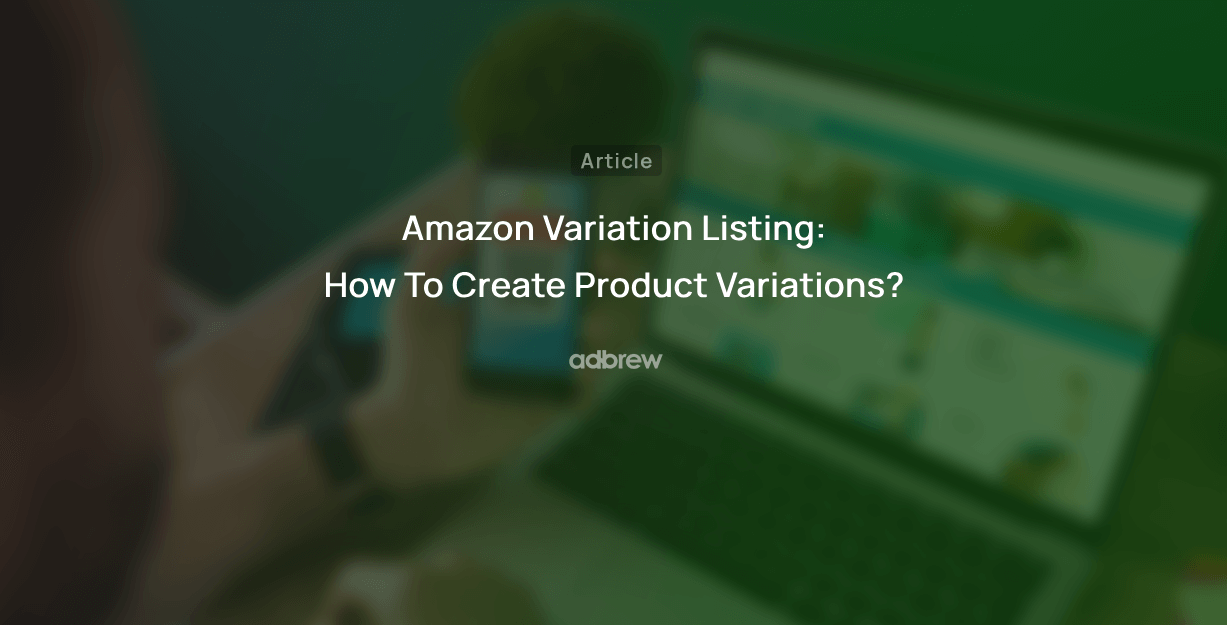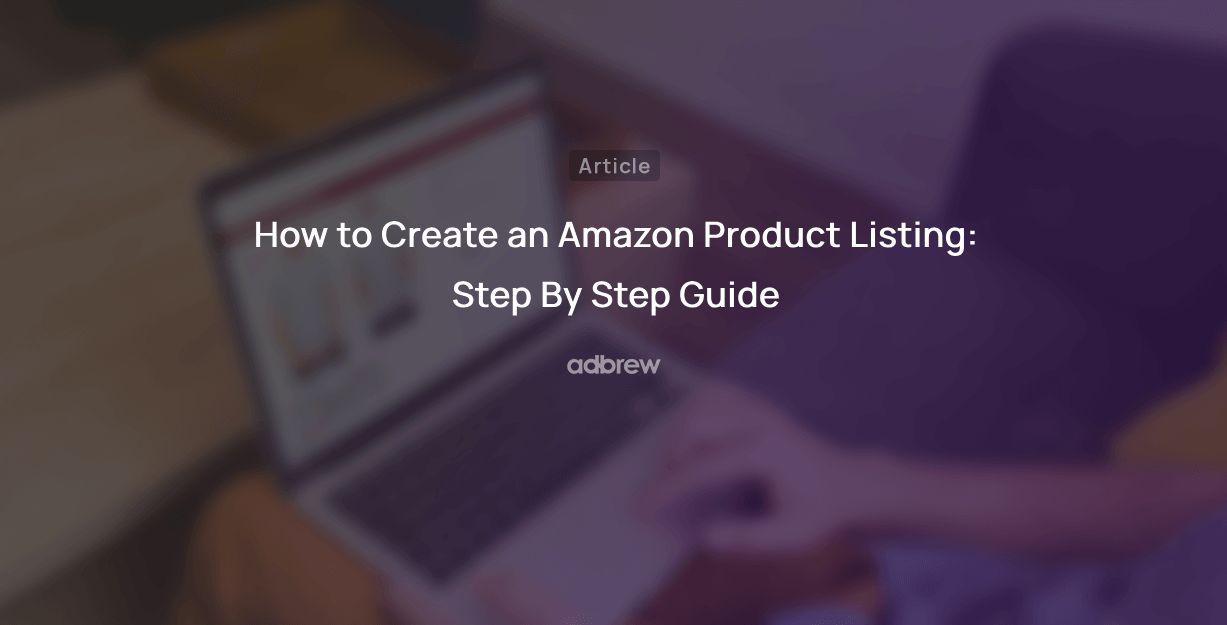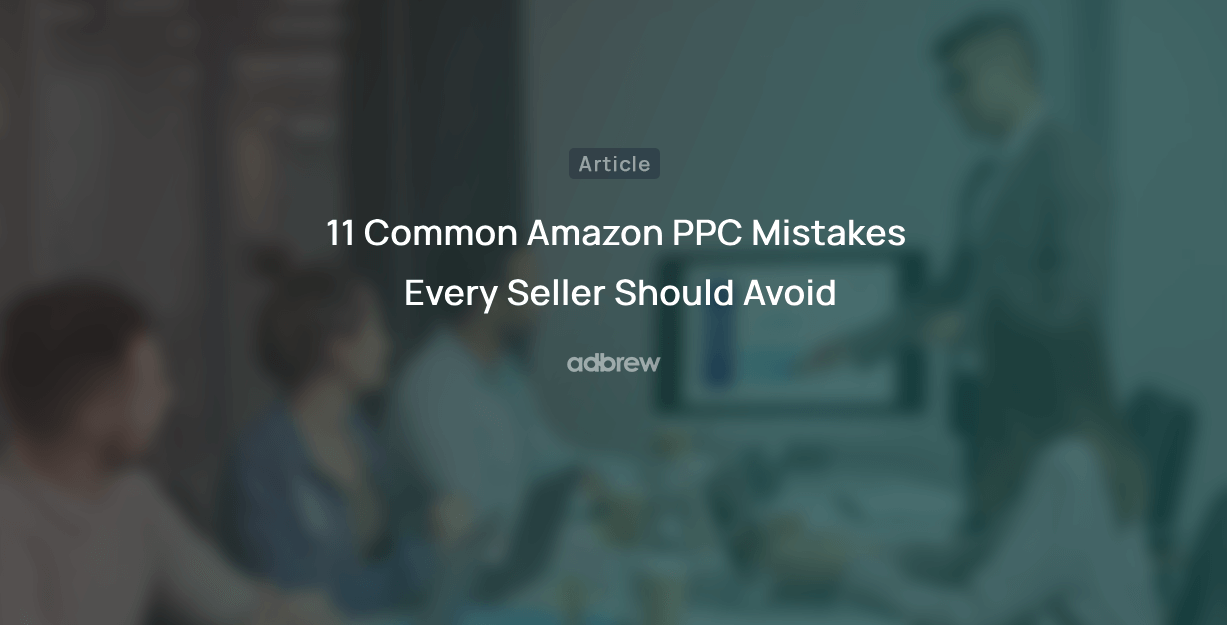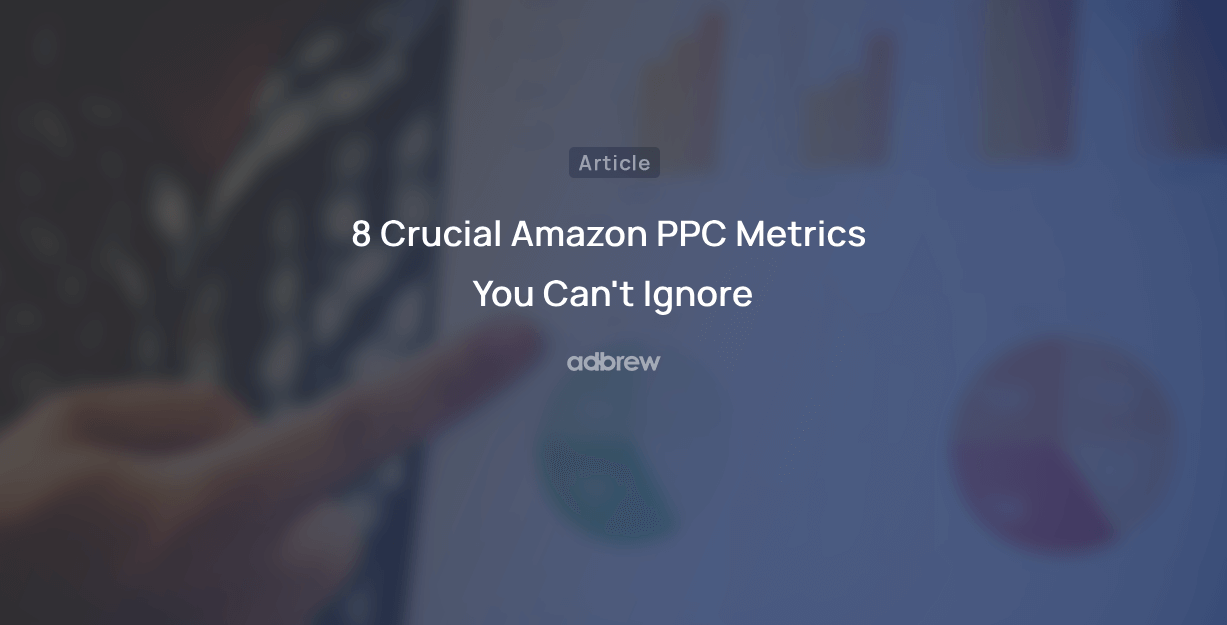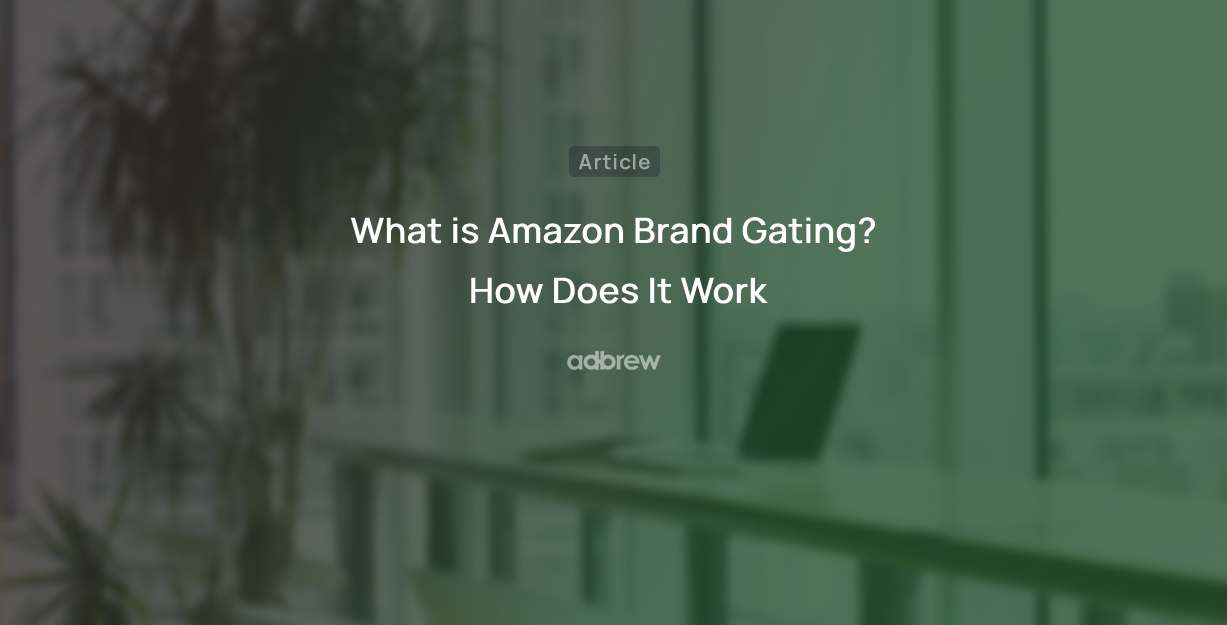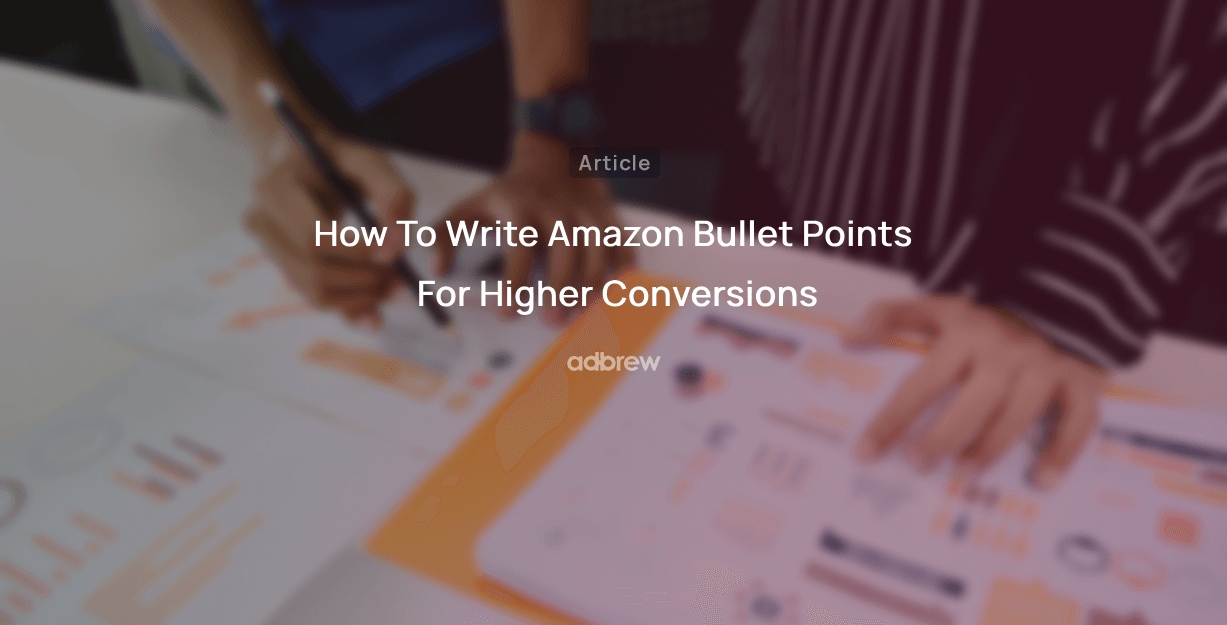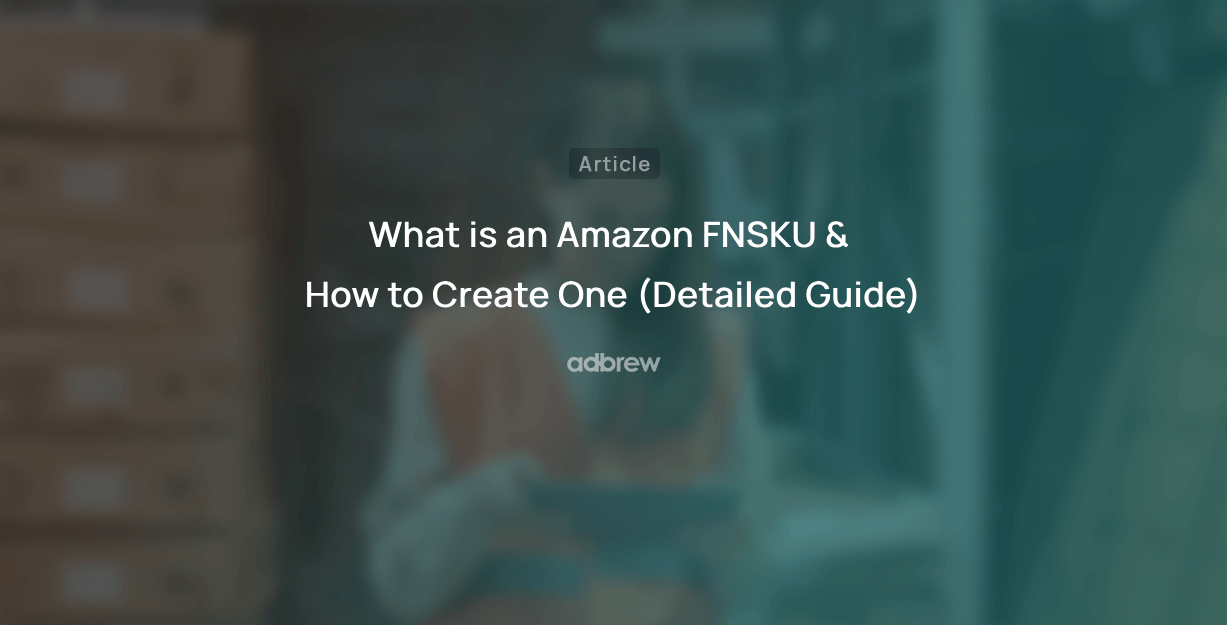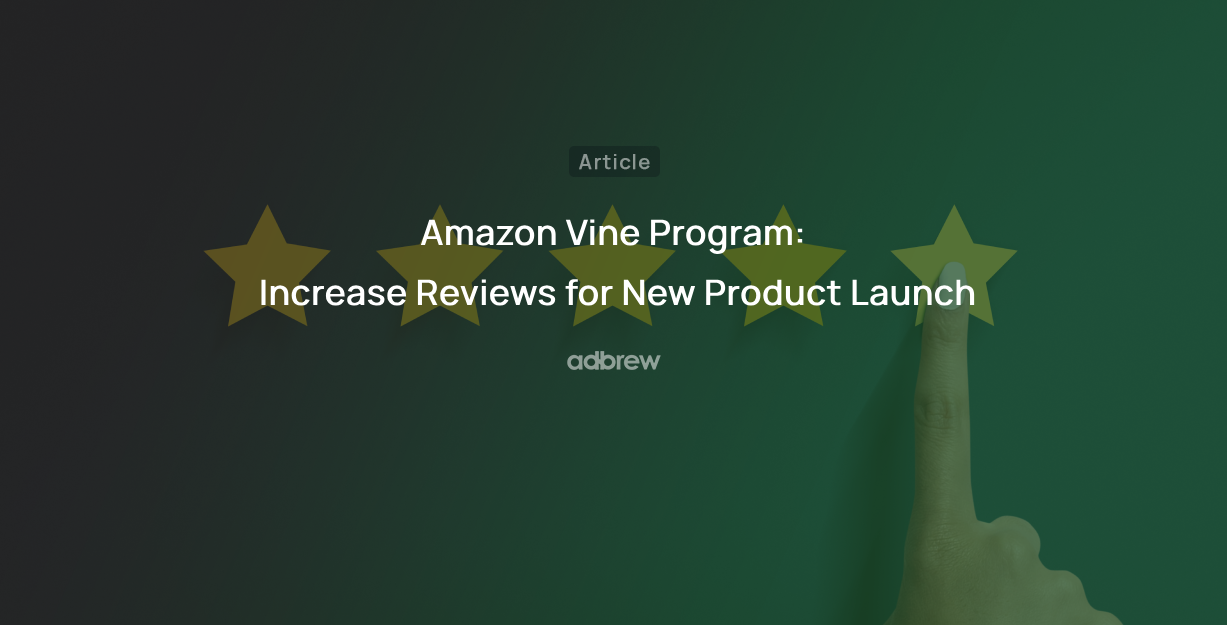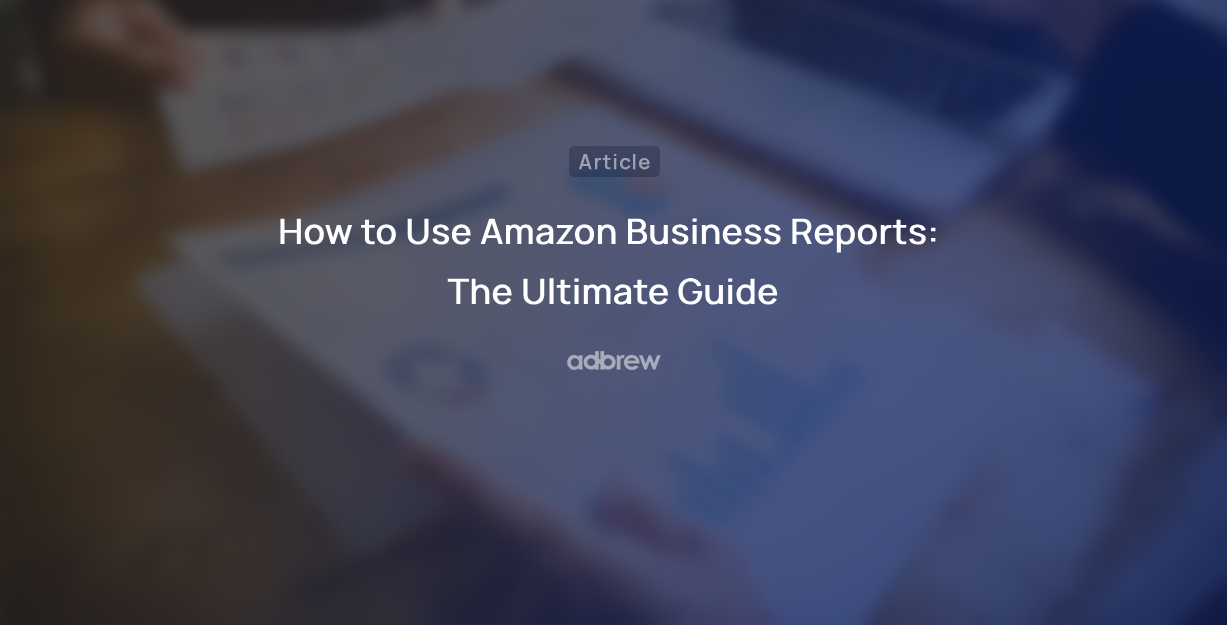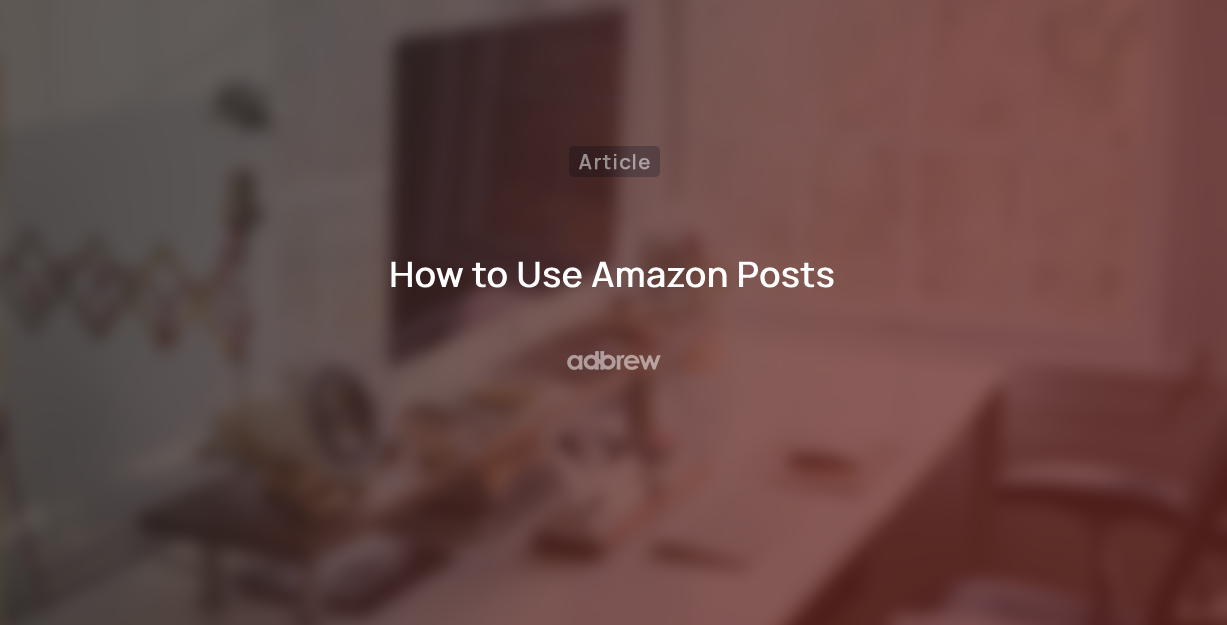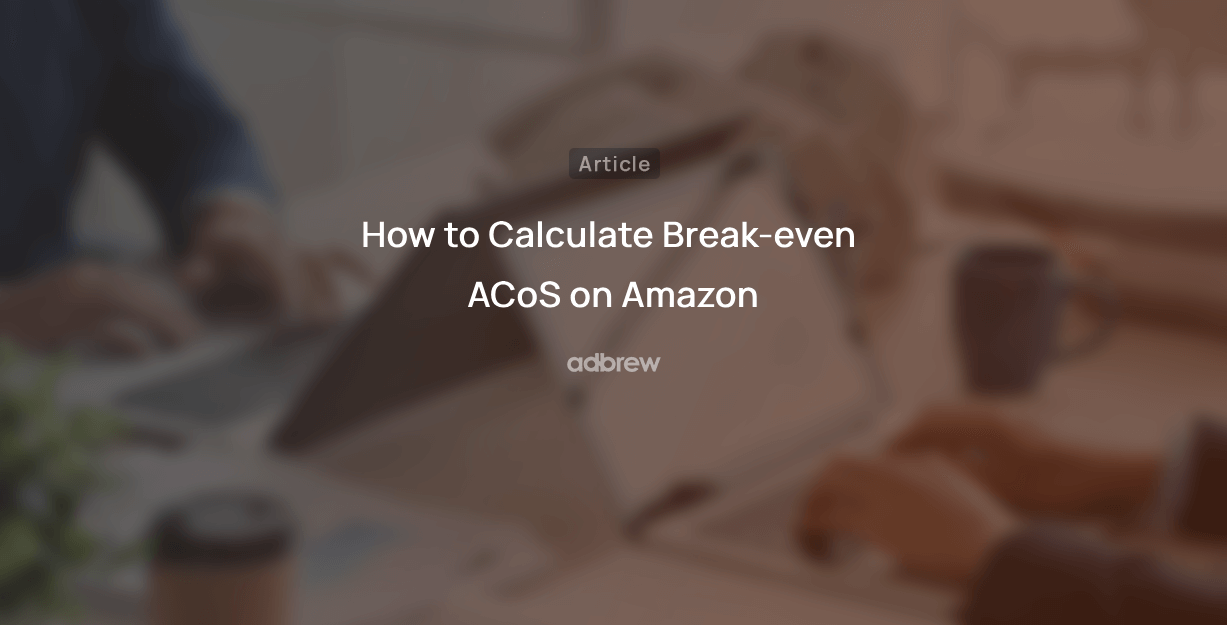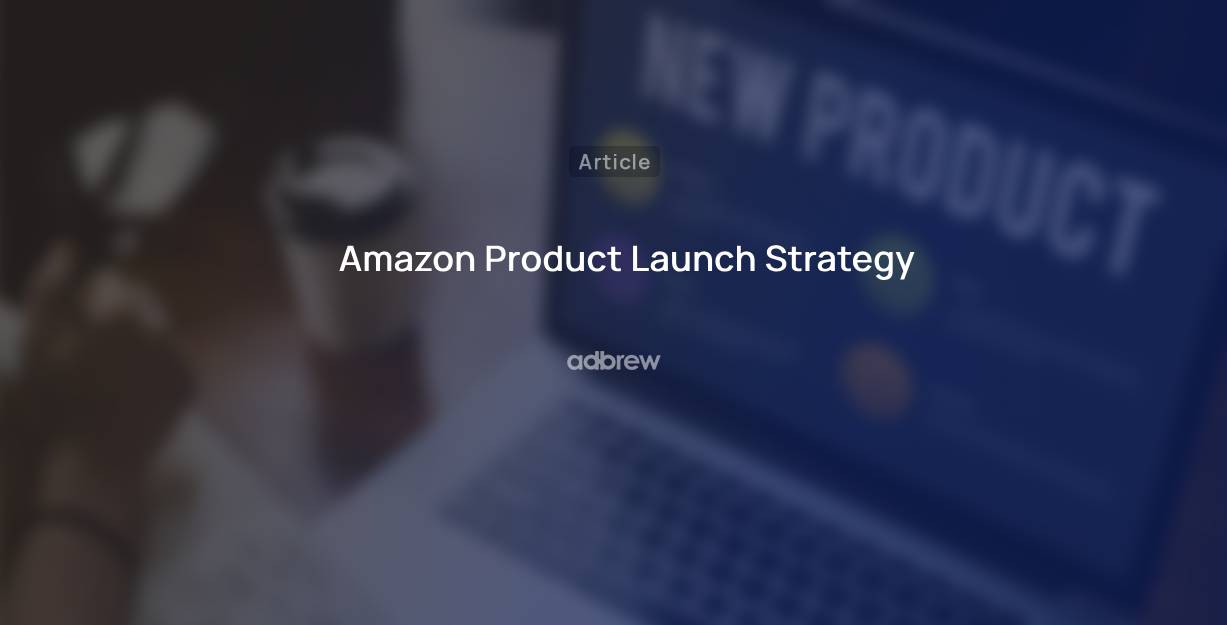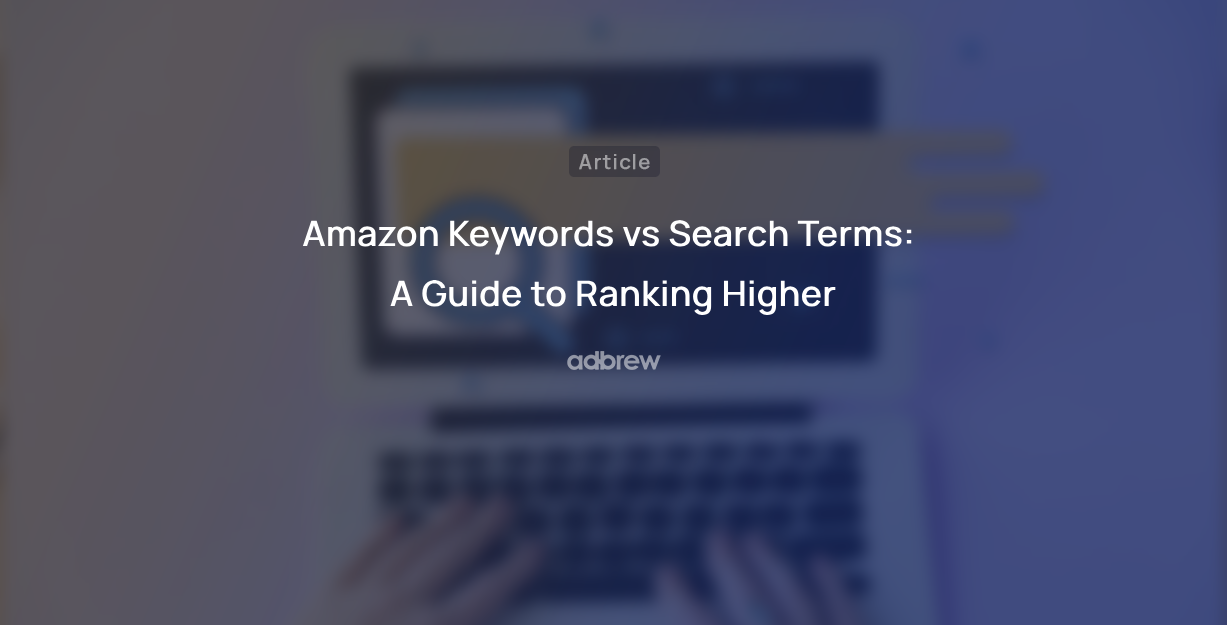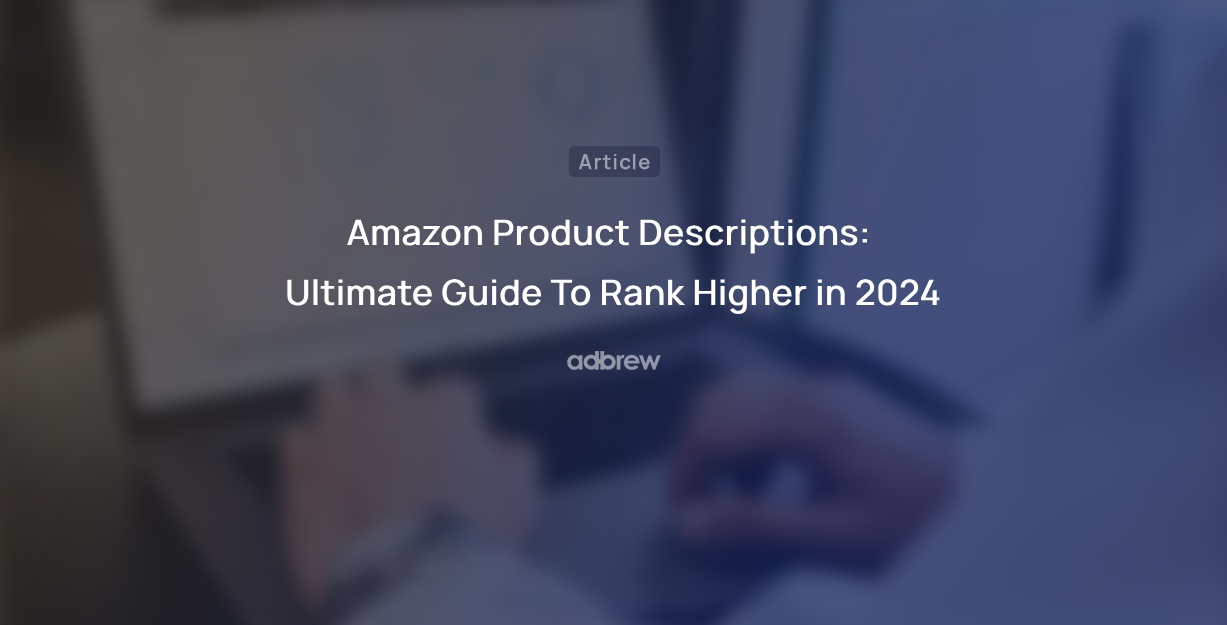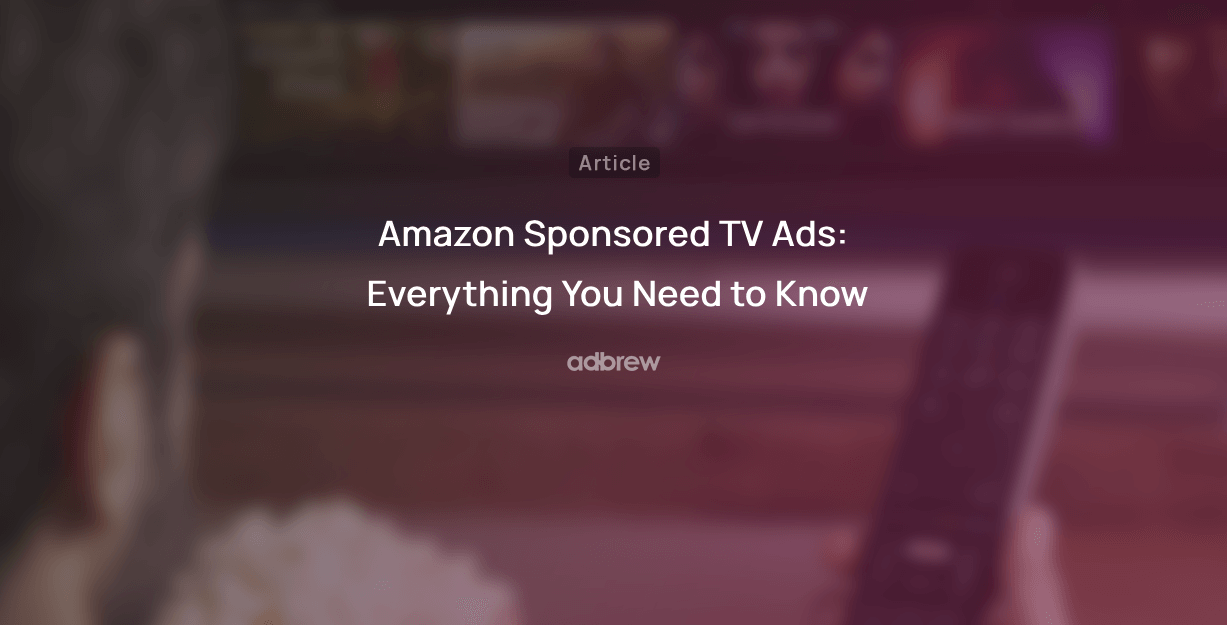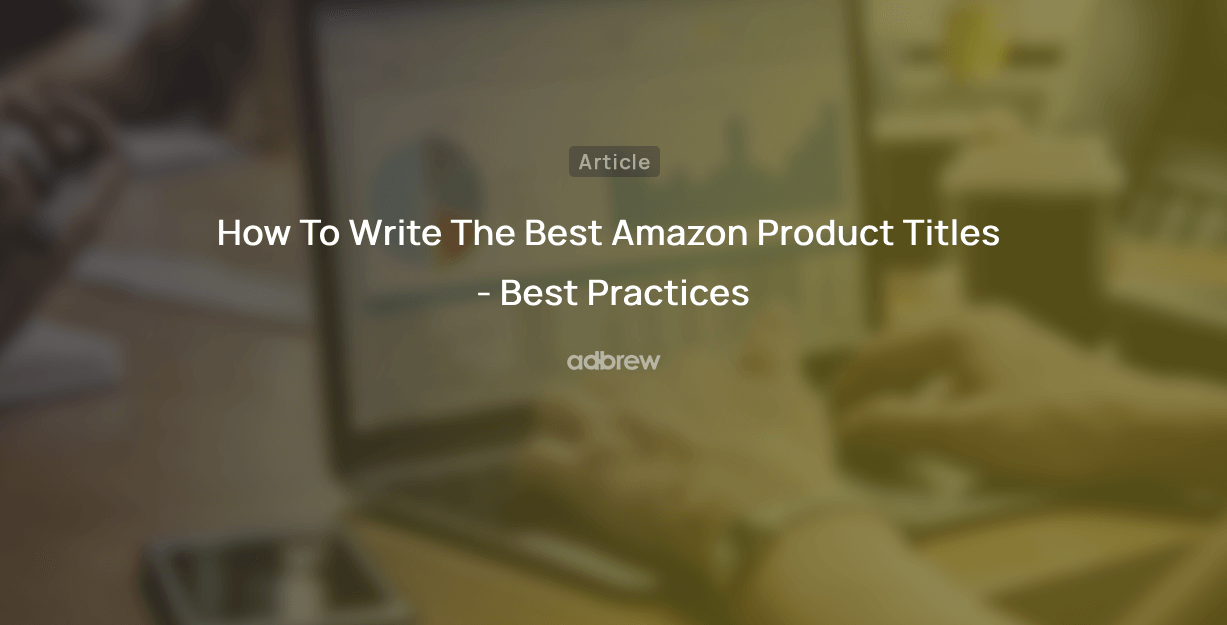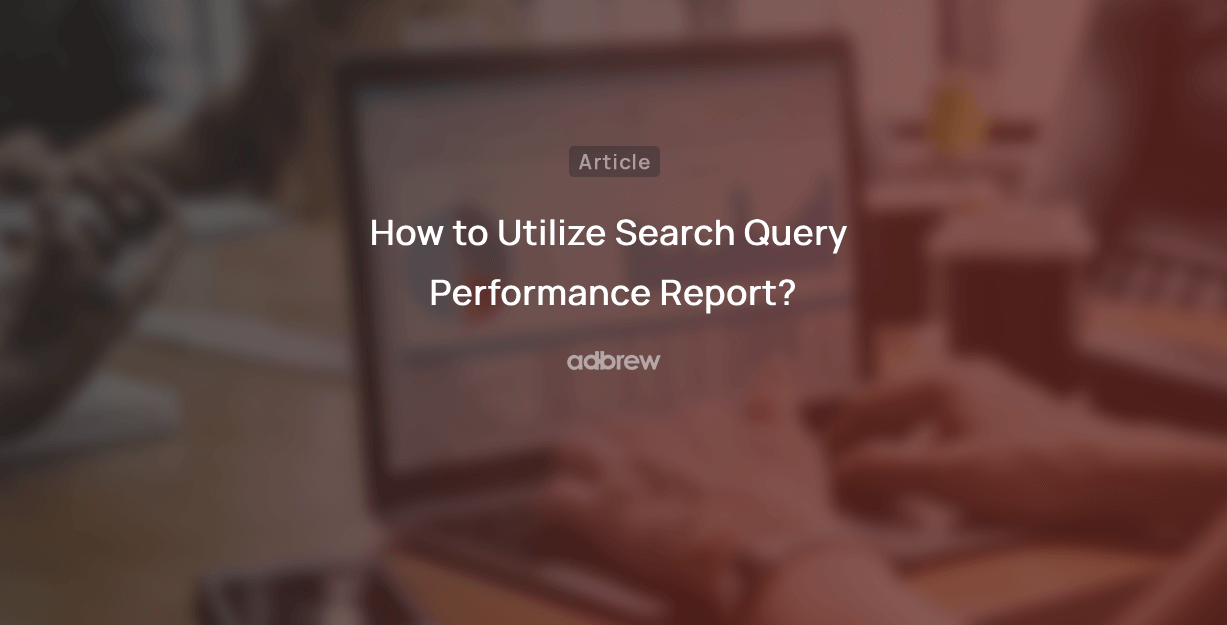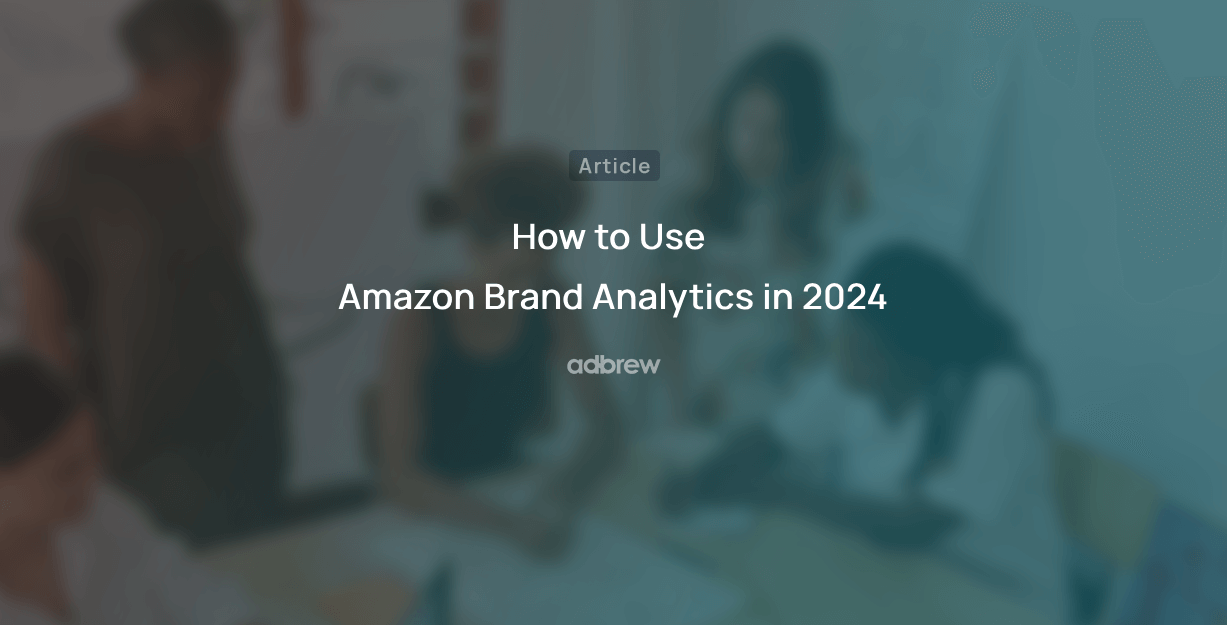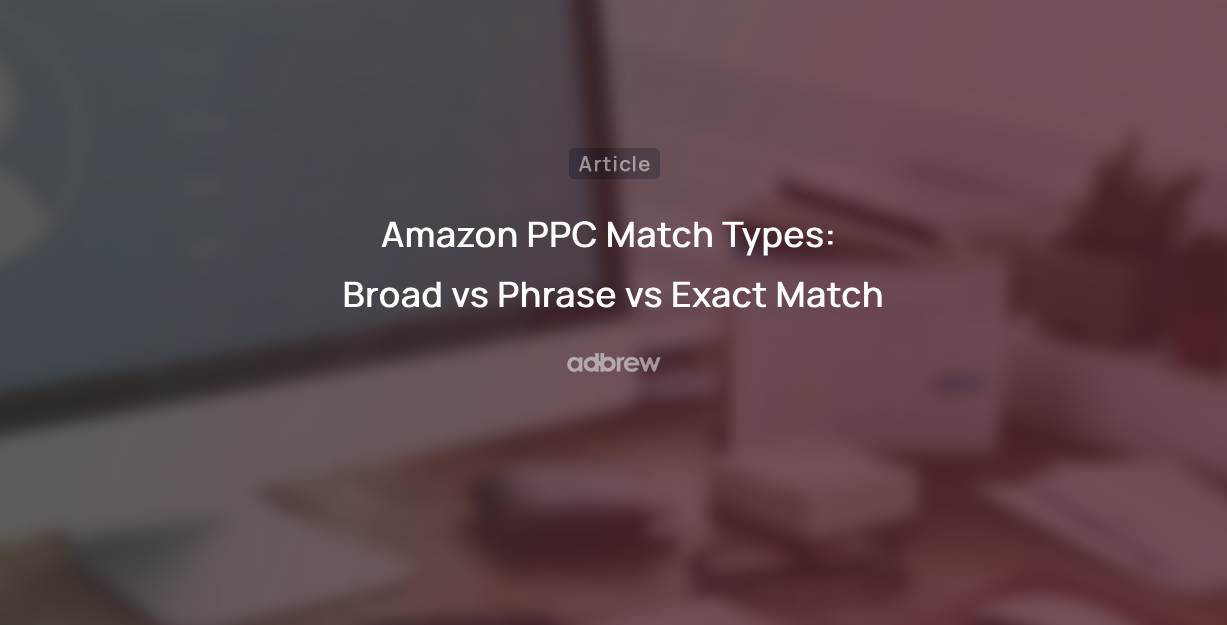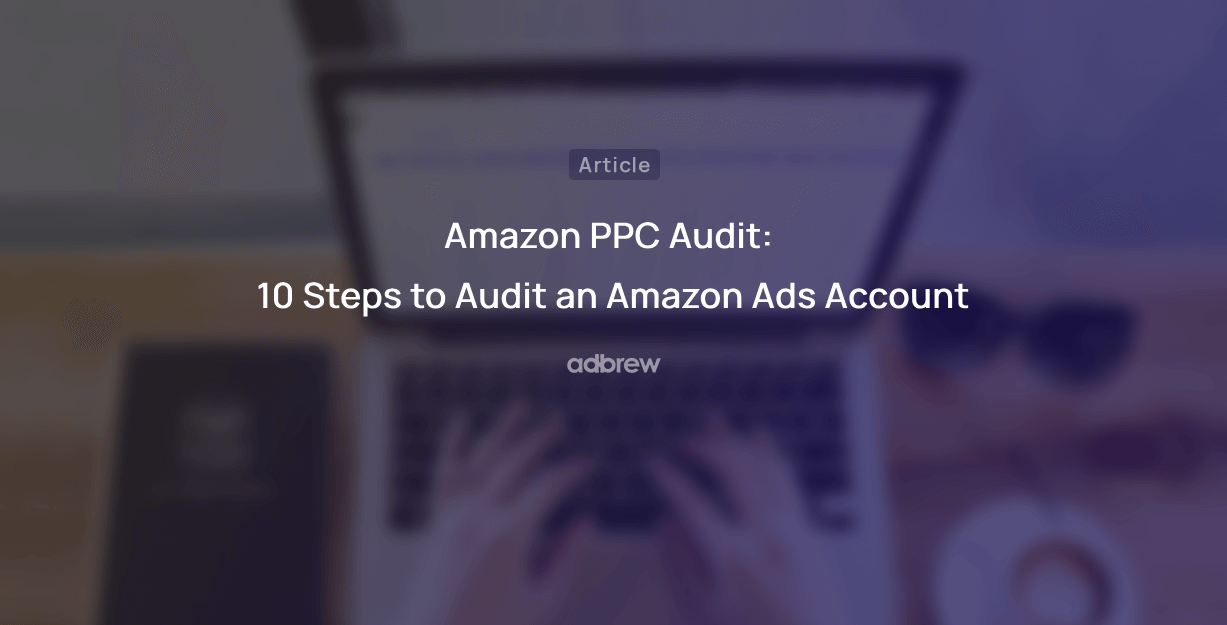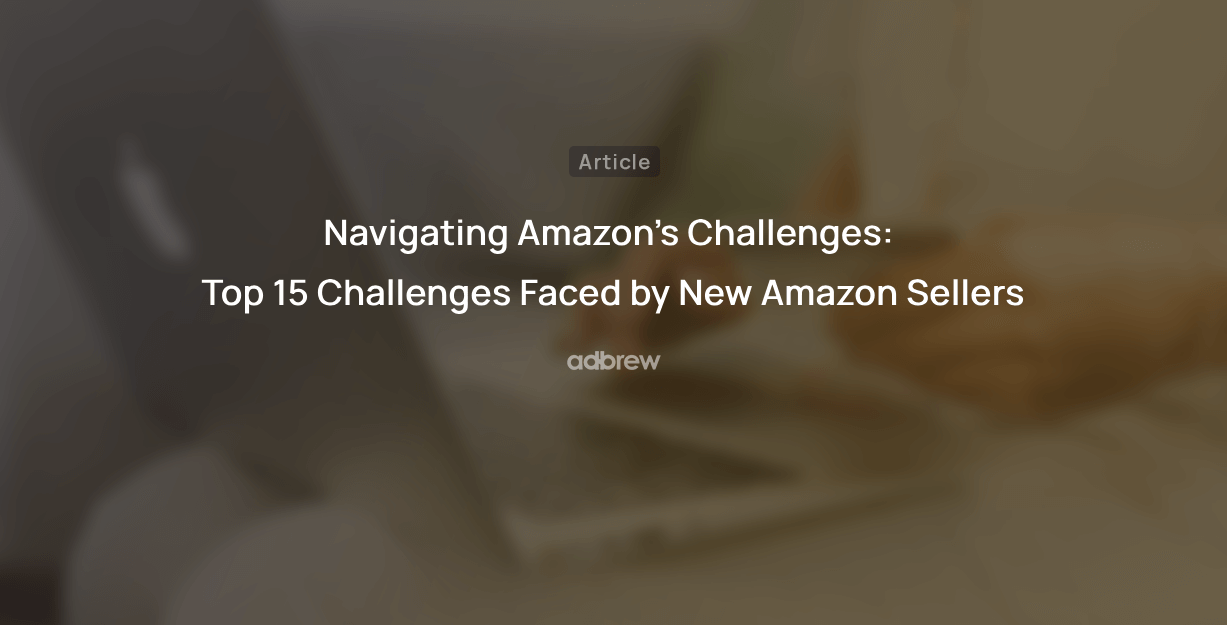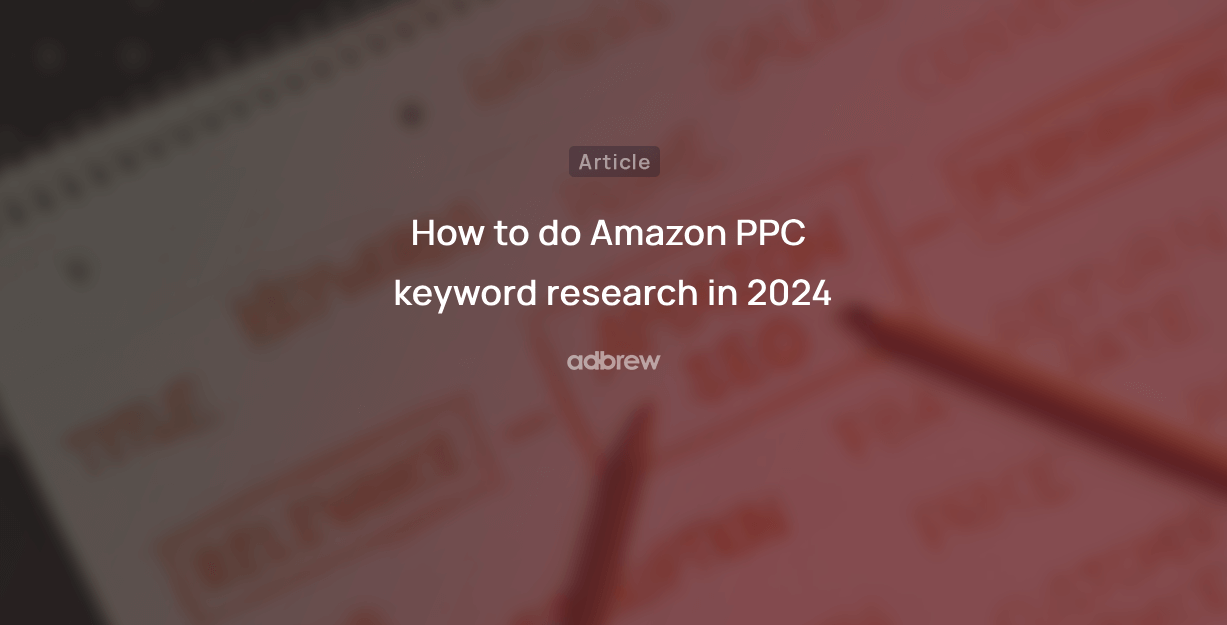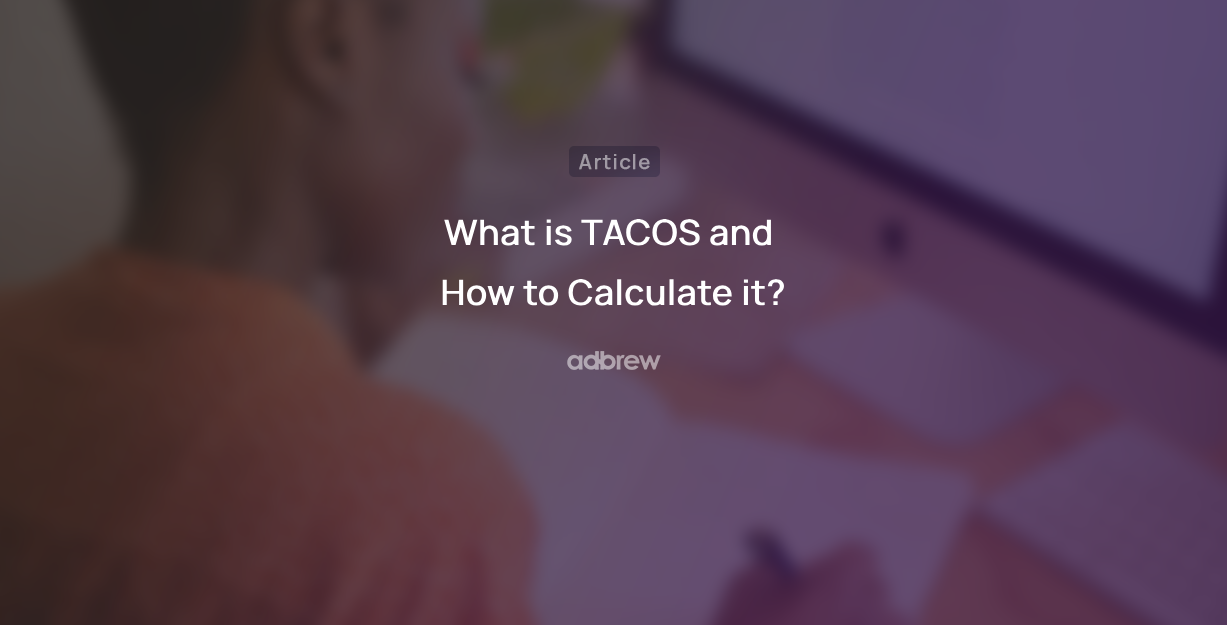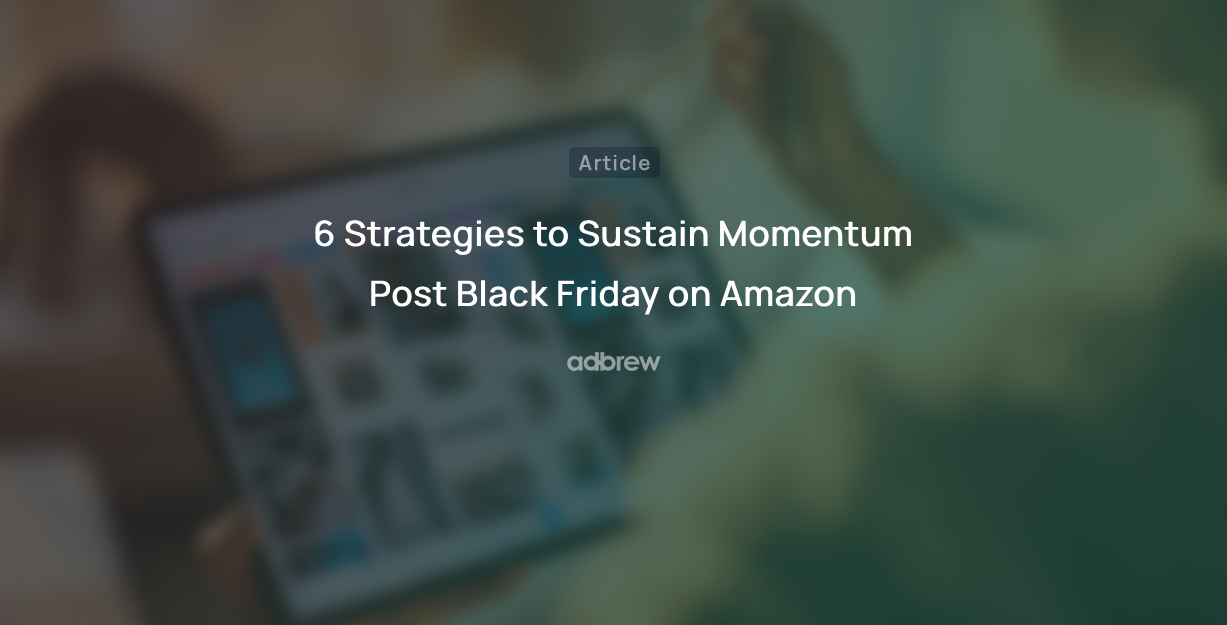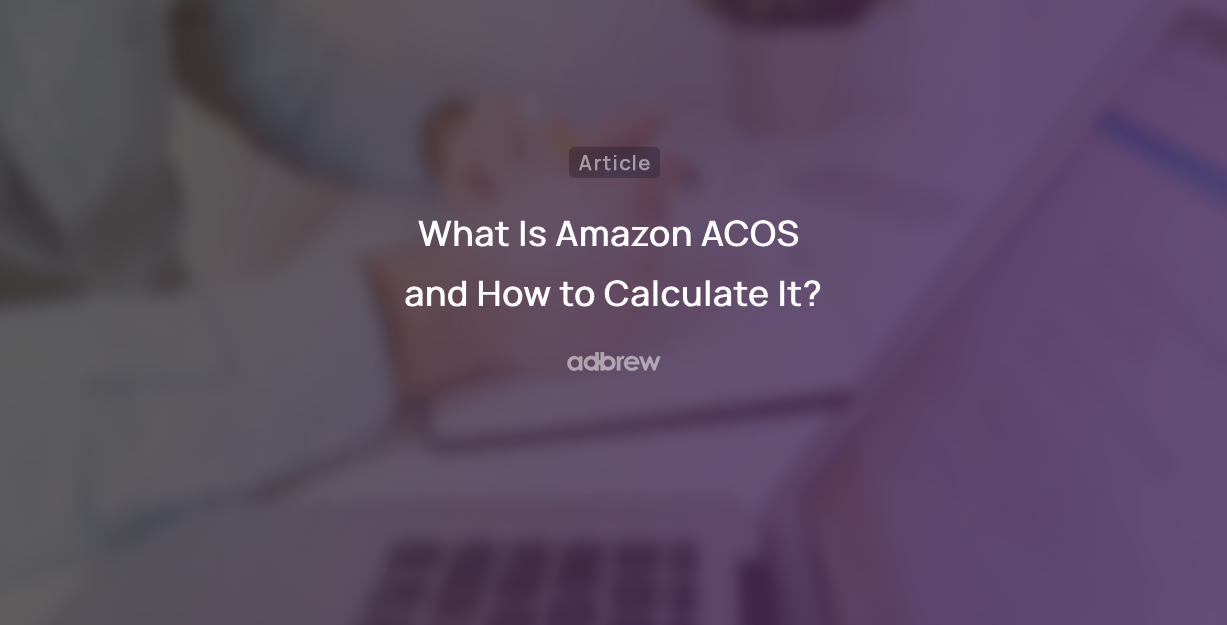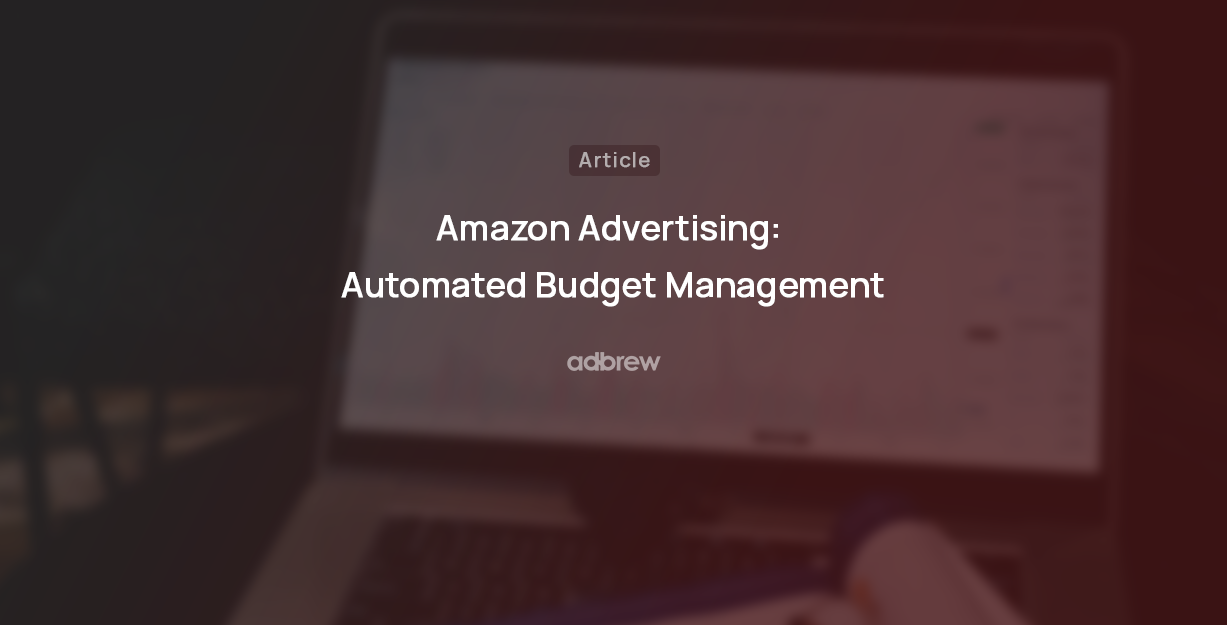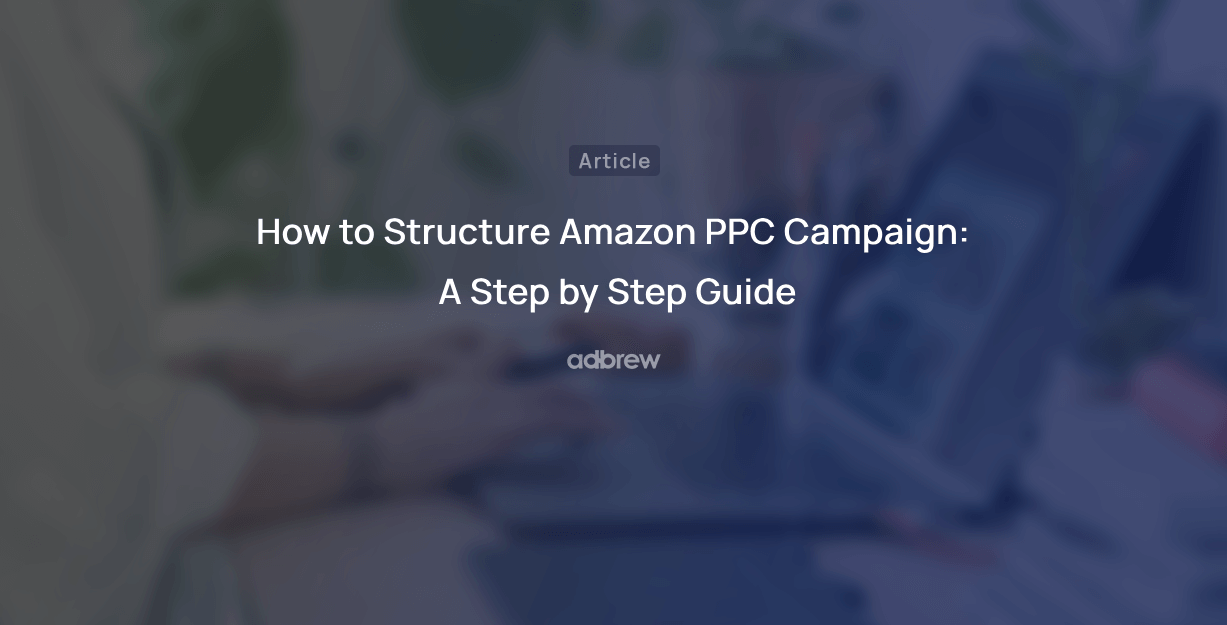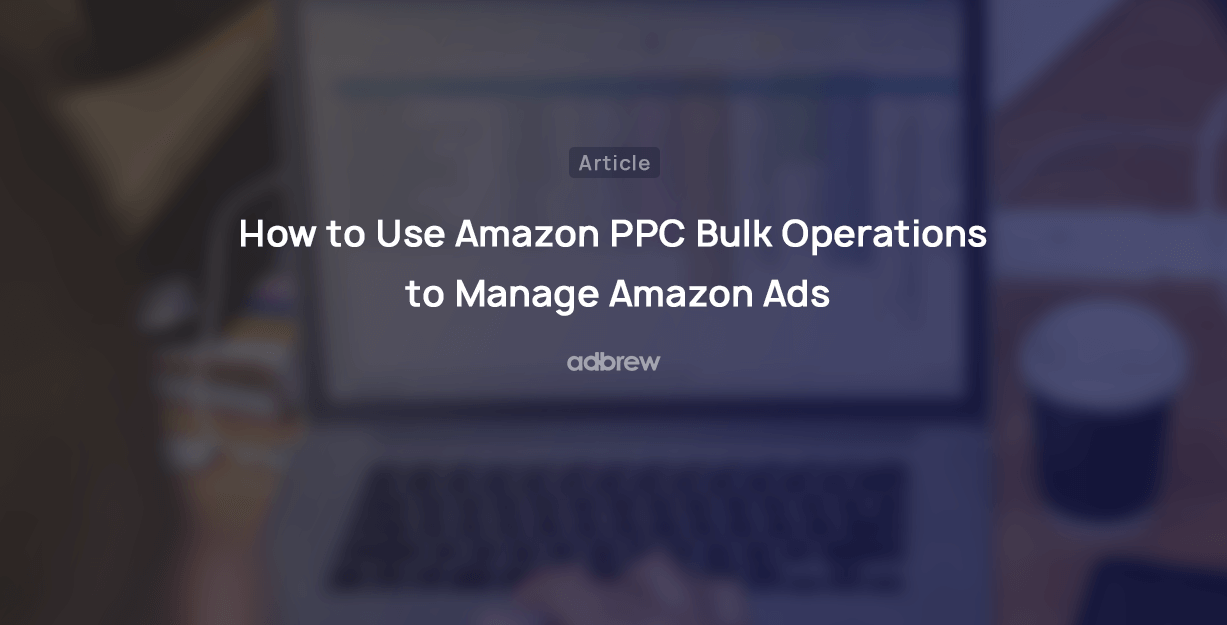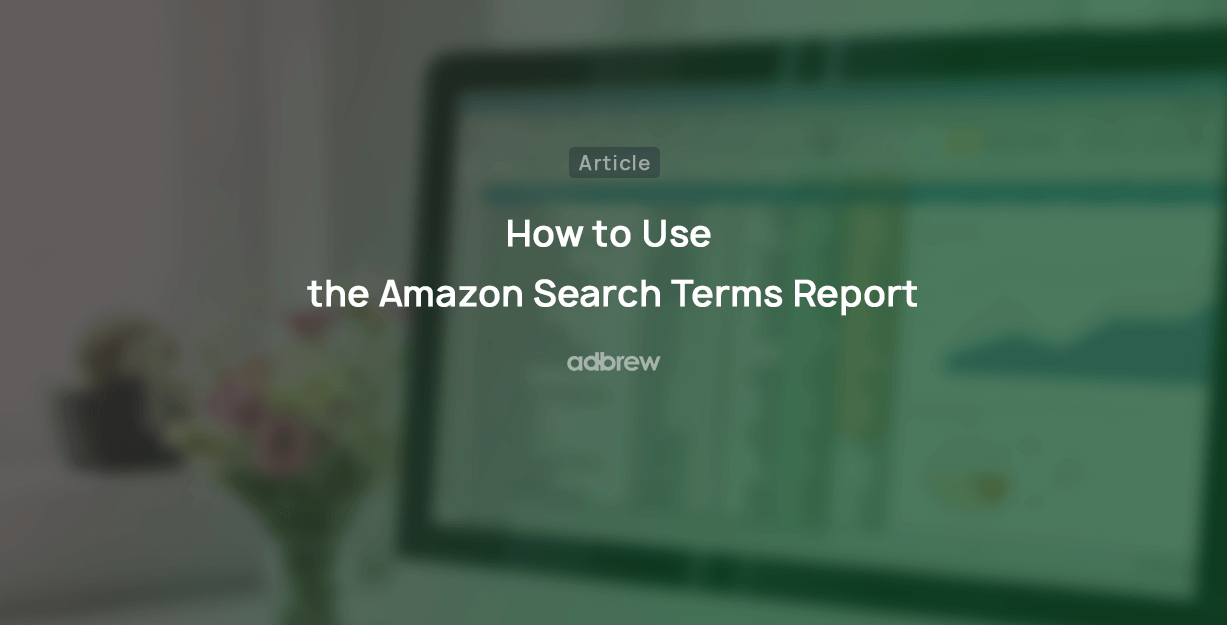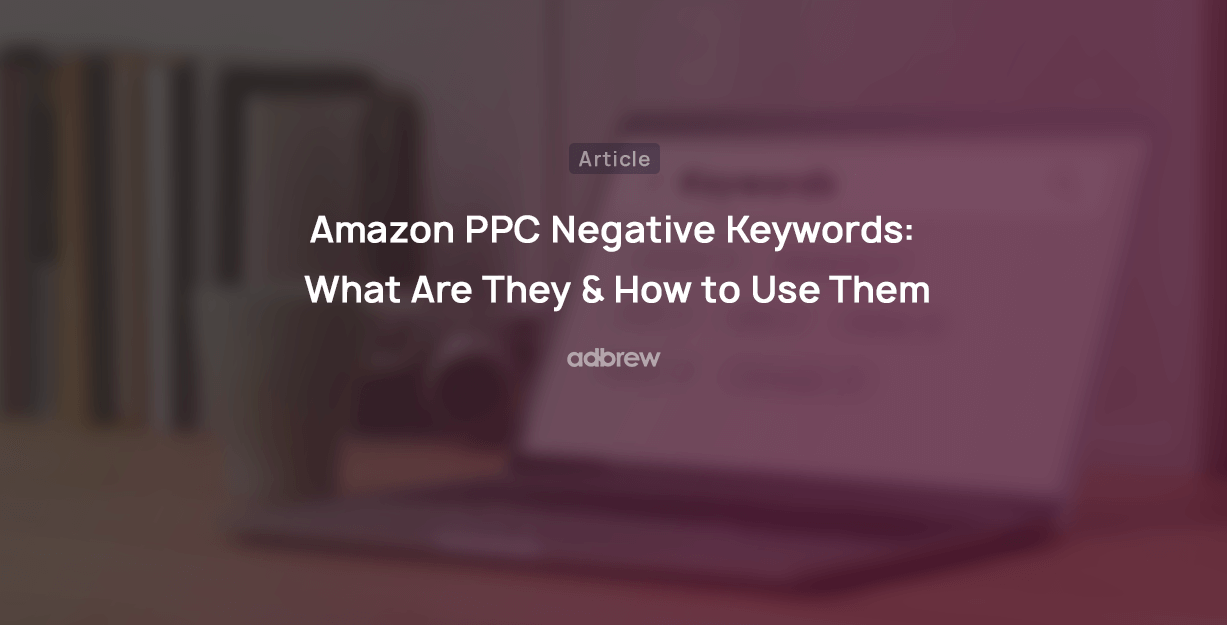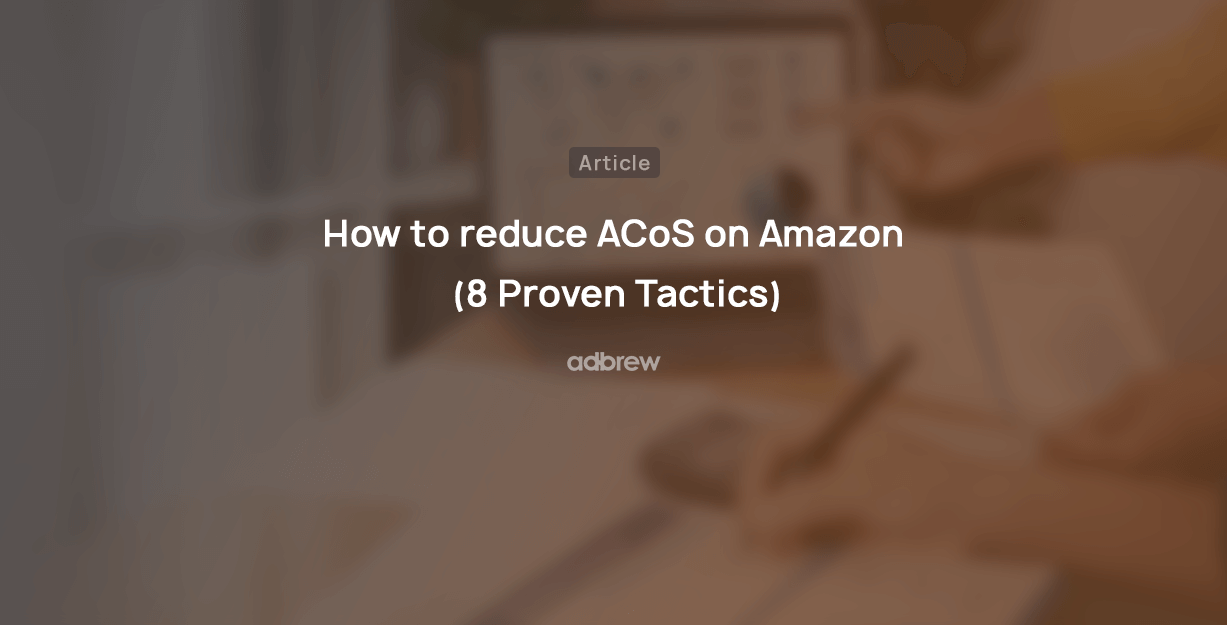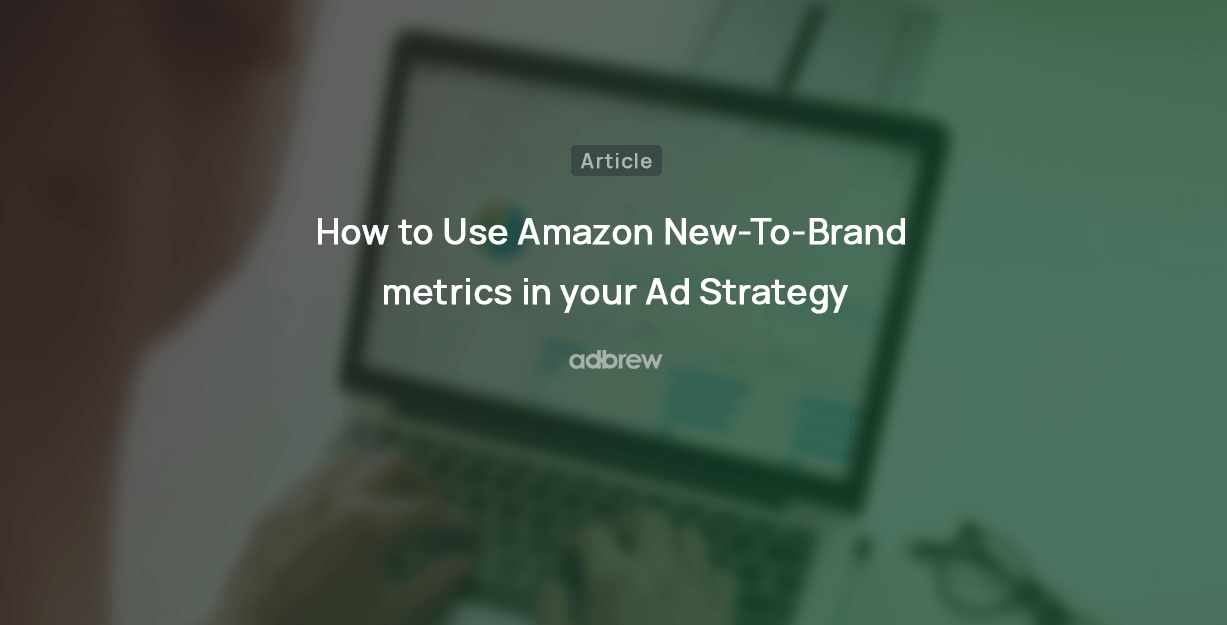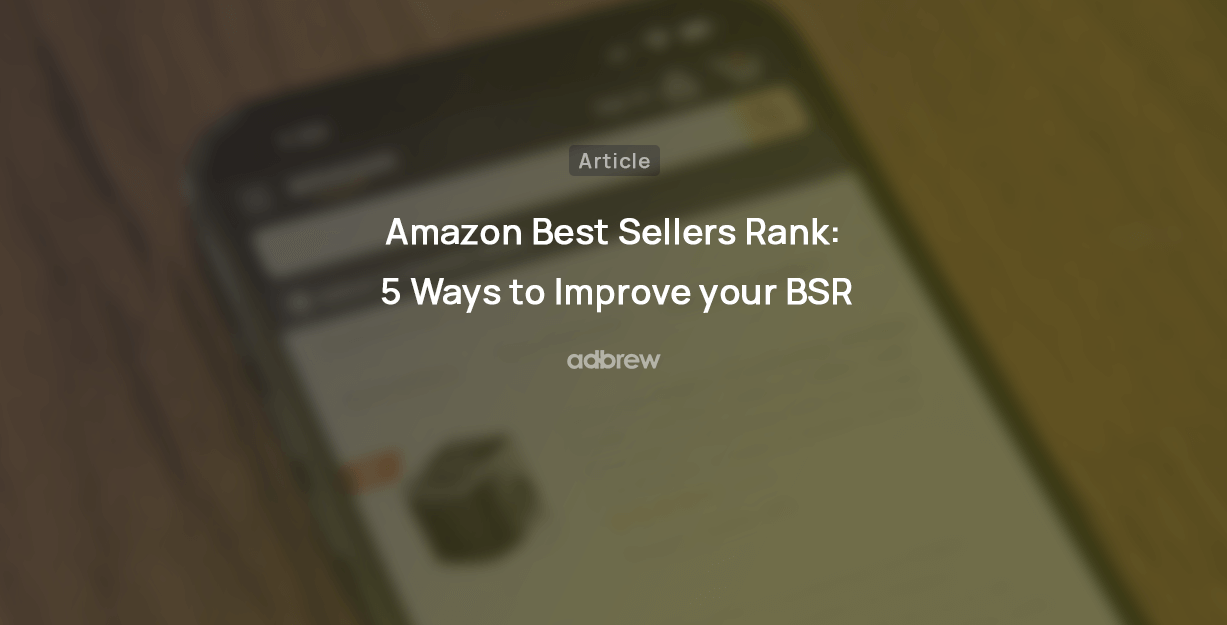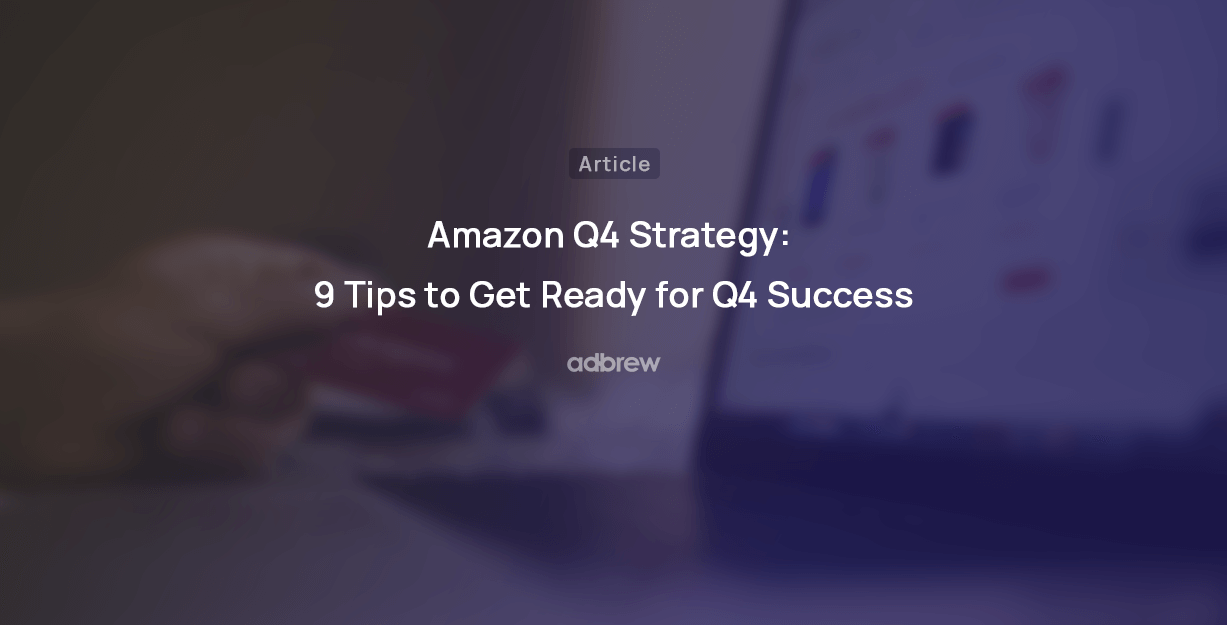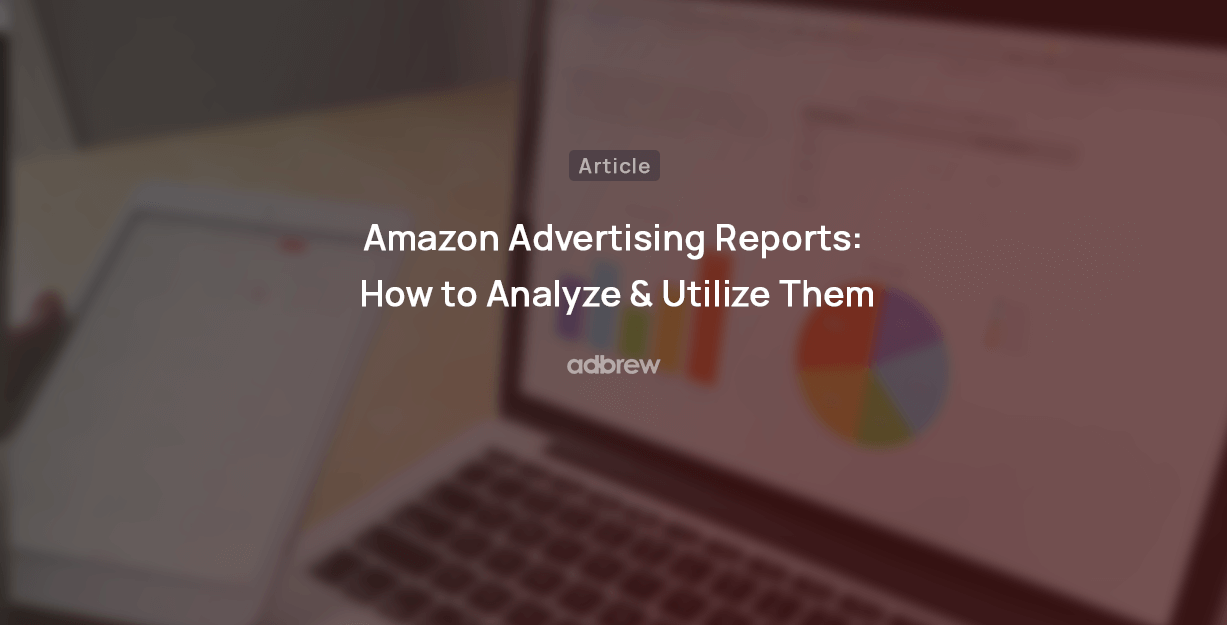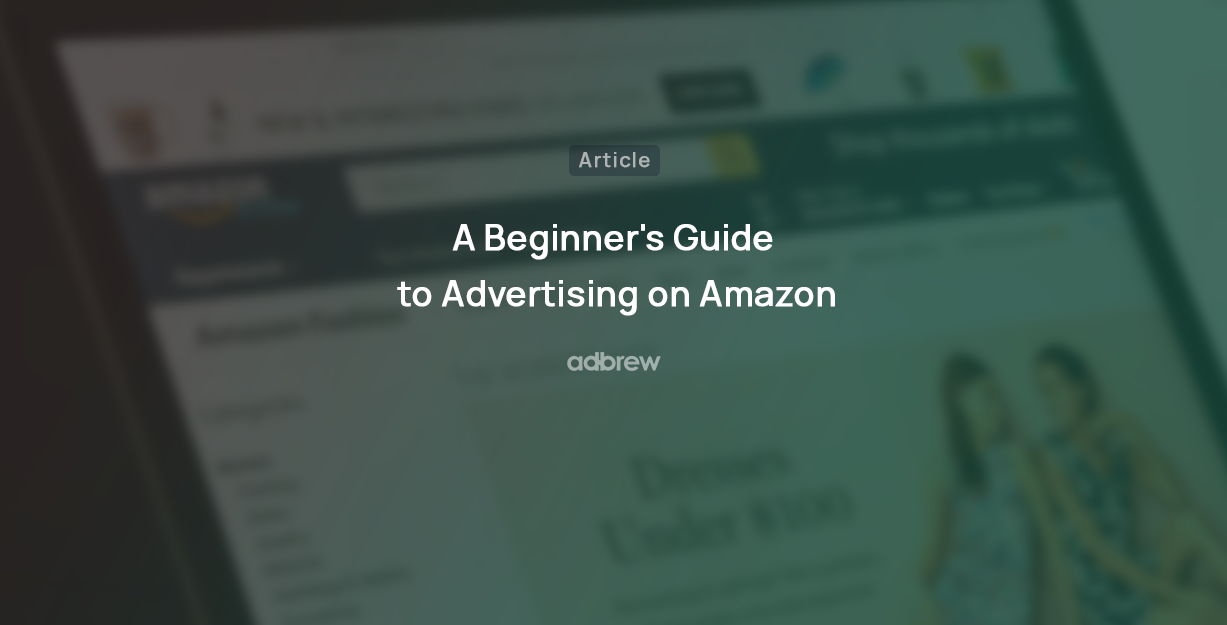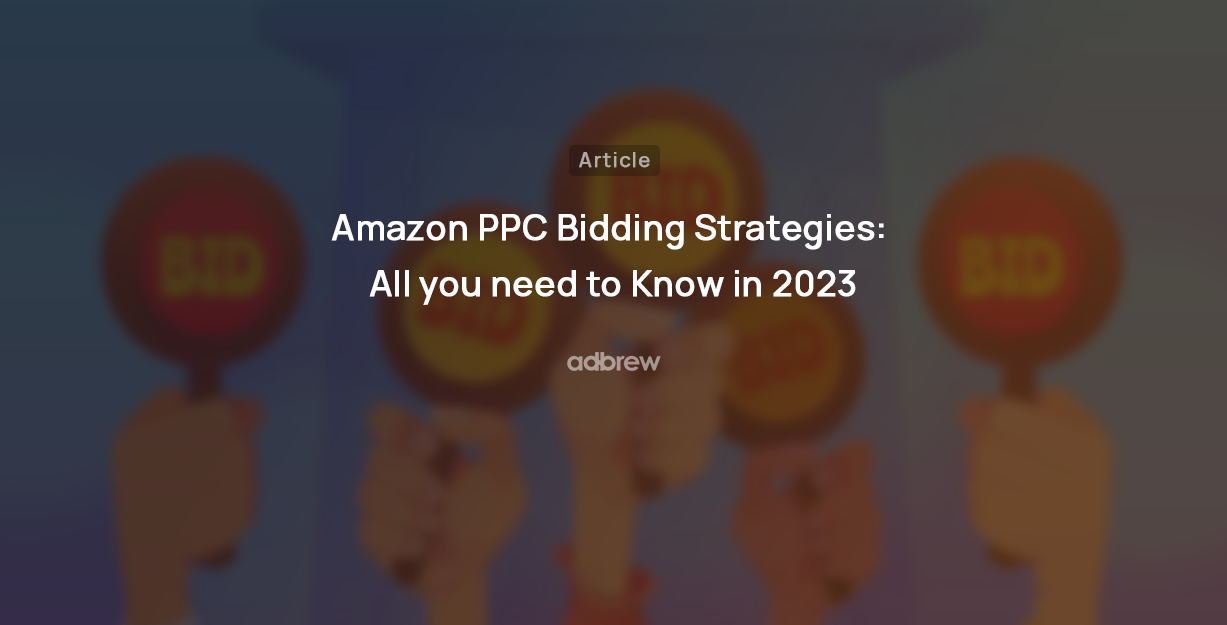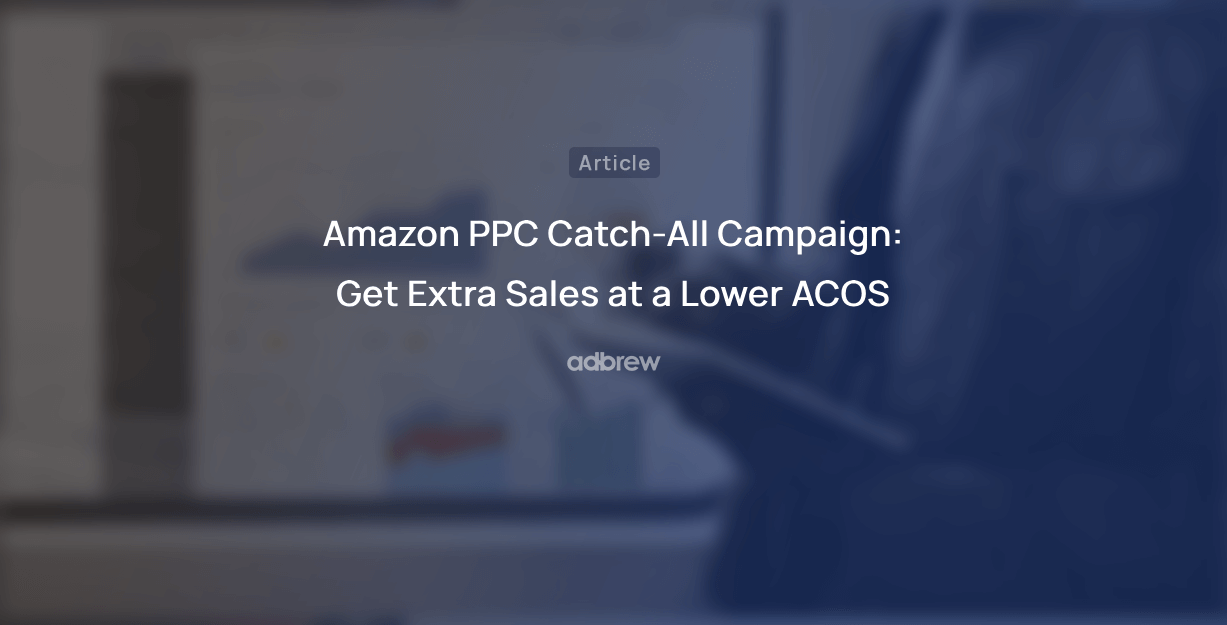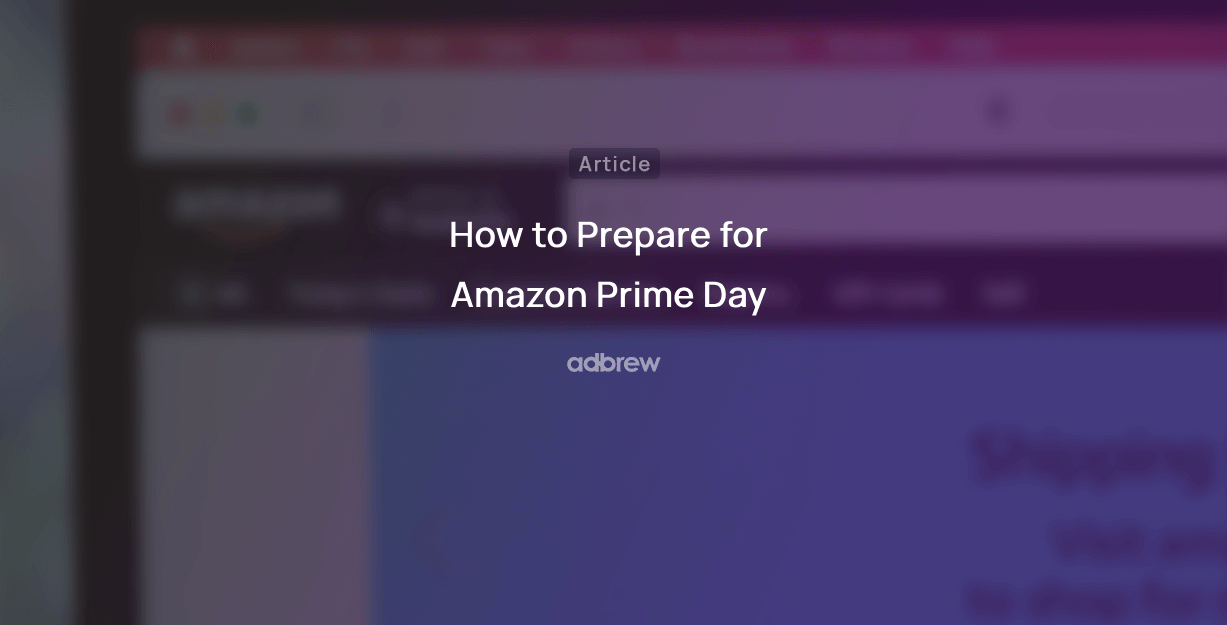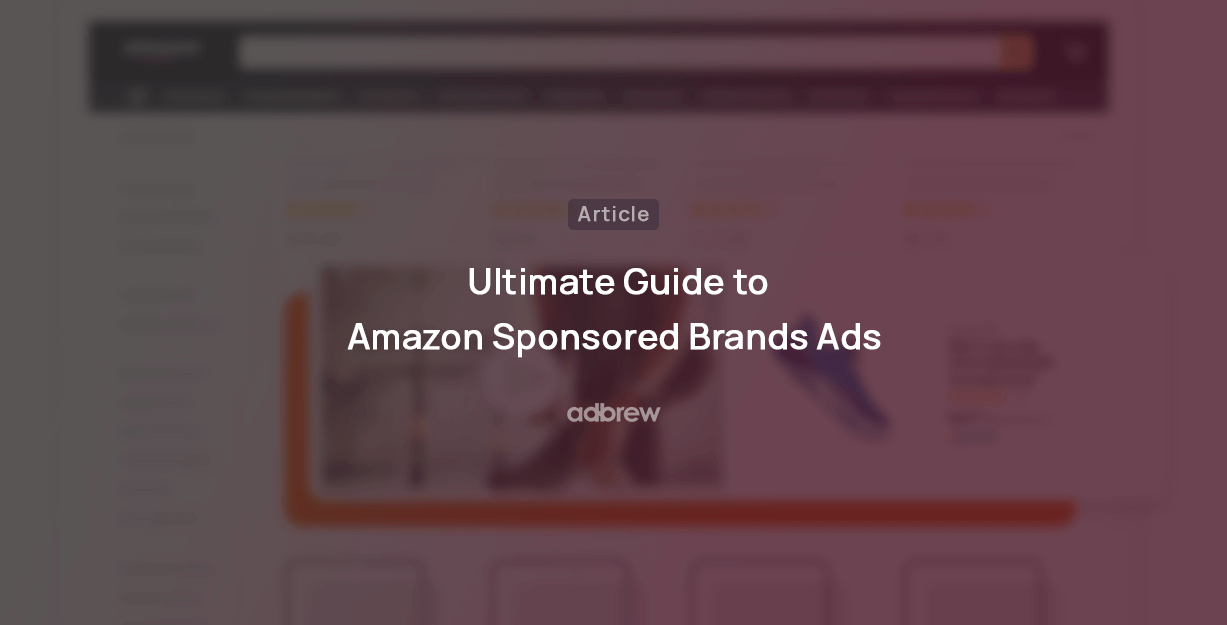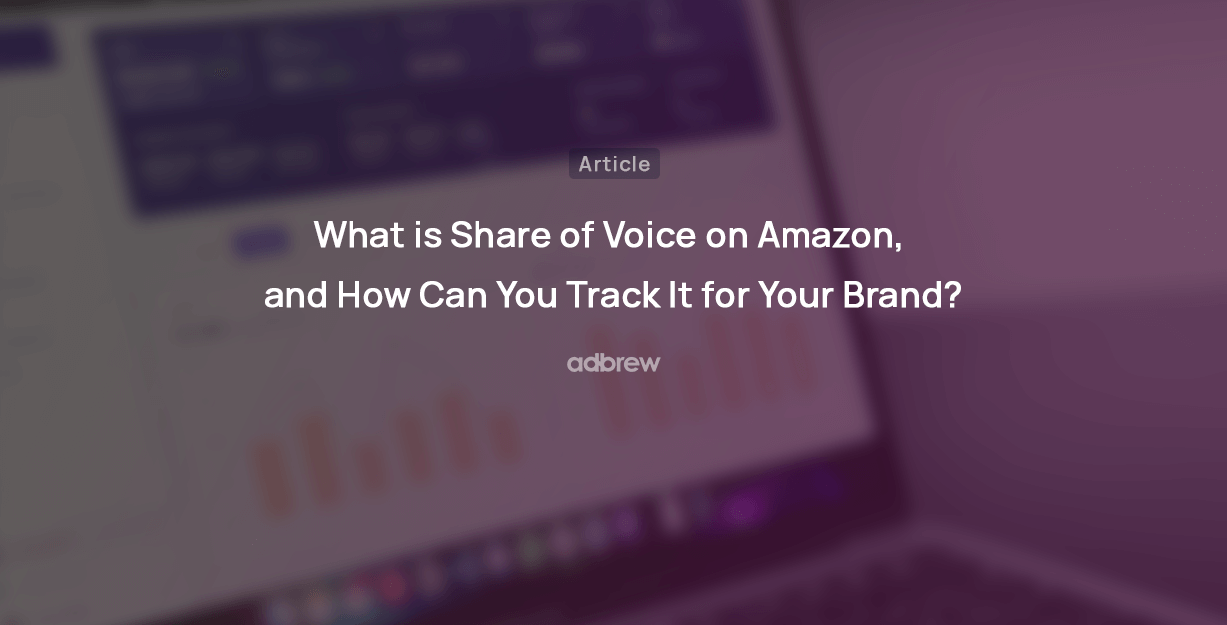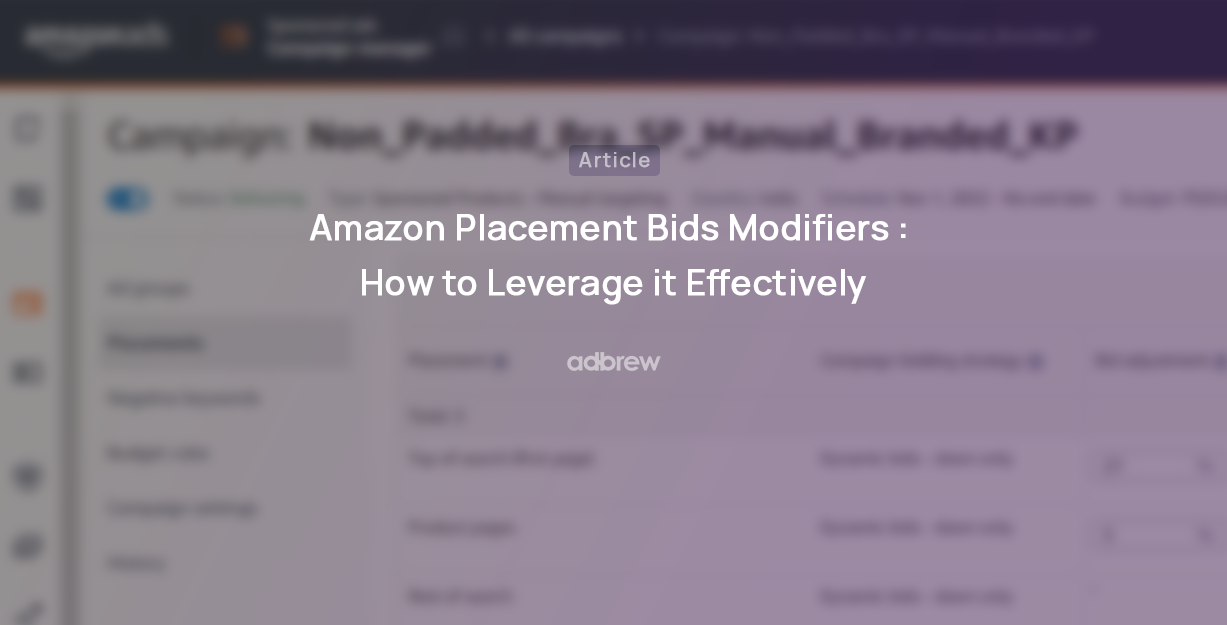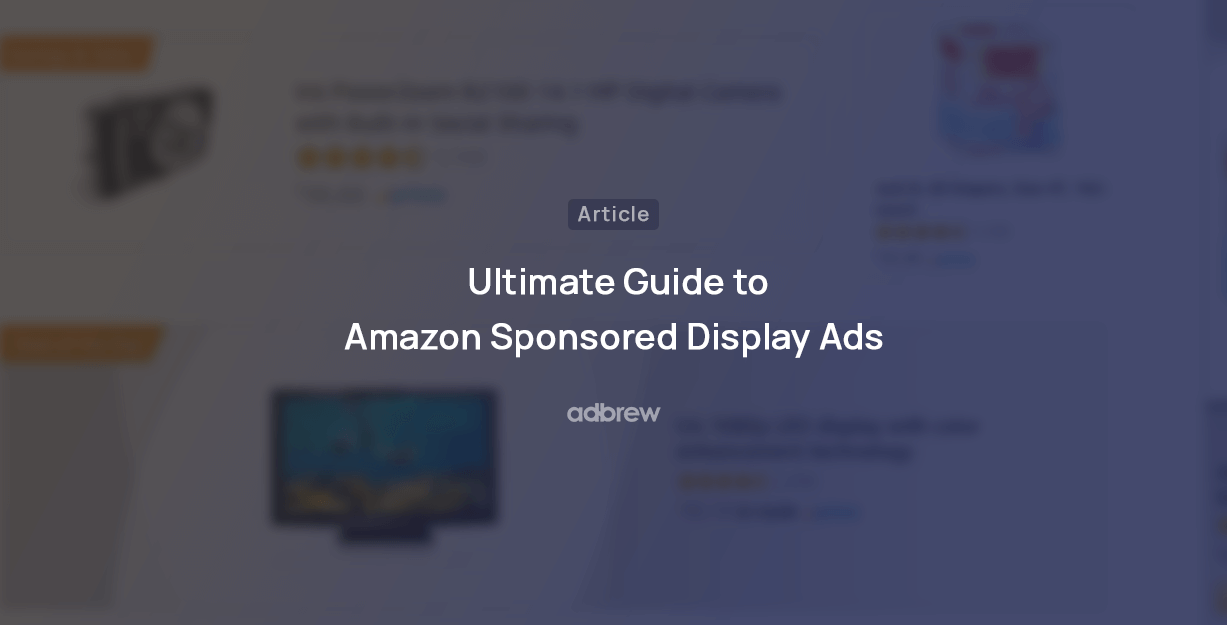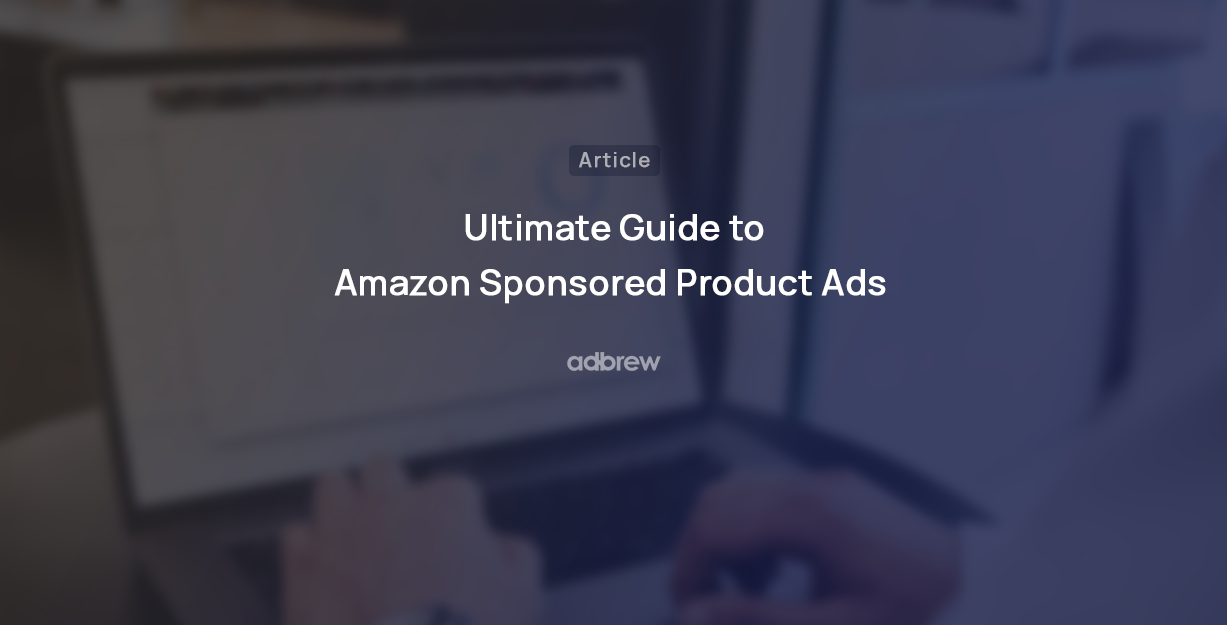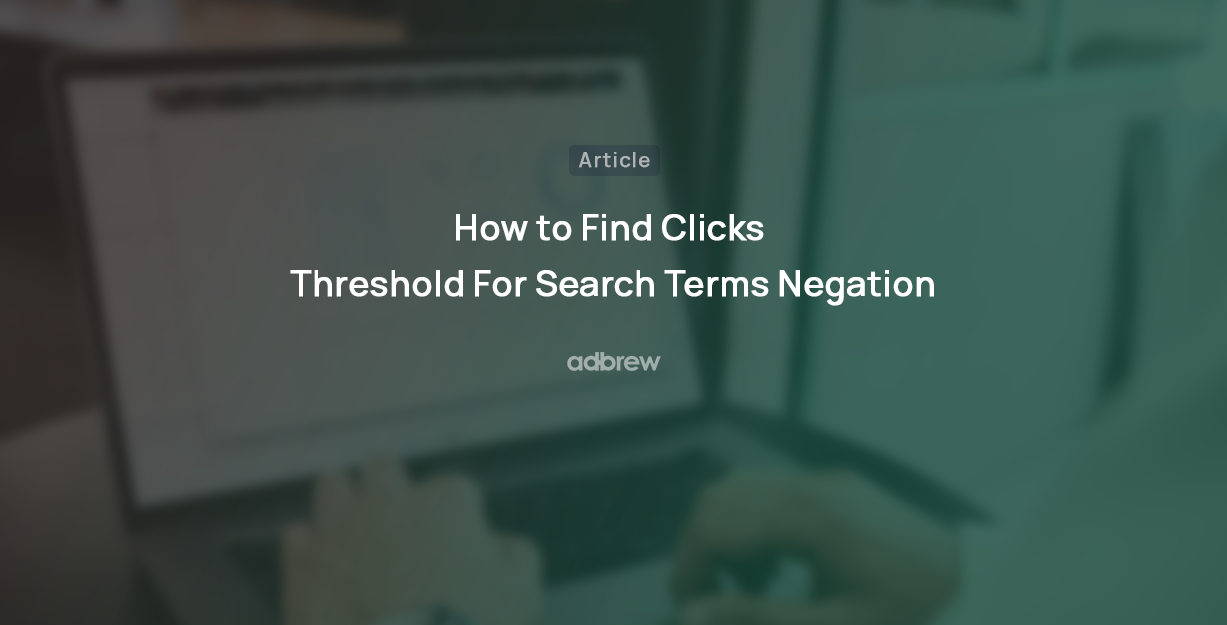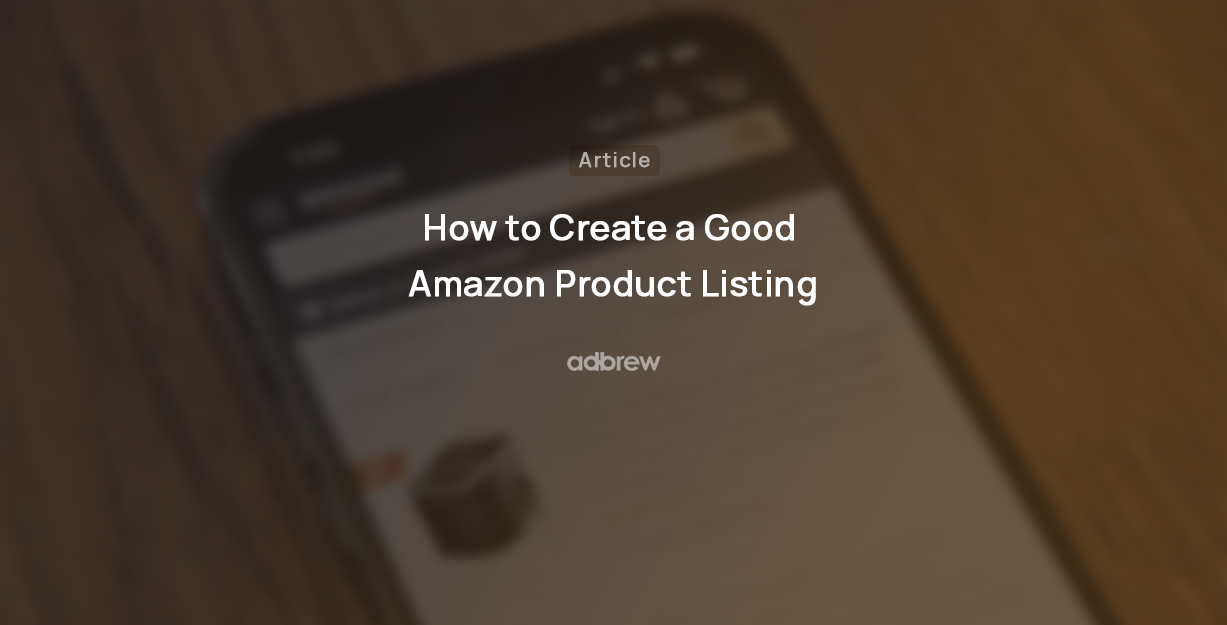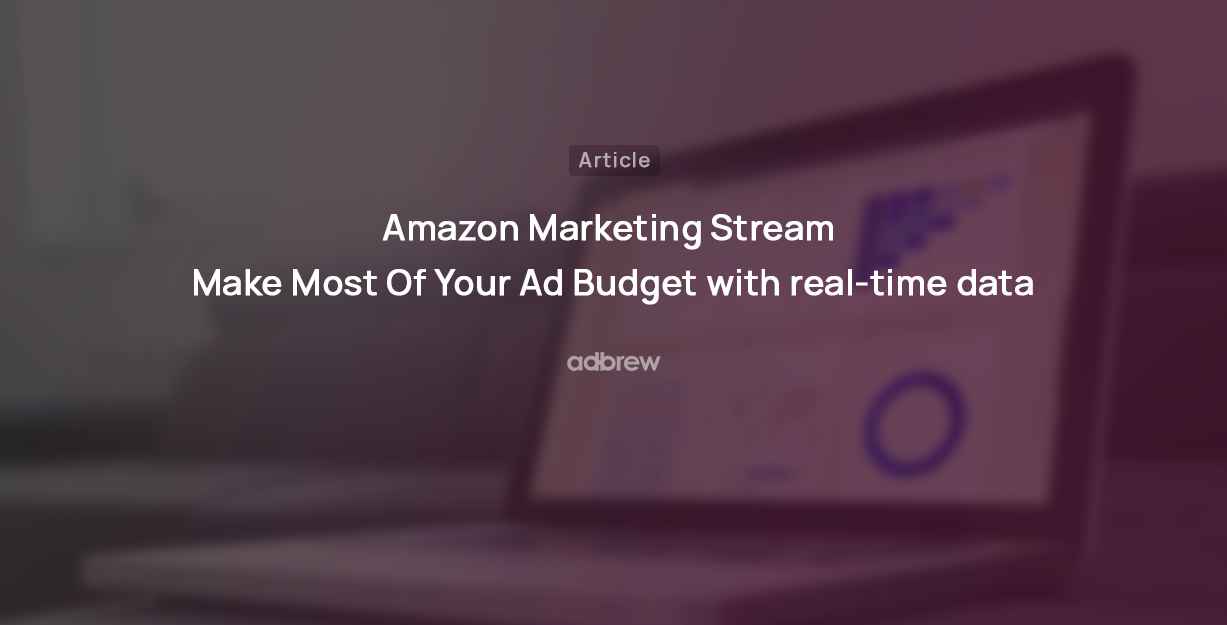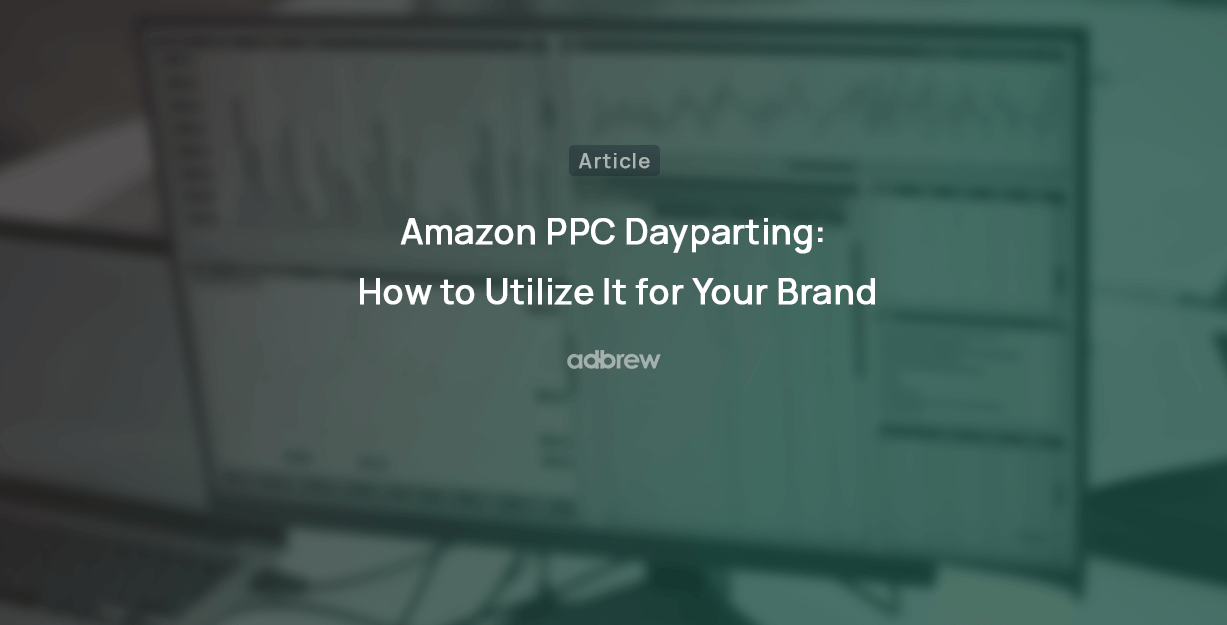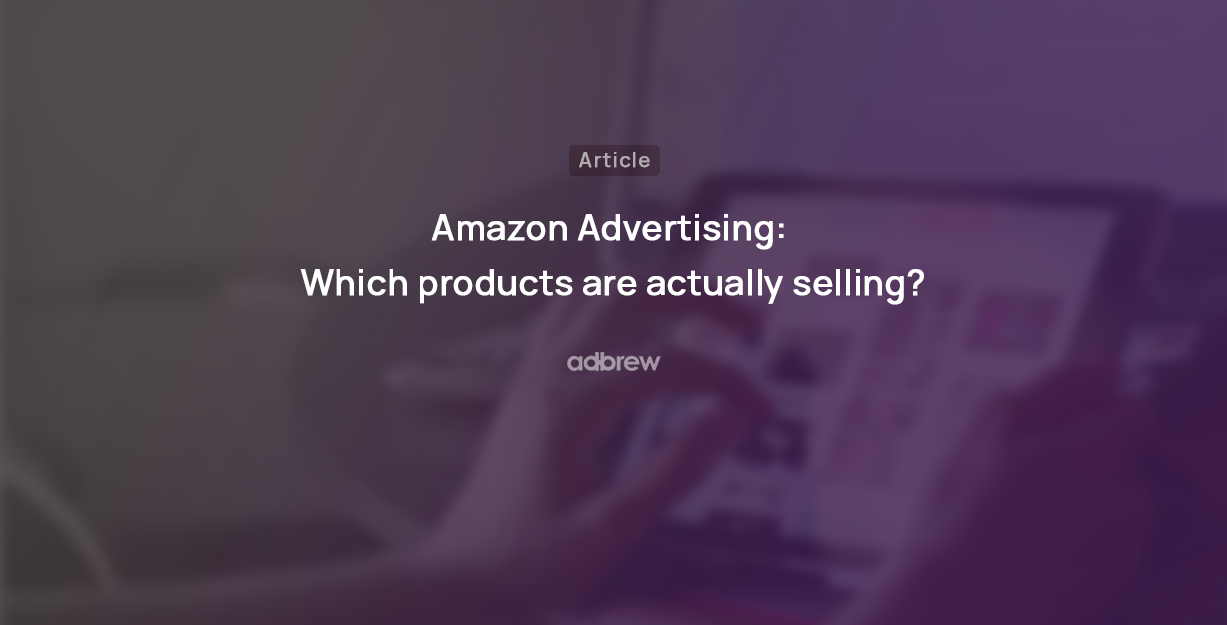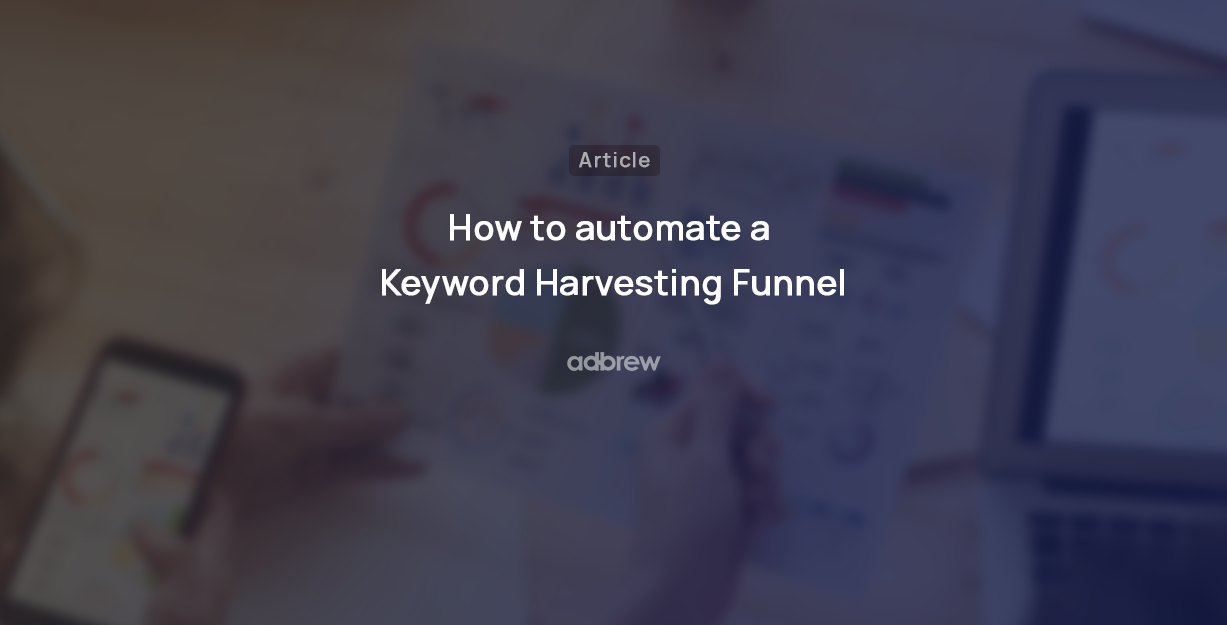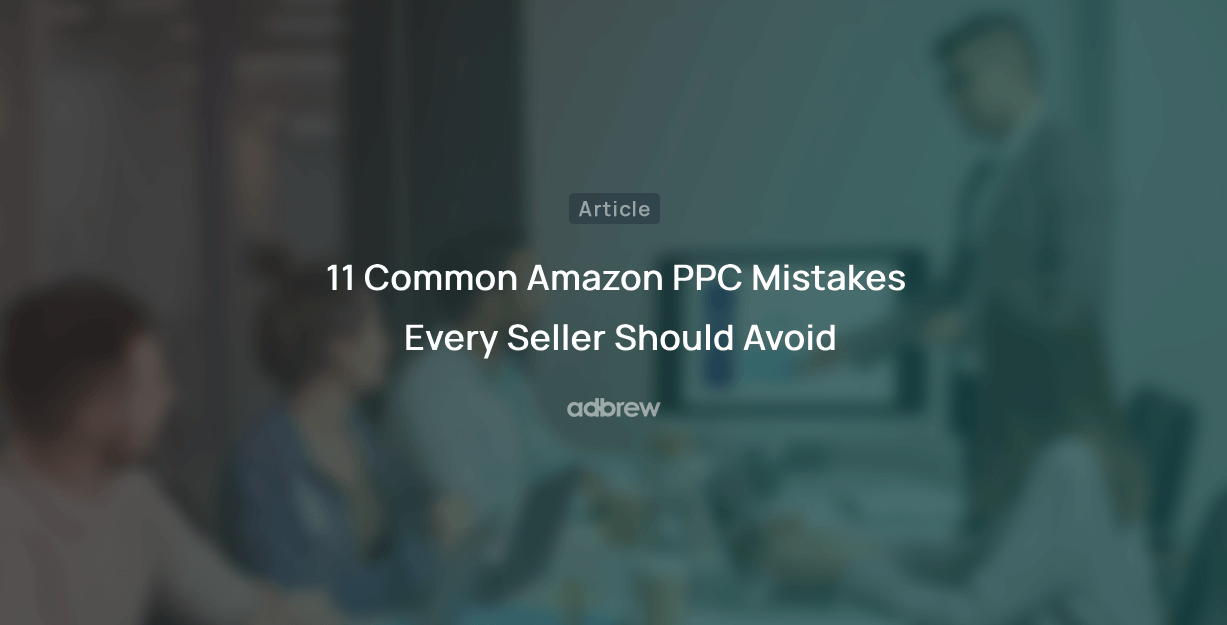
Advertising on Amazon through pay-per-click campaigns can significantly enhance product visibility and sales for sellers. However, mastering Amazon PPC, with its intricacies, can pose challenges, even for experienced sellers, leading to potentially expensive mistakes. In this blog, we’ll explore prevalent Amazon PPC mistakes and offer practical advice to help you avoid them effectively.
1. Neglecting Your Product Listing Optimization
Before diving into PPC, ensure your product listing is optimized for organic search. A well-optimized listing with relevant keywords, high-quality images, compelling product descriptions, and positive reviews acts as the foundation for successful PPC campaigns.
Amazon’s A10 algorithm prioritizes listings that convert organically. When potential customers find your product organically and click through to your listing, it signals to Amazon that your product is relevant and valuable. This, in turn, can lead to lower advertising cost and better ad placement.
2. Launching PPC Without Keyword Research
Imagine throwing darts blindfolded – that’s akin to running PPC campaigns without proper keyword research. Spend time identifying relevant search terms customers use to find products like yours. Utilize tools like Amazon Seller Central’s brand analytics and Product opportunity explorer and explore competitor listings to uncover high-performing keywords.
Focus on a Mix of Keyword Types: Include broad, medium-tail, and long-tail keywords to capture a wider audience while targeting specific searches.
Refine Your Keyword Strategy Over Time: Regularly analyze PPC data to identify which keywords are driving conversions and adjust your strategy accordingly.
3. Relying Solely on Automatic Campaigns
Automatic campaigns, like Sponsored Products Automatic Targeting and Sponsored Brands Automatic Targeting, can be a great way to discover new keywords, but they shouldn’t be your only strategy, especially for new product launches. Auto campaigns in comparison with manual campaigns lack the granular control needed for precise targeting and bid adjustments.
For new products, utilize manual ad campaigns where you have more control over keyword selection, match types, and bids. This allows you to focus on relevant keywords and optimize your bids based on performance data.
4. Ignoring Campaign Structure and Organization
A well-organized campaign structure is crucial for managing and optimizing your PPC efforts. Separate campaigns by product category, brand, and marketing goals. This allows you to track performance more effectively, adjust bids strategically, and identify top-performing products and keywords within each campaign and ad group.
5. Ignoring Negative Keywords
Negative keywords are essential for preventing your ads from being triggered by irrelevant searches. By identifying and adding negative keywords, you ensure your ads are shown only to users searching for products related to yours. This helps utilize your ad budget on the right audience and improve ad efficiency.
6. Not Bidding on Branded Terms
When a customer searches for your brand name, it’s a golden opportunity to connect with them directly. But if you’re not bidding on your brand terms, competitors might be! This can be detrimental in two ways:
Missed Sales Conversions: A customer searching for your brand is likely close to making a purchase decision. If your competitor’s ad shows up instead, you risk losing that sale.
Weakened Brand Control: When competitors appear for your brand name, it creates confusion and weakens your brand identity in the customer’s mind.
Bidding on your brand terms ensures your ads are displayed prominently whenever someone searches for you. This strengthens brand awareness, steers customers towards your official listings, and ultimately protects your hard-earned brand equity.
7. Making Hasty Adjustments
Amazon’s PPC system is like a learning machine. It analyzes data from your campaigns to understand how to get you the best results. But this process takes time. Here’s why making hasty adjustments can hurt your performance:
Disrupting the Learning Algorithm: Frequent changes prevent the algorithm from gathering enough data to optimize your campaigns effectively. Imagine changing your study strategy every day during an exam – it’s hard to learn and improve that way.
Missing Valuable Insights: Short-term fluctuations in performance are normal. Overreacting to a single day’s data can lead you to make unnecessary adjustments that might have been fine if you’d just waited a bit.
Here’s a better approach:
Set a Review Schedule: Dedicate specific times each week or month to analyze your campaign data. This ensures you have a consistent flow of information to base your decisions on.
Track Trends Over Time: Look for patterns and trends in your metrics (impressions, clicks, conversions) over a longer period. This will help you identify areas that are genuinely underperforming and need attention.
Make Data-Driven Decisions: When it’s time to make adjustments, base them on insights from your data analysis. Don’t just make random changes hoping for improvement.
8. One-Size-Fits-All Optimization Approach
Not all keywords are created equal. Utilize a tiered optimization strategy. For high-performing keywords with a strong conversion rate, consider increasing bids to capture more traffic. For low-performing keywords with minimal conversions, analyze the cause. If the keyword is irrelevant, add it to your negative keyword list. If it’s a relevant but underperforming keyword, consider lowering your bid or optimizing the product listing for better conversion.
9. Failing to Consider the Paid/Organic Link
Don’t view PPC as an isolated strategy. PPC campaigns can significantly boost your organic ranking on Amazon. Increased ad visibility and clicks can signal to Amazon’s A10 algorithm that your product is relevant and in demand, leading to a higher organic ranking over time. This creates a powerful synergy that drives sales and brand awareness.
10. Turning Off PPC Campaigns Prematurely
PPC is an ongoing process, not a one-time fix. Even well-performing advertising campaigns require monitoring and adjustments to maintain optimal results. Don’t turn off campaigns prematurely just because they’re not generating immediate sales with very little ad spend.
11. Failing to Leverage External Tools
Managing Amazon PPC campaigns manually can be time-consuming and complex, especially for sellers juggling multiple products or campaigns. This is where external Amazon Ad analytics and automation tools like Adbrew come to the rescue and help with:
Streamlined Campaign Management: Manage multiple campaigns efficiently with features like bulk editing, scheduling, and automated rules.
Advanced Keyword Research and Optimization: Uncover high-performing keywords, identify negative keywords, and optimize keyword bids for better ROI.
Target Harvesting: Discover new targeting opportunities by analyzing competitor strategies and customer search behavior.
Share of Voice Tracking: Monitor your brand’s visibility compared to competitors in the advertising space.
Hourly Performance Optimization: Fine-tune bids and ad schedules based on real-time data for maximized performance throughout the day.
In-Depth Data Analysis: Gain deeper insights into campaign performance with advanced reporting and data visualization tools.
Conclusion
By avoiding these common pitfalls and implementing the provided tips, you can significantly enhance your Amazon PPC campaign, driving more qualified traffic, boosting conversions, and achieving your advertising goals. Remember, PPC advertising is an ongoing learning process. Experiment, analyze, and adapt your ad strategies to conquer the ever-evolving Amazon advertising landscape.
Recent Posts
Take your Amazon PPC advertising to the next level

Related Blogs
Running Amazon ads with an empty shelf? You might as well be burning cash. Many sellers focus on optimizing bids, […]
In today’s competitive digital landscape, growing your eCommerce brand requires more than just a standalone website or a single marketplace […]
Are you an Amazon seller looking to offload excess inventory or seasonal items? The Amazon Outlet program might be just […]
Turning your bookshelf into a source of income has never been easier, thanks to Amazon. If you have books collecting […]
If you’re an Amazon seller, encountering an account suspension or policy violation can be a significant setback. But with the […]
Introduction Amazon dropshipping is an increasingly popular way to run an e-commerce business without the need to store or ship […]
Introduction The Amazon Influencer Program is a great way for content creators to turn their influence into earnings. This program […]
Introduction Amazon Kindle Direct Publishing (KDP) is a platform that allows authors to self-publish their work as ebooks or print […]
Selling on Amazon offers many opportunities for businesses, but it’s essential to understand the costs involved with Fulfillment by Amazon […]
Walmart is quickly becoming a popular platform for brands and sellers to connect with more customers. One way to boost […]
In today’s competitive retail landscape, reaching the right audience at the right time is crucial for success. Walmart’s Demand Side […]
In today’s fast-paced eCommerce landscape, shoppers demand speedy delivery. Walmart has responded by offering 2-day shipping, giving sellers on the […]
Running successful Walmart advertising campaigns takes more than just setting them up—it requires ongoing optimization. A Walmart PPC (Pay-Per-Click) audit […]
Are you ready to tap into the massive potential of Walmart Marketplace? With millions of daily visitors and a loyal […]
In the world of e-commerce, Amazon and Walmart reign supreme, dominating the retail landscape. These two giants offer vast opportunities […]
Are you a brand owner struggling to maintain control over your products on Walmart? The Walmart Brand Portal is here […]
Are you dreaming of a passive income stream from your Walmart store? The allure of an automated Walmart store with […]
Are you a seller looking to tap into the massive market of private-label brands? Walmart, one of the world’s largest […]
Tired of your Walmart products getting lost in the shuffle? In this blog post, we’ll dive into the essential strategies […]
Ever wondered why some Amazon sellers seem to have a magic touch with product bundles? It’s not luck—it’s strategy. Bundling […]
If you’re a Walmart seller looking to grow your business through retail media, Walmart Connect could be a game-changer. But […]
If you’re an Amazon seller, you may have noticed a portion of your inventory marked as “reserved” without knowing exactly […]
Have you ever wondered what managing your own Amazon orders is like? Switching from Fulfilled by Amazon (FBA) to Fulfilled […]
Walmart Marketplace offers an exciting opportunity for sellers to reach a vast audience by listing their products on Walmart’s platform. […]
Selling products on online marketplaces has become a vital strategy for businesses to reach more customers. If you’re looking to […]
Are you a Walmart seller aiming to improve your visibility and sales? In this blog, we will explore Walmart SEO, […]
As an Amazon brand owner, maintaining control over your product listings is essential to protect your brand’s reputation and customer […]
Improving your sales on Walmart starts with understanding how to consistently win the Buy Box. Securing this position can make […]
Are you an Amazon seller struggling to increase your rating? A high seller rating is crucial for attracting new customers […]
As an Amazon seller, providing the best customer service is paramount to maintaining a positive customer experience. One key metric […]
If you’re an Amazon seller and curious about Amazon IPI score and its impact on your business, this blog post […]
Introduction Starting an Amazon subscription box business presents a unique opportunity to tap into the growing trend of curated, recurring […]
Thinking about using Fulfillment by Amazon (FBA) to sell on the Amazon marketplace? Awesome! But before you box up your […]
Thinking about using Fulfillment by Amazon (FBA) to streamline your Amazon business? While FBA offers a convenient way to store […]
For FBA sellers, the Amazon Buy Box is the holy grail of product visibility. But with constant algorithm updates and […]
Have you ever wished you could offer customers pre-made packages of complementary products without the hassle of physically bundling them […]
Have you ever wanted to create a more branded and engaging presence for your products on Amazon? An Amazon storefront […]
Are you storing items on Amazon for a while? If so, it’s important to be aware of Amazon long term […]
When selling products on Amazon, it is crucial to follow their packaging requirements, rules, and guidelines. Proper packaging ensures that […]
Amazon A/B testing can significantly enhance your product listings and boost sales. This method, also known as split testing, involves […]
Have you ever browsed Amazon and stumbled upon a product with a little blue badge that reads “Amazon’s Choice“? It […]
Amazon FBA vs FBM needs to be explored, when we ship products and handle orders while selling on Amazon. With […]
Ever feel like you’re missing something in your Amazon PPC Search Terms report? You might be! Sure, they show what […]
Amazon can be a fantastic platform to reach new customers, but keeping your virtual shelves stocked can get tricky. That’s […]
Navigating Amazon as a new seller can be tough, but there are tools and programs available to help such as […]
Have you ever scrolled through an Amazon search result page and noticed product recommendations nestled alongside the standard listings? These […]
Finding time for yourself while selling on a competitive marketplace like Amazon can be challenging. As a seller, your main […]
Starting an E-commerce business has become quite easy with Amazon, but it also brings heavy competition. Millions of Amazon sellers […]
As an Amazon seller, you know the importance of getting your products seen. But with millions of listings, how do […]
Ever scrutinized an Amazon product page and noticed the cryptic “Sales Rank”? Wondering what it means and how it impacts […]
Millions of products compete for customer attention on Amazon’s search results page, making it tough for your brand to stand […]
Are you selling products on Amazon and looking to increase your sales? This blog is for you. We’ll share tips […]
Are you an Amazon seller looking to boost your brand visibility and profitability? Are you feeling stuck in the cycle […]
Ever wonder what drives your online shopping habits? Perhaps a captivating product description, or an eye-catching professional photo? As it […]
For any seller on Amazon, understanding the A9 algorithm is crucial for success. This complex algorithm dictates which products appear […]
Are you an Amazon seller looking to turn those single purchases into recurring revenue? Look no further than the Subscribe […]
Amazon has become a go-to platform for all e-commerce business owners to launch and scale their e-commerce brands online. But […]
Mother’s Day, a time to celebrate the incredible women who raised us, is a prime opportunity for Amazon sellers to […]
In the ever-competitive landscape of Amazon, ranking high in organic search results is crucial for driving sales. While you might […]
If you’ve ever found yourself scratching your head over Sessions and Pageviews on your Amazon business reports, you’re not alone. At […]
Amazon is a massive marketplace, attracting millions of customers with diverse needs, preferences, budgets, and mindsets for shopping. To effectively […]
With Amazon boasting over $575 billion in retail sales for 2023, it’s no wonder so many sellers flock to its […]
Advertising on Amazon through pay-per-click campaigns can significantly enhance product visibility and sales for sellers. However, mastering Amazon PPC, with […]
Have you heard of the terms copyright infringement and plagiarism? If so, then Amazon Brand gating won’t be unfamiliar to […]
If you are running ads on Amazon, you’ll come across a sea of data in your advertising console. But does […]
Have you heard of the terms copyright infringement and plagiarism? If so, then Amazon Brand gating won’t be unfamiliar to […]
In the fast-paced world of e-commerce, where shoppers are bombarded with choices, standing out on platforms like Amazon is paramount […]
Are you planning to start an Amazon FBA store? If so, you’ll encounter a unique term – FNSKU. This seemingly […]
As an Amazon seller, you understand the power of reviews. They’re the lifeblood of trust and conversion on the platform. […]
Are you struggling to get Amazon reviews on your product? Well, you are not alone! Reviews are the backbone of […]
Are you tired of bland Amazon product listings failing to grab attention? In today’s competitive online marketplace, standing out is […]
As an Amazon seller, understanding how your brand performs throughout the customer journey is vital for success. However, until recently, […]
As an Amazon seller, optimizing your business and maximizing profits relies heavily on data analysis. One invaluable tool for gaining […]
Are you struggling to get noticed on Amazon’s massive platform? Do your products get lost in a sea of similar […]
For any Amazon seller getting into the world of sponsored advertising, understanding the Advertising Cost of Sale (ACoS) is crucial. […]
A well-executed Amazon product launch strategy can be the key to unlocking success and gaining a competitive edge. As the […]
In the ever-evolving landscape of e-commerce, distinguishing between keywords and search terms is vital for optimizing product visibility and driving […]
Ever felt like you are throwing darts in the dark when it comes to your marketing efforts outside Amazon for […]
Amazon, the e-commerce giant, has successfully concluded a robust business year with outstanding performance in quarter 4. The most recent […]
Picture this: you have a great product on Amazon, but it’s not selling well despite having attractive images and a […]
The advertising landscape is evolving, and viewers are rapidly migrating from traditional cable TV to streaming platforms. This presents a […]
Feeling lost in the Amazon discount jungle? Struggling to reach the right customers and entice them to make the purchase? […]
Are your products getting lost in the vast ocean of Amazon listings? Do you want them to stand out, rank higher, […]
For years, Amazon sellers were in the dark. They couldn’t see what keywords customers were using to find their products, […]
Selling on Amazon can be tough with so many others doing the same in your category. That’s why it’s super […]
For Amazon sellers, understanding their customers has often felt like navigating a maze without a map. The missing link? A […]
Have you ever felt like your Amazon advertising campaigns are lost in a tangled jungle of keywords? You’re not alone. […]
When did you last give your Amazon PPC account a checkup? Regular Amazon PPC audits are crucial to ensure the […]
Embarking on the path of online selling? If so, you’re likely aware that Amazon is your ultimate destination. With a […]
Ever felt like your product is lost in the vast Amazon jungle? You’re not alone. With millions of shoppers actively […]
Amazon Sellers selling on the Amazon marketplace usually utilize Amazon advertising without keeping a close eye on the TACoS metric. […]
The rush of Black Friday and Cyber Monday might be over, but the opportunity for continued sales growth extends beyond […]
In the fierce Amazon advertising domain, where competition rises and costs increase, understanding and keeping track of the right metrics […]
Have you ever felt the frustration of campaigns going out of budget, leading to missing out on potential sales, or, […]
Amazon PPC campaigns can be a powerful tool for driving traffic and sales to your products. However, without proper structure, they […]
Whether you are creating a new advertising campaign or optimizing existing ones, doing it manually from the Amazon ad console […]
Want to know what search terms people use to visit or purchase your product on Amazon? If yes, you’re in […]
When you are spending dollars or even more to get a click on your Amazon ads, you want to ensure […]
Are you an Amazon seller looking to maximize your profits and minimize your advertising costs? If so, you’re not alone. Many […]
Are you exclusively relying on traditional metrics such as CTR, CPC, CVR, or ROAS to make your campaign optimization decisions? […]
Navigating the ever-evolving landscape of Amazon’s online marketplace is essential for any seller looking to thrive on the platform. Among […]
As the holiday season approaches, businesses are gearing up for the highly anticipated Q4 rush. To ensure a successful Q4, […]
Do you regularly review your Amazon advertising reports? If not, you may be missing out on numerous opportunities. Amazon […]
Whether you’ve just launched a new product or have been selling on Amazon for a while, advertising on the platform […]
Amazon PPC bidding strategies that you choose play a significant role in the success of your Amazon Ads campaigns. As […]
Have you ever heard of a “catch-all campaign”? This single campaign can generate extra sales for you at a very […]
Amazon Prime Day is one of the largest global e-commerce sales events, attracting millions of customers worldwide. But how do […]
Are you looking to boost your brand’s visibility and drive more sales on Amazon? Look no further than Amazon Sponsored […]
Succeeding on Amazon in 2024 isn’t easy. Just listing your products and hoping for the best won’t work anymore. You […]
Are you bidding the same amount for all your ad placements on Amazon? If yes, then you’re missing out on […]
Whether you are looking to boost product discovery or target audiences further down the sales funnel who have already engaged […]
We, at Adbrew catalyze millions of dollars of ad spend monthly through our platform, with Sponsored Product Ads being the […]
Do you want to know how many clicks you should give a search term before adding it as negative in […]
Think of your product listing as a guiding light on the Amazon marketplace. It’s your chance to grab attention, tell […]
It is no longer a secret that shopping behavior on Amazon varies over the day. This is the reason why […]
Are you struggling to get the most out of your advertising budget on Amazon? Do you find that your campaigns […]
Ever run an Amazon Ad campaign and wondered why some sales weren’t directly linked to the products you advertised? That’s […]
If you’re managing Amazon PPC ads, it’s essential to have an effective and organized approach for target harvesting and movement. […]

